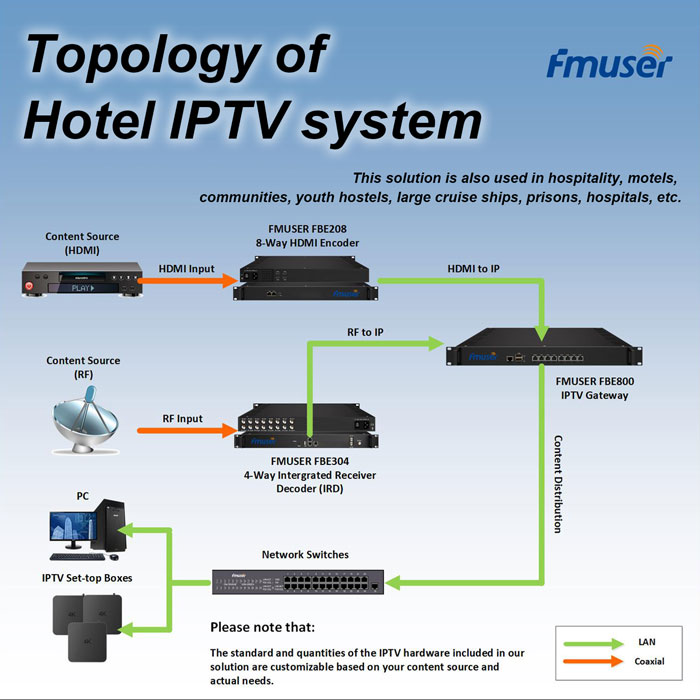
- Əsas səhifə
- xəbər
- Detal
İsti etiket
Populyar axtarış
Otellər üçün IPTV Sistemləri üçün Ən Yaxşı Bələdçi | FMUSER
Bugünkü yüksək rəqabətli qonaqpərvərlik sənayesində qonaqlara unikal və fərdiləşdirilmiş təcrübə təqdim etmək müştəriləri cəlb etmək və saxlamaq üçün çox vacibdir. Otellərin qonaqlarının təcrübəsini artırmağın bir yolu IPTV sistemləri kimi innovativ texnologiyaların tətbiqidir.
Bu yazıda biz otellərdə IPTV sistemlərindən istifadənin faydalarını və onların ümumi qonaq təcrübəsini necə yaxşılaşdıra biləcəyini araşdıracağıq. Biz həmçinin etibarlı və yüksək keyfiyyətli IPTV avadanlıqlarının aparıcı istehsalçısı olan FMUSER-i və onların məhsullarının otel sahiblərinə və menecerlərinə qonaq təcrübəsini növbəti səviyyəyə çıxarmağa necə kömək edə biləcəyini təqdim edəcəyik.
Bu məqalənin sonunda siz IPTV sistemlərinin otelinizə necə fayda verə biləcəyini və FMUSER-in texnologiya məqsədlərinizə çatmağınıza necə kömək edə biləcəyini daha yaxşı başa düşəcəksiniz. Beləliklə, gəlin içəri girək!
İcmal, Ümumi Dəyərləndirmə
IPTV (Internet Protocol Television) internet protokolu (IP) şəbəkəsi vasitəsilə televiziya proqramlarını çatdıran sistemdir. Sadə dillə desək, IPTV internet vasitəsilə çatdırılan rəqəmsal televiziya yayım sistemidir ənənəvi yerüstü əvəzinə, peyk və ya kabel televiziyası formatları. Bu sistem qonaqlara otel otağının televiziyası vasitəsilə geniş çeşiddə televiziya kanalları, filmlər və digər tələb olunan məzmuna çıxış imkanı verir.
👇 FMUSER-in otel üçün IPTV həlli (həmçinin məktəblərdə, kruiz xəttində, kafedə və s. istifadə olunur) 👇
Əsas Xüsusiyyətlər və Funksiyalar: https://www.fmradiobroadcast.com/product/detail/hotel-iptv.html
Proqram İdarəetmə: https://www.fmradiobroadcast.com/solution/detail/iptv
IPTV sistemləri otellərdə getdikcə populyarlaşır, çünki onlar həm qonaqlara, həm də otel operatorlarına bir çox üstünlüklər təklif edir. Biri IPTV sistemlərinin əsas üstünlükləri Onlar qonaqlara daha fərdi və interaktiv televiziya təcrübəsi təqdim edir. Qonaqlar qaldıqları müddətdə istənilən vaxt filmlər, televiziya şouları və musiqi də daxil olmaqla, geniş çeşiddə tələb olunan məzmuna daxil ola bilərlər. Bu xüsusiyyət mobil cihazları vasitəsilə tələb olunan məzmuna daxil olmağa öyrəşmiş gənc səyahətçilər üçün xüsusilə cəlbedicidir.
???? FMUSER-in Otel IPTV Sisteminin Topologiyası ????
IPTV sistemlərinin başqa bir üstünlüyü ondan ibarətdir ki, onlar otelləri öz qonaqlarına televiziya proqramlarını çatdırmaq üçün daha səmərəli və sərfəli üsul təqdim edir. Ənənəvi televiziya sistemləri çoxlu peyk antenalarının və ya kabel birləşmələrinin quraşdırılmasını tələb edir ki, bu da bahalı və vaxt aparan ola bilər. IPTV sistemləri ilə otellər mövcud internet infrastrukturu vasitəsilə televiziya proqramlarını təqdim edə bilərlər ki, bu da çox vaxt daha etibarlı və qənaətcildir.
👇 Cibuti otelində (100 otaq) nümunə araşdırmamızı yoxlayın 👇
IPTV sistemləri qonaqlara daha qüsursuz və rahat təcrübə təqdim etmək üçün otaq xidməti və konsyerj xidmətləri kimi digər otel sistemləri ilə də inteqrasiya oluna bilər. Məsələn, qonaqlar telefonu götürmədən və ya otağından çıxmadan otaq xidməti sifariş etmək və ya spa sifariş etmək üçün otel otağının televizorundan istifadə edə bilərlər.

IPTV sistemlərinin otel otağı televizorları ilə inteqrasiyasına gəldikdə, bir neçə variant mövcuddur. Bəzi otellər hər otaqda xüsusi IPTV pristavkaları quraşdırmağı, digərləri isə daxili IPTV funksionallığı olan smart televizorları seçirlər. Yanaşmadan asılı olmayaraq, otellər IPTV sistemlərinin istifadəsi asan olmasını təmin etməli və qonaqlara qüsursuz və intuitiv təcrübə təqdim etməlidirlər.
Xülasə, IPTV sistemləri qonaqlarına daha fərdiləşdirilmiş və interaktiv televiziya təcrübəsi təqdim etmək istəyən otellər üçün mühüm texnologiyadır. Bu sistemlər sərfəlilik, səmərəlilik və digər otel sistemləri ilə inteqrasiya da daxil olmaqla bir çox üstünlüklər təklif edir. IPTV texnologiyasına sərmayə qoymaqla otellər qonaqların təcrübəsini artıra və rəqiblərindən fərqlənə bilər.
Həmçinin oxuyun: 2023-cü ildə İdman Zalları üçün IPTV Sistemləri üçün Mükəmməl Bələdçi
FMUSER-in IPTV Həlli
FMUSER-də biz otelçilərin öz qonaqlarına qüsursuz və fərdiləşdirilmiş əyləncə təcrübəsi təqdim etməkdə qarşılaşdıqları unikal çətinlikləri başa düşürük. Buna görə də biz kiçik və böyük mehmanxanalar, eləcə də mehmanxana şəbəkələri daxil olmaqla, bütün ölçülü otellər üçün xüsusi olaraq hazırlanmış hərtərəfli IPTV sistemi və həllər təklif edirik.
Ən tam və fərdiləşdirilə bilən IPTV həlli
Bizim IPTV həllimiz büdcənizə və otel otaqlarının sayına əsasən fərdiləşdirilmək qabiliyyətinə görə misilsizdir. Biz inanırıq ki, hər bir otel unikaldır və məqsədimiz sizə nəinki xüsusi tələblərinizə cavab verən, həm də gözləntilərinizi üstələyən bir həll təqdim etməkdir.
Mövcud Otel Sistemi ilə inteqrasiya
Biz IPTV sistemimizi mövcud otel infrastrukturunuzla problemsiz inteqrasiya etməyin vacibliyini dərk edirik. Bizim həllimiz asanlıqla cari otel sisteminizlə inteqrasiya oluna bilər ki, bu da əməliyyatlarınıza hamar bir keçid və minimum pozulma təmin edir. İstər daxili sistemə sahib olmağınızdan, istərsə də üçüncü tərəf proqram təminatından istifadə etməyinizdən asılı olmayaraq, bizim IPTV həllimiz problemsiz bir təcrübə təmin edərək onunla mükəmməl inteqrasiya edəcək.
Problemsiz Təcrübə üçün Kompleks Xidmətlər
FMUSER-in IPTV həllini seçdiyiniz zaman siz qabaqcıl texnologiyadan daha çoxunu əldə edirsiniz. Bütün proses boyunca sizə dəstək olmaq üçün bir sıra xidmətlər təqdim edirik. Xidmətlərimizə daxildir:
- IPTV Başlıq Avadanlığı: Qonaqlarınız üçün yüksək keyfiyyətli axın təcrübəsini təmin etmək üçün ən yüksək səviyyəli IPTV başlıq avadanlığı təklif edirik. Avadanlıqlarımız etibarlı, genişləndirilə bilən və gələcəyə davamlıdır və biznesiniz böyüdükcə xidmətlərinizi genişləndirməyə imkan verir.
- Şəbəkə Avadanlıqları: Bizim həllimizə IPTV axını üçün optimallaşdırılmış şəbəkə avadanlığı daxildir, otelinizdə sürətli və sabit bağlantıları təmin edir. Ən yaxşı performansı təmin etmək üçün aparıcı şəbəkə avadanlığı istehsalçıları ilə əməkdaşlıq etdik.
- Texniki dəstək: Təcrübəli texniki heyətimiz texniki dəstək və yardım göstərmək üçün 24/7 hazırdır. Biz başa düşürük ki, texnologiya bəzən mürəkkəb ola bilər, ona görə də istənilən problemi tez və səmərəli şəkildə həll etməyə kömək etmək üçün buradayıq.
- Yerində quraşdırma qaydaları: Hamar və əngəlsiz quraşdırma prosesini təmin etmək üçün ətraflı quraşdırma təlimatları təqdim edirik. Təlimatlarımıza riayət etmək asandır, bu da işçilərinizə və ya üçüncü tərəf quraşdırıcılarına sistemi tez və dəqiq qurmağa imkan verir.
- Sistemin fərdiləşdirilməsi: Biz sizin xüsusi ehtiyaclarınızı ödəmək üçün sistemin fərdiləşdirilməsi variantlarını təklif edirik. Brendləşdirmədən istifadəçi interfeysi dizaynına qədər biz IPTV həllini otelinizin unikal üslubuna və atmosferinə uyğunlaşdıra bilərik.
- Sistem Testi və Baxımı: Yerləşdirmədən əvvəl IPTV sisteminin qüsursuz işləməsini təmin etmək üçün hərtərəfli sınaqlar keçiririk. Bundan əlavə, sisteminizin yenilənməsi və optimal performansda işləməsi üçün davamlı texniki xidmətlər təqdim edirik.
Bizim IPTV həllimiz yalnız texnologiya ilə bağlı deyil; bu, biznes gəlirinizi artırmaq və qonaqlarınızın təcrübəsini təkmilləşdirməkdən ibarətdir. Geniş çeşidli əyləncə seçimləri və interaktiv funksiyalar təklif etməklə siz qonaqlarınız üçün fərdi təcrübələr yarada bilərsiniz ki, bu da qonaq məmnunluğunun və sədaqətinizin artmasına səbəb olur.
FMUSER-də biz müştərilərimizlə uzunmüddətli əlaqələr qurmağa inanırıq. Biz sizə etibarlı həllər, mükəmməl müştəri xidməti və davamlı yenilik təqdim edərək IPTV sənayesində etibarlı tərəfdaşınız olmağa çalışırıq. Biz IPTV-nin gücünü mənimsəyərək və qonaqlara yaddaqalan təcrübələr təqdim etməklə, otel biznesinizin çiçəklənməsinə və böyüməsinə kömək etməyə hazırıq.
Bu gün bizimlə əlaqə saxlayın FMUSER-in IPTV həllinin otelinizi sizi rəqabətdən fərqləndirən qabaqcıl təyinat yerinə necə çevirə biləcəyini araşdırmaq. Gəlin uğurda tərəfdaşınız olaq.
Case
IPTV sistemlərini uğurla tətbiq edən otellərin real dünya nümunələri və nümunələri və əldə etdikləri nəticələr çoxdur. IPTV sistemlərinin tətbiqi son illərdə otellər üçün getdikcə daha populyar bir seçim halına gəldi, bir çoxları qonaqların məmnunluq dərəcələri, artan gəlirlər və əməliyyat xərclərinin azalması baxımından əhəmiyyətli faydalar gördülər. Ən diqqətəlayiq nümunələrdən bəzilərinə nəzər salaq:
1. Grand Hyatt Sinqapur
Grand Hyatt Singapore 2014-cü ildə IPTV sistemini tətbiq edən dəbdəbəli oteldir. Sistemə istifadəsi asan interfeysli qonaq otağı televizorları və tələb üzrə yüksək dəqiqlikli video, internetə baxış imkanları və giriş daxil olmaqla bir sıra funksiyalar daxildir. müxtəlif otel xidmətləri. Bu sistem qüsursuz və yüksək səviyyədə fərdiləşdirilmiş qonaq təcrübəsinə imkan verdi. Nəticədə, Grand Hyatt Singapore IPTV sisteminin tətbiqindən sonra qonaq məmnuniyyətinin 80%-dən 90%-ə yüksəldiyini gördü. Bundan əlavə, IPTV sisteminin təmin etdiyi rahat sifariş prosesi sayəsində otel otaqda yemək sifarişlərində 50% artım müşahidə etdi.
2.Marriott Beynəlxalq
Dünyanın ən böyük otel şəbəkələrindən biri olan Marriott İnternational da bütün dünyada yüzlərlə mülkündə IPTV sistemi tətbiq etdi. Sistem qonaqlara videolara baxmaq, internetə baxmaq və müxtəlif otel xidmətlərindən asanlıqla istifadə etmək imkanı verib. Sistem Marriott-un dəbdəbəli mülklərində xüsusilə uğurlu idi və burada hər otaq üçün gəlirin 20% artmasına töhfə verdi. Bundan əlavə, bu, əməliyyat səmərəliliyinin yüksəldilməsinə və menyuların, otaq xidməti broşürlərinin və digər məlumat materiallarının çapı xərclərinə qənaət etməyə gətirib çıxardı.
3. Melia Otelləri
Melia Hotels 2015-ci ildə Sol Otellərində IPTV sistemi tətbiq edən İspaniya otellər şəbəkəsidir. Sistem qonaqlara filmlərin, serialların və sənədli filmlərin hərtərəfli seçiminə daxil olmaq imkanı verən təkmil tələb üzrə video funksiyasını özündə əks etdirir. IPTV sistemi həmçinin istifadəçilərə internetə baxmaq və otaq xidməti, spa prosedurları və konsyerj xidmətləri də daxil olmaqla bir sıra otel xidmətlərindən istifadə etmək imkanı verir. Melia Hotels məlumat verdi ki, IPTV sisteminin tətbiqi Sol Hotels portfelində ümumi gəlirin 20% artmasına səbəb olub.
Beləliklə, bu nümunələr IPTV sisteminin tətbiqinin faydalarını necə göstərir? Birincisi, IPTV sistemləri qonaqlara fərdiləşdirilmiş və rahat otaqda təcrübə təqdim edərək, qonaq məmnuniyyətinin artmasına töhfə verir. Bundan əlavə, onlar otellərə otaqda yemək və IPTV sistemi vasitəsilə təklif olunan digər xidmətlər vasitəsilə əlavə gəlir əldə etmək imkanı verirlər. Bundan əlavə, fiziki menyuların ləğvi və rəqəmsal alternativlərin (məsələn, otaqdaxili yemək menyuları) istifadəsi xərclərə qənaət etməyə, mehmanxanaların əməliyyat səmərəliliyini artırmağa kömək edir.
Yekun olaraq qeyd edək ki, IPTV sistemlərinin tətbiqi bütün ölçülü və səviyyəli otellər üçün bir nemət olduğunu sübut etdi. Bu, yalnız otellərə öz qonaqlarına yeni və maraqlı xidmətlər təklif etməyə imkan vermir, həm də əməliyyat xərclərini azaltmağa kömək edir. IPTV texnologiyasını mənimsəməklə, otellər rəqabətdən qabaqda qala və qonaqların təcrübəsini artıra bilər - bu, iştirak edən hər kəs üçün qalib kombinasiyadır.
Həmçinin oxuyun: Qatarlar və Dəmir Yolları üçün IPTV Sistemləri üzrə Kompleks Bələdçi
4. FMUSER-dən Uğurlu Hekayələr
Qonaqpərvərlik sənayesində ən uğurlu IPTV provayderlərindən biri FMUSER-dir. Onlar dünya üzrə otelləri İPTV sistemləri ilə təmin ediblər və həm otel işçiləri, həm də qonaqlar tərəfindən müsbət rəylər alıblar.
Belə uğur hekayələrindən biri də Fransanın Paris şəhərindəki Grand Hoteldə FMUSER IPTV sisteminin tətbiqidir. Otel qonaqların təcrübəsini artırmaq və özlərini ərazidəki digər lüks otellərdən fərqləndirmək üçün bir yol axtarırdı. FMUSER markalı istifadəçi interfeysi, yerli və beynəlxalq kanallar və tələb olunan məzmunu özündə birləşdirən fərdiləşdirilmiş IPTV sistemini təmin edə bildi. Sistem həmçinin otelin otaq xidməti sistemi ilə inteqrasiya olunub və qonaqlara yemək və içkiləri birbaşa televizorlarından sifariş etmək imkanı verir.
Digər bir uğur hekayəsi Nyu Yorkdakı Ritz-Carlton otelində FMUSER IPTV sisteminin tətbiqidir. Otel qonaqlara daha fərdi təcrübə təqdim etmək üçün bir yol axtarırdı və FMUSER fərdi salamlama mesajları, qonaqların seçimlərinə əsaslanan tövsiyələr və birbaşa televiziyadan otel xidmətləri sifariş etmək imkanı daxil edən sistem təqdim edə bildi. Sistem həmçinin yerli və beynəlxalq kanallar, premium məzmun və tələb olunan məzmun da daxil olmaqla geniş məzmun seçimlərini əhatə edirdi.
Üçüncü uğur hekayəsi Sinqapurdakı Marina Bay Sands-də FMUSER IPTV sisteminin tətbiqidir. Otel qonaqlara unikal və immersiv təcrübə təqdim etmək üçün bir yol axtarırdı və FMUSER interaktiv proqram bələdçilərini, otel və ətraf əraziyə virtual turları və attraksionları və fəaliyyətləri birbaşa buradan sifariş etmək imkanı olan bir sistem təqdim edə bildi. televizor. Sistem həmçinin yerli və beynəlxalq kanallar, premium məzmun və tələb olunan məzmun da daxil olmaqla geniş məzmun seçimlərini əhatə edirdi.
Bu halların hər birində FMUSER otelin xüsusi ehtiyac və tələblərinə cavab verən fərdiləşdirilmiş və yüksək keyfiyyətli IPTV sistemini təmin edə bildi. Geniş çeşidli məzmun seçimləri, fərdiləşdirmə seçimləri və texniki dəstəyi təmin etməklə, FMUSER bu otellərə qonaq təcrübəsini artırmaqda və rəqiblərindən fərqlənməkdə kömək edə bildi.
Otellərdə AI
Süni intellekt (AI) müxtəlif sənaye sahələrini dəyişdirdi və qonaqpərvərlik sektoru da istisna deyil. IPTV sistemi ilə inteqrasiya edildikdə, AI fərdiləşdirmə və səmərəliliyin yeni səviyyəsini gətirir. Gəlin otelin IPTV sistemini təkmilləşdirmək üçün AI-nin necə işlədiyini araşdıraq:
Fərdiləşdirilmiş Məzmun Tövsiyələri
Süni intellekt alqoritmləri fərdiləşdirilmiş məzmun tövsiyələri vermək üçün qonaq seçimlərini, keçmiş baxış tarixçəsini və digər məlumat nöqtələrini təhlil edir. Fərdi üstünlükləri başa düşərək, IPTV sistemi qonaqlara müvafiq filmlər, televiziya şouları və digər əyləncə variantlarını təklif edə bilər. Bu fərdiləşdirmə səviyyəsi qonaqların məmnunluğunu artırır və otaqda daha cəlbedici əyləncə təcrübəsi yaradır.
Səslə aktivləşdirilmiş idarəetmə və qarşılıqlı əlaqə
Süni intellektlə işləyən səsin tanınması texnologiyası ilə qonaqlar səs əmrlərindən istifadə edərək IPTV sisteminə nəzarət edə bilərlər. Onlar səsli qarşılıqlı əlaqə vasitəsilə kanalları asanlıqla gəzə, xüsusi məzmun axtara, parametrləri düzəldə və hətta otel xidmətlərinə müraciət edə bilərlər. Bu hands-free və intuitiv yanaşma qonaqların rahatlığını artırır və daha qüsursuz və interaktiv təcrübə təklif edir.
Ağıllı Məzmun Kurasiyası
Süni intellekt alqoritmləri ağıllı və dinamik məzmun kitabxanasını idarə etmək üçün qonaq rəyləri, reytinqlər və tendensiyalar da daxil olmaqla böyük həcmdə məlumatları təhlil edə bilər. Sistem məşhur şouları, filmləri və qonaqlarla rezonans doğuran yerli məzmunu müəyyən edə bilər, əyləncə seçimlərinin müvafiq və cəlbedici seçimini təmin edir. Bu ağıllı məzmun kurasiyası qonaqları qaldıqları müddətdə əyləndirir və məmnun edir.
Proqnozlaşdırıcı və Ağıllı Tövsiyələr
AI-nin proqnozlaşdırma imkanlarından istifadə etməklə IPTV sistemi sadə məzmun tövsiyələrindən kənara çıxa bilər. O, qonaqların seçimlərini təxmin edə, maraqlarını proqnozlaşdıra və əvvəlcədən uyğunlaşdırılmış tövsiyələr verə bilər. Məsələn, əvvəlki baxış vərdişlərinə əsaslanaraq, sistem qonaqların qaldıqları müddətdə zövq ala biləcəkləri xüsusi janrları və ya məzmun kateqoriyalarını təklif edə bilər. Bu ağıllı tövsiyələr qonaq təcrübələrini artırır və fərdiləşdirmə hissini artırır.
Avtomatlaşdırılmış Məzmun Tagging və Metadata İdarəetmə
Süni intellekt alqoritmləri IPTV sistemi daxilində məzmunu avtomatik olaraq etiketləyə və kateqoriyalara ayıra bilər ki, bu da qonaqların müvafiq variantları nəzərdən keçirməsini və kəşf etməsini asanlaşdırır. İstər məzmunu janr, dil və ya digər meyarlara görə təşkil etməsindən asılı olmayaraq, AI məzmun axtarış prosesini asanlaşdırır və istifadəçi dostu interfeys təqdim edir. Bu avtomatlaşdırılmış məzmun etiketləməsi idarəetməni asanlaşdırır və qonaqların axtardıqlarını tez tapmasını təmin edir.
Məlumata əsaslanan anlayışlar və analitika
Süni intellektlə işləyən analitika mehmanxana sahiblərinə qonaqların davranışı, məzmun istehlakı nümunələri və üstünlükləri haqqında dəyərli fikirlər təqdim edir. Bu məlumatları təhlil edərək, otellər məzmun təkliflərini optimallaşdıra, lisenziya müqavilələri ilə bağlı əsaslandırılmış qərarlar qəbul edə və ümumi IPTV sisteminin işini yaxşılaşdıra bilər. Məlumata əsaslanan anlayışlar otellərə qonaqların gözləntilərini qabaqlamağa və daha fərdiləşdirilmiş və məmnunedici əyləncə təcrübəsi təqdim etməyə imkan verir.
AI-nin otel IPTV sisteminə daxil edilməsi fərdiləşdirilmiş məzmun tövsiyələrindən tutmuş sadələşdirilmiş idarəetməyə və təkmilləşdirilmiş qonaq məmnunluğuna qədər çoxsaylı üstünlüklər gətirir. FMUSER süni intellektin gücünü başa düşür və qonaqlarınız üçün həqiqətən təkmil və ağıllı otaqdaxili əyləncə təcrübəsi yaradaraq, AI imkanlarını IPTV sisteminizə inteqrasiya etməyə kömək edə bilər.
Əsas funksiyaları
Qonaqpərvərlik IPTV sistemləri müxtəlif xüsusiyyətlərə malikdir otel otaqlarında əyləncə variantları qonaq təcrübəsini artırmaq və otel fəaliyyətini təkmilləşdirmək. Ən ümumi xüsusiyyətlərdən bəziləri (ətraflı məlumat üçün klikləyin):
- İnteraktiv proqram bələdçisi
- Video konfrans
- Ağıllı ev inteqrasiyası
- Tələb Üzrə Video
- İnteraktiv xəritələr və yerli məlumat
- Qonaq Mesajlaşması
- Mobil Cihaz İnteqrasiyası
- Dil Dəstəyi
- Digital Signage
- Kişiselleştirme
- Fitnes və sağlamlıq məzmunu
- Otaqda alış-veriş
- Fərdi salamlama mesajları
- Səs idarə
- Qonaq rəyləri və sorğular
- Analytics
1. İnteraktiv Proqram Bələdçisi
İnteraktiv proqram bələdçisi (IPG) qonaqlara televiziya kanallarına, filmlərə və digər məzmuna baxmaq və seçmək imkanı verən IPTV sisteminin vacib xüsusiyyətidir. Proqram bələdçisi otel brendini və promosyonlarını göstərmək üçün fərdiləşdirilə bilər və kanal sırasına və ya mövcud məzmuna dəyişiklikləri əks etdirmək üçün real vaxt rejimində yenilənə bilər. IPG a qrafik istifadəçi interfeysi qısa təsviri, cədvəli və digər müvafiq məlumatlarla mövcud kanalların və proqramların siyahısını göstərir. IPTV sistemi qonaqlara kanallar və proqramlar arasında asanlıqla naviqasiya etməyə imkan verən sadə və istifadəsi asan interfeys təqdim edir.
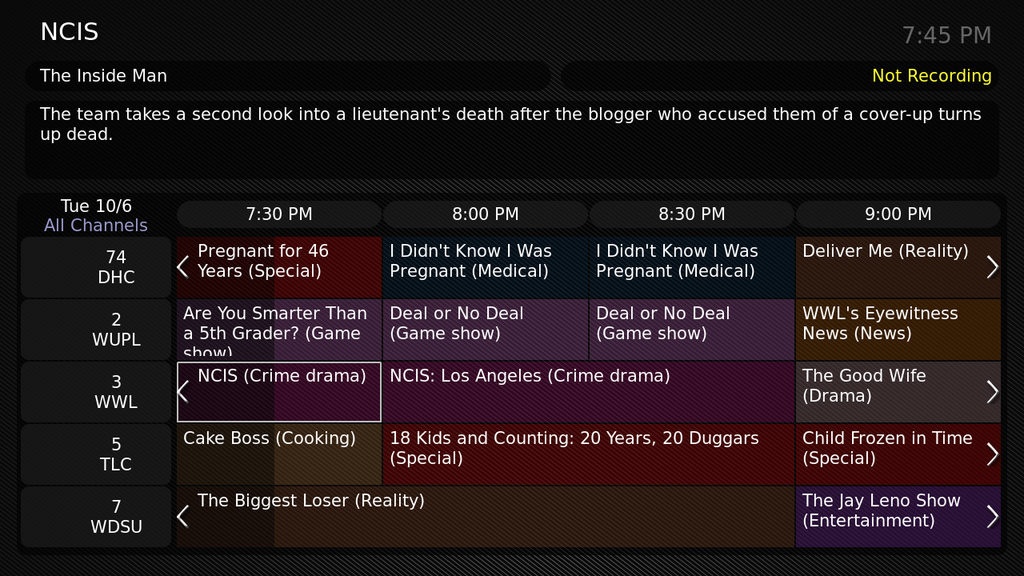
IPG-nin əhəmiyyətli üstünlüklərindən biri odur ki, o, çətin və vaxt aparan ənənəvi kağız əsaslı televiziya bələdçilərinə ehtiyacı aradan qaldırır. IPG qonaqları televiziya kanalları və verilişləri, o cümlədən adı, konspekti, müddəti və efir vaxtı haqqında ən son məlumatlarla təmin edir. Bu məlumat qonaqlara nəyə və nə vaxt baxacaqlarına dair məlumatlı qərarlar qəbul etməyə kömək edir.
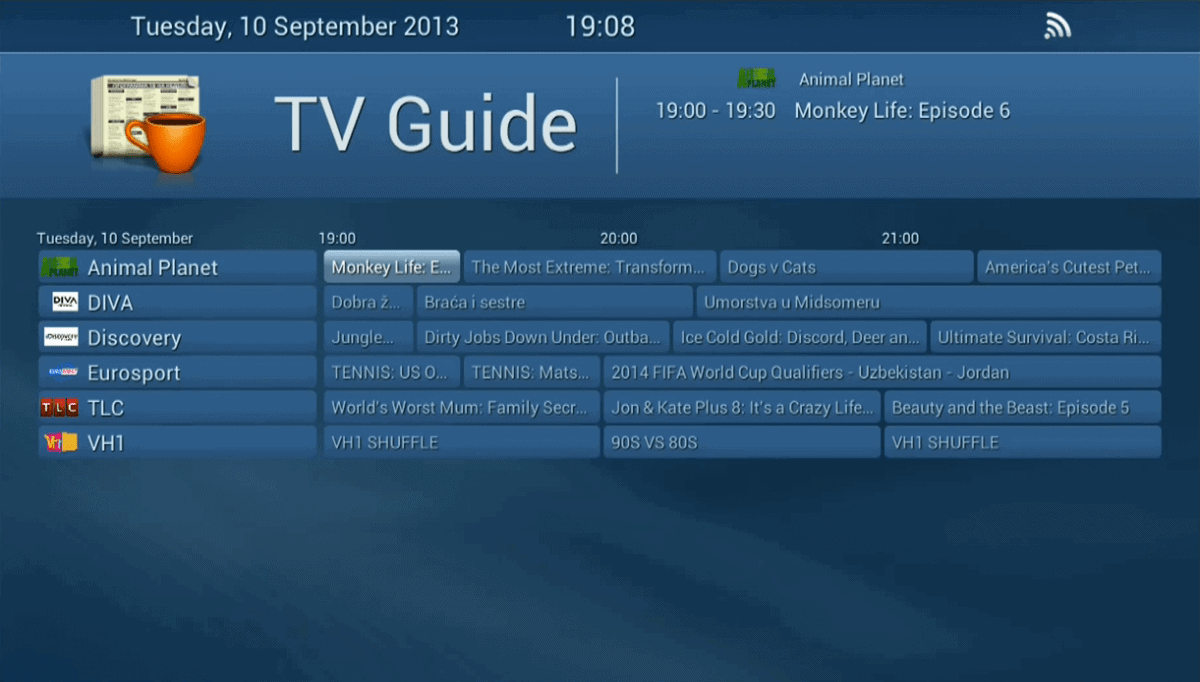
IPG-nin digər üstünlüyü ondan ibarətdir ki, o, qonaqlara proqramları açar söz, janr və ya reytinq üzrə axtarmaq imkanı verir. Məsələn, əgər qonaq filmə baxmaqda maraqlıdırsa, onlar IPG-də filmləri axtara və mövcud seçimləri nəzərdən keçirə bilərlər. Onlar həmçinin axtarış nəticələrini hərəkət, komediya, dram və ya qorxu kimi janrlara və ya G, PG, PG-13 və ya R kimi reytinqə görə filtrləyə bilərlər.

Qonaqlar TV kanallarına və proqramlarına baxmaqla yanaşı, IPG-dən istifadə edərək xatırlatmalar qura və qeydləri planlaşdıra bilərlər. Bu funksiya daha sonra və ya başqa bir gündə yayımlanan proqramı izləmək istəyən qonaqlar üçün xüsusilə faydalıdır. Onlar sadəcə olaraq xatırlatma qura və ya qeydi planlaşdıra bilərlər və IPTV sistemi proqramı avtomatik olaraq qeyd edəcək və baxmağa hazır olduqda qonağı xəbərdar edəcək.
Həmçinin oxuyun: Otellərdə təmassız xidmətlər: Ən yaxşı bələdçi
"İnteraktiv Proqram Bələdçisi" bölməsi üçün bəzi əlavə funksiyalar bunlardır:
- Axtarış funksiyası: İnteraktiv proqram bələdçisinə qonaqlara başlıq, janr və ya aktyor üzrə xüsusi televiziya şouları və ya filmlər axtarmağa imkan verən axtarış funksiyası daxil ola bilər.
- Xatırlatmalar: Proqram bələdçisi qarşıdan gələn televiziya şouları və ya filmləri üçün xatırlatmalar təyin etmək seçimini təklif edə bilər ki, qonaqlar sevimli proqramlarını heç vaxt qaçırmasınlar.
- Kanal qruplaşdırılması: Proqram bələdçisi kanalları idman, xəbərlər, filmlər və uşaq proqramları kimi kateqoriyalara görə qruplaşdıra bilər ki, bu da qonaqların maraqlandıqları məzmunu tapmasını asanlaşdırır.
- Fərdiləşdirilə bilən sevimlilər: Proqram bələdçisi qonaqlara sevimli kanallarının və ya şoularının siyahısını yaratmağa imkan verə bilər ki, bu da sevdikləri məzmuna daxil olmağı asanlaşdırır.
- Reytinqlər və icmallar: Proqram bələdçisinə televiziya şouları və filmlər üçün reytinqlər və rəylər daxil ola bilər ki, bu da qonaqlara nə izləmək barədə əsaslandırılmış qərarlar qəbul etməyə kömək edir.
Ümumiyyətlə, interaktiv proqram bələdçisi otellərdə qonaq təcrübəsini artıran IPTV sisteminin mühüm komponentidir. O, qonaqlara televiziya kanallarına və proqramlara asanlıqla baxmaq və seçmək imkanı verən istifadəçi dostu interfeys təqdim edir. IPG həmçinin ənənəvi kağız əsaslı televiziya bələdçilərinə ehtiyacı aradan qaldırır və qonaqları televiziya kanalları və proqramlar haqqında ən son məlumatlarla təmin edir. Bundan əlavə, IPG qonaqlara proqramları açar söz, janr və ya reytinq üzrə axtarmağa, xatırlatmalar təyin etməyə və qeydləri planlaşdırmağa imkan verir ki, bu da onu TV izləmə təcrübəsini fərdiləşdirmək istəyən qonaqlar üçün dəyərli bir vasitə halına gətirir.
Həmçinin oxuyun: Müəssisələr üçün IPTV Sistemləri üçün Mükəmməl Bələdçi
2. Video konfrans
Videokonfrans son illərdə, xüsusən də COVID-19 pandemiyasından sonra, qonaqlara yolda olarkən dostları, ailəsi və həmkarları ilə əlaqə saxlamağa imkan verdiyi üçün otellər üçün vacib xüsusiyyətə çevrilib. Sadə dillə desək, video konfrans insanlara video və audio rabitədən istifadə edərək internet üzərindən virtual görüş və ya söhbət aparmağa imkan verən texnologiyadır.

Videokonfrans mehmanxanalar üçün vacibdir, çünki o, qonaqlara mehmanxana otağının rahatlığını tərk etmədən öz yaxınları və ya iş yoldaşları ilə ünsiyyət qurmağın rahat və sərfəli üsulunu təmin edir. Videokonfrans imkanları təklif etməklə, otellər virtual görüşlərdə və ya konfranslarda iştirak etməli olan işgüzar səyahətçiləri, həmçinin ailəsi və dostları ilə əlaqə saxlamaq istəyən istirahət səyahətçilərini cəlb edə bilər.

Otellər üçün videokonfransın üstünlüklərindən biri də qonaqlara əlavə xidmət göstərməklə gəliri artıra bilməsidir. Qonaqlardan otel üçün əlavə gəlir əldə etməyə kömək edə biləcək video konfrans qurğularından istifadə haqqı tutula bilər. Bundan əlavə, bu, qonaqların məmnuniyyətini və sədaqətini artırmağa kömək edə bilər, çünki bu, onlara əlaqə saxlamaq üçün rahat və əngəlsiz bir yol təqdim edir.

Otellərdə IPTV sistemi ilə videokonfransları inteqrasiya etmək üçün sistem qonaqlara birbaşa televiziya ekranlarından video konfrans qurğularına daxil olmaq imkanı verəcək şəkildə dizayn edilə bilər. Bu, qonaq otağına televizora qoşula bilən kamera və mikrofon quraşdırmaqla edilə bilər. Qonaq daha sonra videokonfrans proqramına daxil olmaq və zəng etmək üçün pultdan istifadə edə bilər.

Video konfransı IPTV sistemi ilə inteqrasiya etməyin başqa bir yolu televizora qoşulmuş xüsusi video konfrans cihazından istifadə etməkdir. Qurğu əvvəlcədən lazımi proqram təminatı və proqramlar ilə quraşdırıla bilər ki, bu da qonaqların istifadəsini asanlaşdırır. Cihaz həmçinin qonaqlara tələb olunan filmlər və televiziya şouları kimi digər IPTV xüsusiyyətlərinə daxil olmaq üçün konfiqurasiya edilə bilər.
Otellərdə IPTV sistemi ilə video konfransın inteqrasiyasının bəzi üstünlüklərinə aşağıdakılar daxildir:
- Rahatlıq: Qonaqlar birbaşa televizor ekranlarından video konfrans qurğularına daxil ola bilərlər ki, bu da onu rahat və asan istifadə edir.
- İqtisadi cəhətdən səmərəli: IPTV sistemindən istifadə etməklə, otellər əlavə aparat və proqram təminatına sərmayə yatırmaq zərurətindən qaça bilər ki, bu da onu sərfəli həll yoluna çevirir.
- Özelleştirme: IPTV sistemi mehmanxananın və onun qonaqlarının xüsusi ehtiyaclarını ödəmək üçün fərdiləşdirilə bilər və uyğunlaşdırılmış həll yolu təqdim edə bilər.
- Təkmilləşdirilmiş qonaq təcrübəsi: Video konfrans imkanları təklif etməklə, otellər qonaq təcrübəsini artıra və qonaq məmnuniyyətini artıra bilər.
Xülasə, videokonfrans mehmanxanalar üçün vacib xüsusiyyətdir, çünki o, qonaqlara öz yaxınları və ya iş yoldaşları ilə əlaqə saxlamaq üçün rahat və sərfəli üsul təqdim edir. IPTV sistemi ilə videokonfransları birləşdirməklə, otellər qonaqlara problemsiz və problemsiz təcrübə təqdim etməklə yanaşı, gəliri artıra və qonaq məmnuniyyətini artıra bilər.
Həmçinin oxuyun: Gəmi əsaslı IPTV Sistemləri: Hərtərəfli Bələdçi
3. Ağıllı ev inteqrasiyası
Ağıllı ev inteqrasiyası qonaqlara imkan verən qabaqcıl texnologiyadır otel otağının müxtəlif aspektlərinə nəzarət edir smartfon və ya səs əmrlərindən istifadə etməklə. Bu texnologiya otellərdə getdikcə populyarlaşır, çünki qonaqlara rahat və fərdiləşdirilmiş təcrübə təqdim edir. Sadə dillə desək, ağıllı ev inteqrasiyası otel otağındakı işıqlar, termostatlar və televizorlar kimi müxtəlif cihazları və cihazları mərkəzi idarəetmə sisteminə birləşdirən sistemdir.
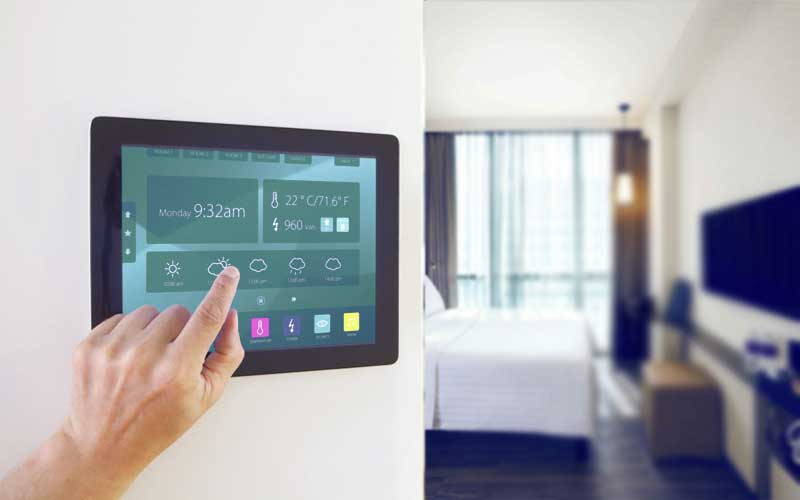
Ağıllı ev inteqrasiyası otellər üçün vacibdir, çünki o, qonaqlara onların qalmalarını artıra biləcək unikal və fərdiləşdirilmiş təcrübə təqdim edir. Qonaqlara otaqlarının işıqlandırma və temperatur kimi müxtəlif aspektlərinə nəzarət etməyə icazə verməklə, otellər qonaqları üçün daha rahat və rahat mühit yarada bilərlər. Bundan əlavə, o, həmçinin enerji səmərəliliyinin artırılmasına və xərclərin azaldılmasına kömək edə bilər, çünki sistem otaqda boş olduqda işıqları avtomatik söndürmək və temperaturu tənzimləmək üçün proqramlaşdırıla bilər.
Sizi bəyənirsiniz: IPTV Paylama Sistemi: Bilməli olduğunuz hər şey
Otellər üçün ağıllı ev inteqrasiyasının üstünlüklərindən biri də qonaqların məmnuniyyətini və sədaqətini artıra bilməsidir. Qonaqlara fərdi təcrübə təqdim etməklə, otellər özlərini rəqiblərindən fərqləndirə və unikal satış nöqtəsi yarada bilərlər. Üstəlik, o, həm də gəliri artırmağa kömək edə bilər, çünki qonaqlar sistemin təmin etdiyi rahatlıq və rahatlıq üçün mükafat ödəməyə hazır ola bilərlər.

Ağıllı ev texnologiyasını otellərdə IPTV sistemi ilə inteqrasiya etmək üçün sistem qonaqlara televizorun pultu və ya smartfonundan istifadə edərək otaqlarının müxtəlif aspektlərini idarə etməyə imkan verəcək şəkildə dizayn edilə bilər. Məsələn, qonaqlar temperaturu tənzimləmək, işıqları yandırmaq/söndürmək və televizora nəzarət etmək üçün IPTV sistemindən istifadə edə bilərlər. Sistem də edə bilər səs köməkçiləri ilə inteqrasiya oluna bilər, məsələn, Amazon Alexa və ya Google Assistant, qonaqlara səsli əmrlərdən istifadə edərək otaqlarını idarə etməyə imkan verir.
Ağıllı ev texnologiyasının otellərdə IPTV sistemi ilə inteqrasiyasının bəzi üstünlüklərinə aşağıdakılar daxildir:
- Fərdiləşdirmə: Ağıllı ev inteqrasiyası qonaqlara otaqlarını öz seçimlərinə uyğunlaşdırmağa imkan verir və fərdi təcrübə təmin edir.
- Rahatlıq: Qonaqlar öz smartfon və ya səs əmrlərindən istifadə edərək otaqlarının müxtəlif aspektlərinə nəzarət edə bilər ki, bu da onu rahat və istifadəni asanlaşdırır.
- Enerji səmərəliliyi: Sistem otaq boş olduqda işıqları avtomatik söndürmək və temperaturu tənzimləmək üçün proqramlaşdırıla bilər, enerji səmərəliliyini artırır və xərcləri azaldır.
- Artan gəlir: Qonaqlara unikal və fərdi təcrübə təqdim etməklə, otellər gəliri artıra və rəqiblərindən fərqlənə bilər.
Xülasə, ağıllı ev inteqrasiyası mehmanxanalar üçün mühüm texnologiyadır, çünki o, qonaqlara onların qalmasını yaxşılaşdıra biləcək unikal və fərdiləşdirilmiş təcrübə təqdim edir. Ağıllı ev texnologiyasını IPTV sistemi ilə inteqrasiya edərək, otellər qonaqlara problemsiz və rahat təcrübə təqdim etməklə yanaşı, enerji səmərəliliyini yaxşılaşdıra və xərcləri azalda bilər. Bundan əlavə, o, həm də gəliri artırmağa və qonaq məmnuniyyətini və sədaqətini yaxşılaşdırmağa kömək edə bilər.
Həmçinin oxuyun: Restoranlar və Kafelər üçün IPTV Sistemləri üçün Mükəmməl Bələdçi
4. Tələb üzrə Video:
Tələb üzrə video (VOD) qonaqlara filmlər, televiziya şouları və digər video məzmunlardan ibarət geniş kitabxanaya öz rahatlığı ilə daxil olmaq imkanı verən IPTV sisteminin xüsusiyyətidir. VOD funksiyası qonaqlara fərdiləşdirilmiş baxış təcrübəsi təqdim edir və onlara televizorda yayımlanmasını gözləmədən istədikləri zaman sevimli məzmununa baxmağa imkan verir.
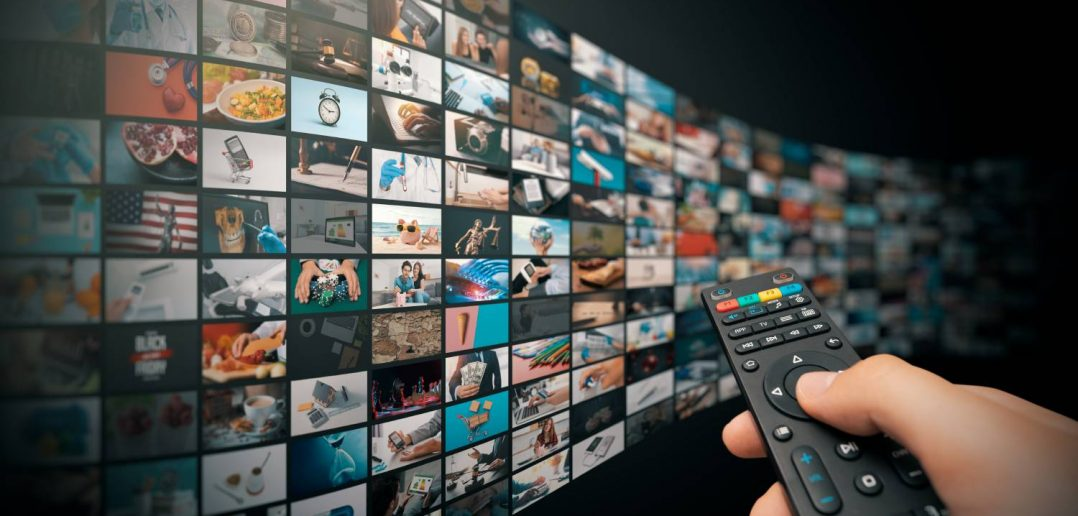
VOD-un əhəmiyyətli üstünlüklərindən biri, qonaqlara seçmək üçün geniş məzmun seçimi təklif etməsidir. IPTV sistemi minlərlə film, televiziya şousu və digər video məzmunu saxlaya bilər və qonaqlara gözdən keçirmək üçün geniş seçimlər kitabxanası təqdim edir. Bu funksiya xüsusilə adi televiziya kanallarında olmayan xüsusi film və ya televiziya şousuna baxmaq istəyən qonaqlar üçün faydalıdır.
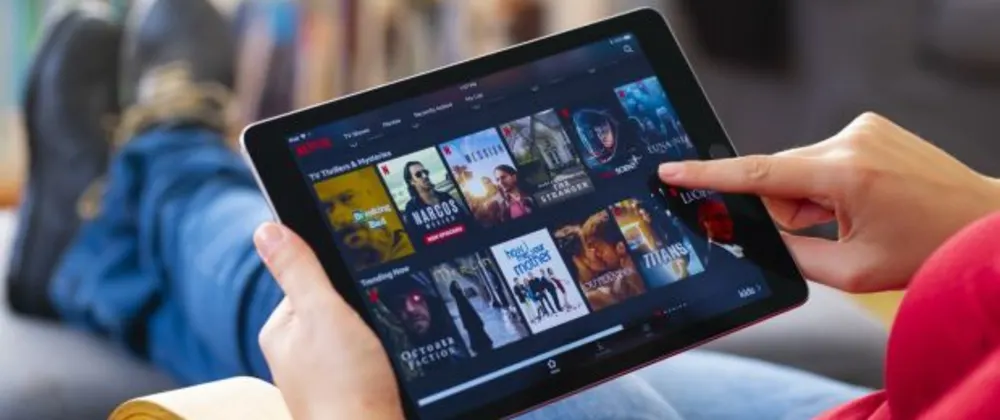
VOD-un digər üstünlüyü ondan ibarətdir ki, o, qonaqlara baxdıqları video məzmunu dayandırmağa, geriyə və sürətlə irəli çəkməyə imkan verir. Bu funksiya qonaqlara öz baxış təcrübələrinə daha çox nəzarət etmək imkanı verir, onlara sevimli səhnələrinə yenidən baxmağa və ya onları maraqlandırmayan hissələrə keçməyə imkan verir. Bundan əlavə, IPTV sistemi qonaqların baxış tarixçəsini saxlaya bilər, onlara filmə və ya filmə baxmağa davam etməyə imkan verir. Qaldıqları yerdən televiziya şousu.
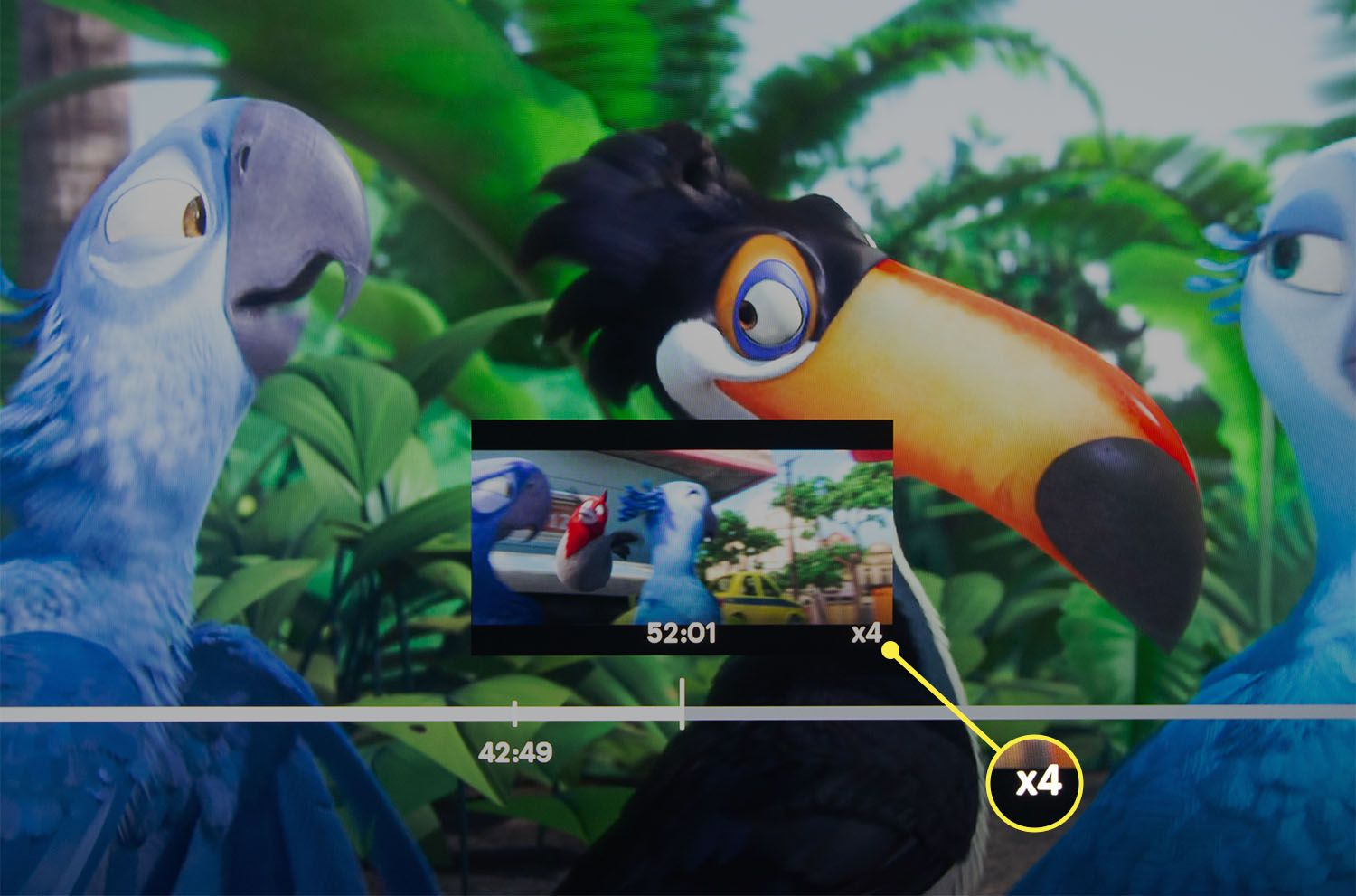
Kino və televiziya şoularına əlavə olaraq, VOD xüsusiyyəti qonaqlara idman oyunları və konsertlər kimi canlı tədbirlərə giriş təklif edə bilər. Bu xüsusiyyət tədbirdə şəxsən iştirak edə bilməyən, lakin hələ də onu canlı izləmək istəyən qonaqlar üçün xüsusilə faydalıdır. IPTV sistemi hadisəni real vaxt rejimində yayımlaya bilər, qonaqlara yüksək keyfiyyətli baxış təcrübəsi təqdim edir.
Həmçinin oxuyun: Hökumət Təşkilatları üçün IPTV Sistemləri üçün Ən Yaxşı Bələdçi
Video-on-Demand-ın (VOD) otellərdə IPTV sistemi ilə inteqrasiyası həm qonaqlar, həm də otel operatorları üçün bir sıra üstünlüklər təmin edə bilər. Əsas üstünlüklərdən bəziləri əlavədir:
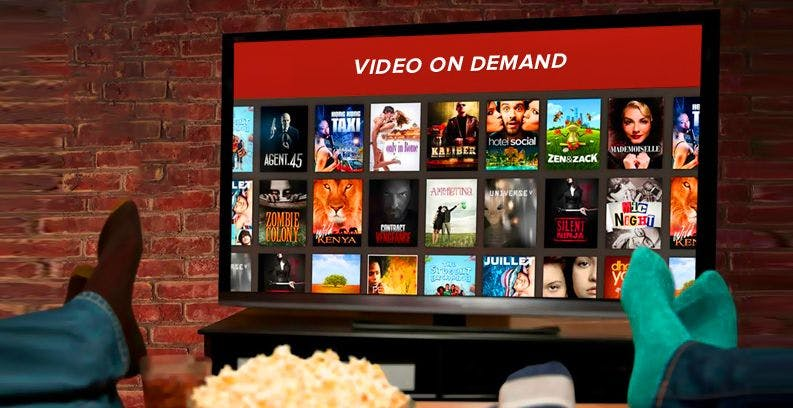
- Artan qonaq məmnuniyyəti: IPTV sisteminin bir hissəsi kimi VOD təklif etməklə, otellər qonaqlara daha geniş əyləncə seçimləri təqdim edə bilər. Bu, qonaqların məmnuniyyətini artırmağa və onların qalmasını daha zövqlü etməyə kömək edə bilər.
- Fərdi baxış təcrübəsi: VOD, qonaqlara baxmaq istədikləri zaman izləmək istədikləri məzmunu seçmək imkanı verir. Bu, daha fərdiləşdirilmiş baxış təcrübəsi yaratmağa kömək edə bilər və qonaqların onları maraqlandıran məzmunu tapa bilməsini təmin edə bilər.
- Əlavə gəlir mənbələri: VOD otelləri əlavə gəlir axını ilə təmin edə bilər. Qonaqlar yeni film buraxılışları və ya canlı idman tədbirləri kimi premium məzmuna giriş üçün ödəniş etməyə hazır ola bilər.
- Azaldılmış xərclər: IPTV sisteminin bir hissəsi kimi VOD təklif etməklə, otellər DVD pleyerlər və ya kabel qutuları kimi əlavə avadanlıqlara ehtiyacı azalda bilər. Bu, xərcləri azaltmağa və ümumi sistemi sadələşdirməyə kömək edə bilər.
- Təkmilləşdirilmiş brend imici: VOD ilə yüksək keyfiyyətli IPTV sistemi təklif etməklə, otellər öz brend imicini və nüfuzunu artıra bilər. Bu, yeni qonaqları cəlb etməyə və mövcud olanları saxlamağa kömək edə bilər.
Ümumiyyətlə, tələb üzrə video funksiyası otellərdə qonaq təcrübəsini artıran IPTV sisteminin dəyərli komponentidir. O, qonaqlara öz sevimli filmlərini, TV şoularını və digər video məzmunlarını rahatlıqla izləmək imkanı verən geniş məzmun seçimi təqdim edir. VOD xüsusiyyəti həmçinin qonaqlara baxış təcrübələri üzərində daha çox nəzarət imkanı verir, onlara baxdıqları məzmunu dayandırmağa, geriyə və sürətlə irəliyə aparmağa imkan verir. Bundan əlavə, VOD xüsusiyyəti qonaqlara canlı tədbirlərə giriş təklif edə bilər, hətta tədbirdə şəxsən iştirak edə bilməsələr belə, onlara yüksək keyfiyyətli baxış təcrübəsi təqdim edə bilər.
Həmçinin oxuyun: Təhsil üçün IPTV Sistemləri: İnzibatçılar və İT Menecerləri üçün Kompleks Bələdçi
5. İnteraktiv xəritələr və yerli məlumat
İnteraktiv xəritələr və yerli məlumat otellər üçün öz qonaqlarına immersiv və informativ təcrübə təqdim etmək üçün vacib vasitədir. Bu xəritələr və informasiya sistemləri qonaqlara yerli ərazi və otel şəraiti haqqında hərtərəfli bələdçi təqdim etmək üçün IPTV sistemləri ilə inteqrasiya oluna bilər. Əslində, interaktiv xəritələr və yerli məlumat sistemləri qonaqlara rəqəmsal konsyerj xidməti təqdim edərək, onlara yerli ərazini və otel obyektlərini istifadəçi dostu və cəlbedici şəkildə kəşf etməyə imkan verir.

İnteraktiv xəritələr və yerli məlumat otellər üçün vacibdir, çünki onlar qonaqlara yerli ərazi və otel şəraiti haqqında zəngin məlumat verir. Qonaqları yerli əraziyə dair hərtərəfli bələdçi ilə təmin etməklə, otellər qonaq təcrübəsini artıra və qonaq məmnuniyyətini artıra bilər. Bundan əlavə, bu, həm də gəliri artırmağa kömək edə bilər, çünki qonaqlar onlardan xəbərdar olduqları təqdirdə otel imkanlarından və xidmətlərindən istifadə etmək ehtimalı daha yüksək ola bilər.
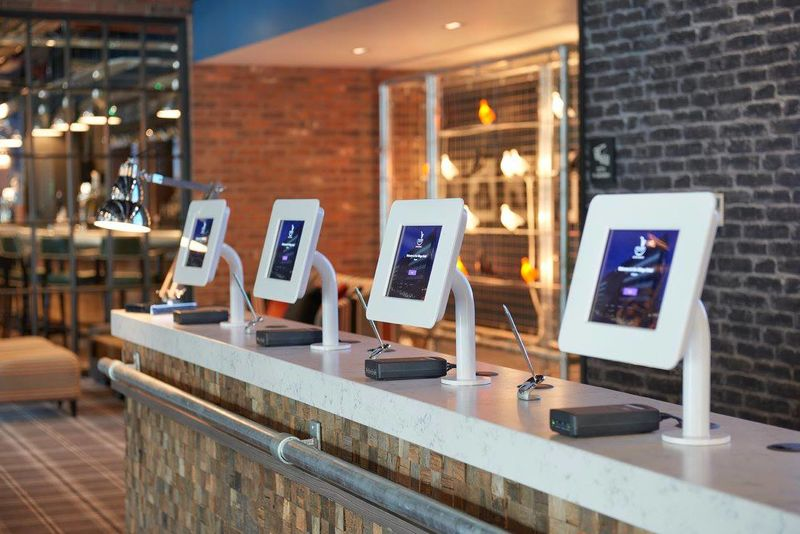
İnteraktiv xəritələrin və mehmanxanalar üçün yerli məlumatların üstünlüklərindən biri odur ki, onlar qonaqların əlaqəsini və sədaqətini yaxşılaşdıra bilər. Qonaqlara yerli ərazini və otel imkanlarını araşdırmaq üçün istifadəçi dostu və cəlbedici platforma təqdim etməklə, otellər qonaqları üçün daha immersiv və yaddaqalan təcrübə yarada bilər. Üstəlik, bu, həm də oteli rəqiblərindən fərqləndirməyə kömək edə bilər, çünki qonaqlar yerli əraziyə hərtərəfli bələdçi təklif edən oteli seçmə ehtimalı daha yüksək ola bilər.
Həmçinin oxuyun: Məhkumlar üçün IPTV Sistemləri üzrə Kompleks Bələdçi

İnteraktiv xəritələri və yerli məlumatları otellərdə IPTV sistemi ilə inteqrasiya etmək üçün sistem qonaqlara televizorun pultundan və ya smartfonundan istifadə edərək məlumat əldə etməyə imkan verəcək şəkildə tərtib edilə bilər. Məsələn, qonaqlar yerli ərazini kəşf etmək, otel şəraitinə baxmaq və rezervasiya etmək üçün IPTV sistemindən istifadə edə bilərlər. Sistem həmçinin qonaqlara üstünlükləri və əvvəlki fəaliyyətləri əsasında fərdi tövsiyələr vermək üçün tərtib edilə bilər.
Otellərdə interaktiv xəritələrin və yerli məlumatların IPTV sistemi ilə inteqrasiyasının bəzi üstünlüklərinə aşağıdakılar daxildir:
- Hərtərəfli məlumat: İnteraktiv xəritələr və yerli məlumatlar qonaqlara yerli ərazi və otel şəraiti ilə bağlı hərtərəfli bələdçi təqdim edir, qonaq təcrübəsini artırır və qonaq məmnunluğunu artırır.
- Fərdiləşdirmə: Sistem qonaqlara üstünlükləri və əvvəlki fəaliyyətləri əsasında fərdi tövsiyələr təqdim etmək, qonaq təcrübəsini artırmaq və qonaqların iştirakını yaxşılaşdırmaq üçün tərtib edilə bilər.
- Fərqləndirmə: Yerli əraziyə və mehmanxana şəraitinə dair hərtərəfli bələdçi təklif etməklə, otellər rəqiblərindən fərqlənə və daha çox qonaq cəlb edə bilər.
- Artan gəlir: Qonaqlara yerli ərazini və mehmanxana şəraitini araşdırmaq üçün istifadəçi dostu və cəlbedici platforma təqdim etməklə, otellər qonaqları otel imkanlarından və xidmətlərindən istifadə etməyə həvəsləndirərək gəliri artıra bilər.
Xülasə, interaktiv xəritələr və yerli məlumatlar otellər üçün öz qonaqlarını yerli ərazi və mehmanxana şəraiti ilə bağlı hərtərəfli bələdçi ilə təmin etmək üçün vacib vasitədir. Bu sistemləri IPTV sistemi ilə inteqrasiya etməklə, otellər qonaqlara yerli ərazini və otel obyektlərini araşdırmaq üçün istifadəçi dostu və cəlbedici platforma təqdim edə bilər. Bundan əlavə, o, həm də qonaqların əlaqəsini və sadiqliyini yaxşılaşdırmağa, oteli rəqiblərindən fərqləndirməyə və gəliri artırmağa kömək edə bilər.
Həmçinin oxuyun: Yaşayış binanızda IPTV-nin tətbiqi üçün hərtərəfli bələdçi
6. Qonaq Mesajlaşması
Qonaq mesajlaşması qonaqlara öz mobil cihazlarından istifadə edərək otel işçiləri ilə əlaqə saxlamağa imkan verən IPTV sisteminin xüsusiyyətidir. Qonaq mesajlaşma xüsusiyyəti qonaqlara otel işçiləri ilə ünsiyyət qurmaq üçün rahat və səmərəli üsul təqdim edərək, onların qalmasını daha rahat və zövqlü edir.
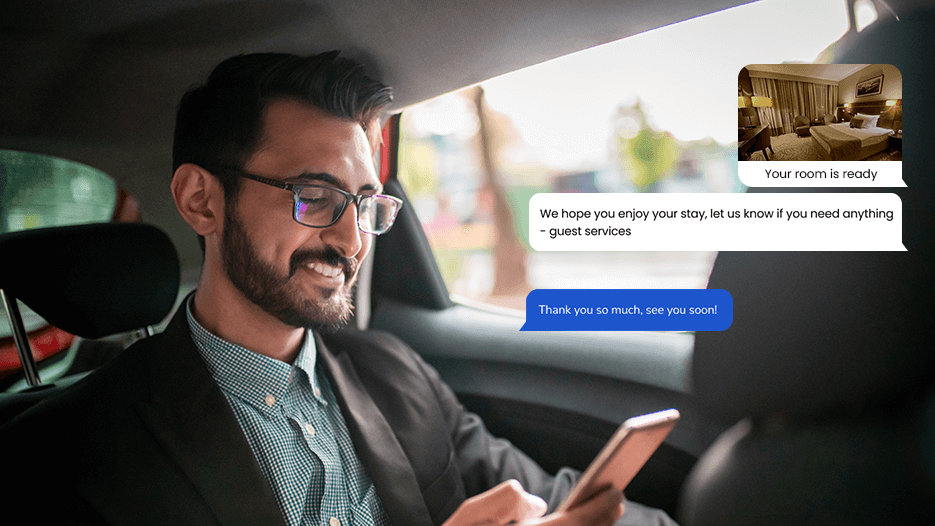
Qonaq mesajlaşmasının əhəmiyyətli üstünlüklərindən biri qonaqlara real vaxt rejimində otel işçiləri ilə əlaqə saxlamağa imkan verməsidir. IPTV sistemi qonaq mesaj göndərdiyi zaman otel işçilərinə bildiriş göndərə bilər ki, bu da onların tez və səmərəli cavab verməsini təmin edir. Bu funksiya xüsusilə qalmaqla bağlı sualları və ya narahatlığı olan qonaqlar üçün faydalıdır, çünki onlar otel işçilərindən operativ cavab ala bilərlər.

Qonaq mesajlaşmasının digər üstünlüyü ondan ibarətdir ki, o, qonaqlara otaqlarını tərk etmədən otel işçiləri ilə əlaqə saxlamağa imkan verir. Bu xüsusiyyət xüsusilə xəstəlik və ya əlillik səbəbindən otağından çıxa bilməyən qonaqlar üçün faydalıdır. Qonaq mesajlaşma xüsusiyyəti qonaqlara otaqlarını tərk etmədən otel işçiləri ilə rahat və səmərəli ünsiyyət qurmağı təmin edir.

Mehmanxana işçiləri ilə ünsiyyət qurmaqla yanaşı, qonaq mesajlaşma funksiyası da qonaqlara otel və onun imkanları haqqında məlumat verə bilər. IPTV sistemi qonaqlara qarşıdan gələn tədbirlər, promosyonlar və otellə bağlı digər məlumatlar barədə bildirişlər göndərə bilər. Bu funksiya xüsusilə otel və onun imkanları ilə tanış olmayan qonaqlar üçün faydalıdır, çünki bu, onlara qalmağı yaxşılaşdıra biləcək faydalı məlumat verir.
Ümumiyyətlə, qonaq mesajlaşma xüsusiyyəti otellərdə qonaq təcrübəsini artıran IPTV sisteminin dəyərli komponentidir. O, qonaqlara mehmanxana işçiləri ilə ünsiyyət qurmağın rahat və səmərəli üsulunu təqdim edir, onların suallarına və narahatlıqlarına operativ cavab almağa imkan verir. Qonaq mesajlaşma funksiyası həmçinin qonaqları otel və onun imkanları haqqında faydalı məlumatlarla təmin edir, onların qalmasını artırır və onu daha əyləncəli edir.
Həmçinin oxuyun: Səhiyyədə IPTV Sistemləri üçün Kompleks Bələdçi
7. Mobil Cihaz İnteqrasiyası
Mobil cihaz inteqrasiyası qonaqlara otel otağında televizora nəzarət etmək və onunla qarşılıqlı əlaqə yaratmaq üçün mobil cihazlarından istifadə etməyə imkan verən IPTV sisteminin xüsusiyyətidir. Mobil cihaz inteqrasiyası xüsusiyyəti qonaqlara IPTV sisteminə daxil olmaq üçün rahat və intuitiv üsul təqdim edir, onların qaldıqları müddətdə ümumi təcrübələrini artırır.
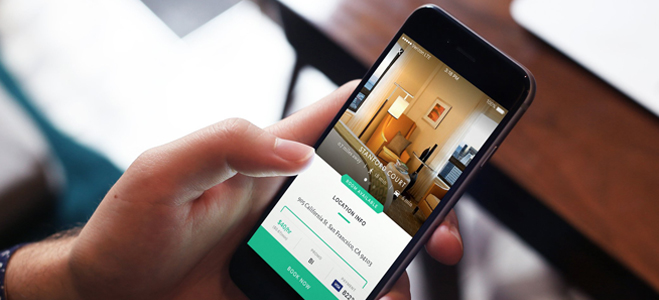
Mobil cihaz inteqrasiyasının əhəmiyyətli üstünlüklərindən biri odur ki, o, qonaqlara mobil cihazlarından istifadə edərək otaqlarında televizora nəzarət etməyə imkan verir. IPTV sisteminə mobil proqram vasitəsilə daxil olmaq olar, bu da qonaqlara öz telefon və ya planşetindən kanallara baxmaq, səs səviyyəsini tənzimləmək və digər TV funksiyalarına nəzarət etmək imkanı verir. Bu xüsusiyyət əyləncə təcrübələrini idarə etmək üçün mobil cihazlarından istifadə etməyə üstünlük verən qonaqlar üçün xüsusilə faydalıdır, çünki bu, onlara tanış və intuitiv interfeys təqdim edir.
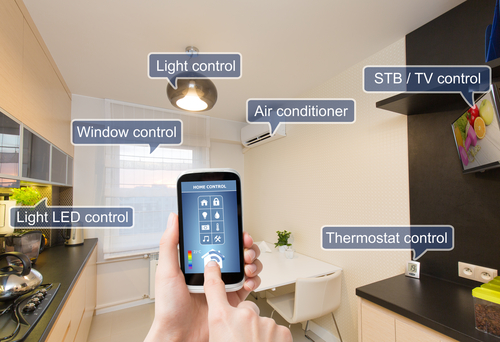
Mobil cihaz inteqrasiyasının digər üstünlüyü ondan ibarətdir ki, o, qonaqlara öz mobil cihazları vasitəsilə müxtəlif əyləncə seçimlərinə daxil olmaq imkanı verir. IPTV sistemi qonaqlara Netflix və Hulu kimi axın xidmətlərinə, eləcə də bir sıra digər tələb olunan məzmunlara çıxış təmin edə bilər. Bu funksiya xüsusilə sevimli şou və filmlərinə öz cədvəlləri üzrə baxmağa üstünlük verən qonaqlar üçün faydalıdır, çünki bu, onlara əyləncəyə daxil olmaq üçün rahat və çevik üsul təqdim edir.
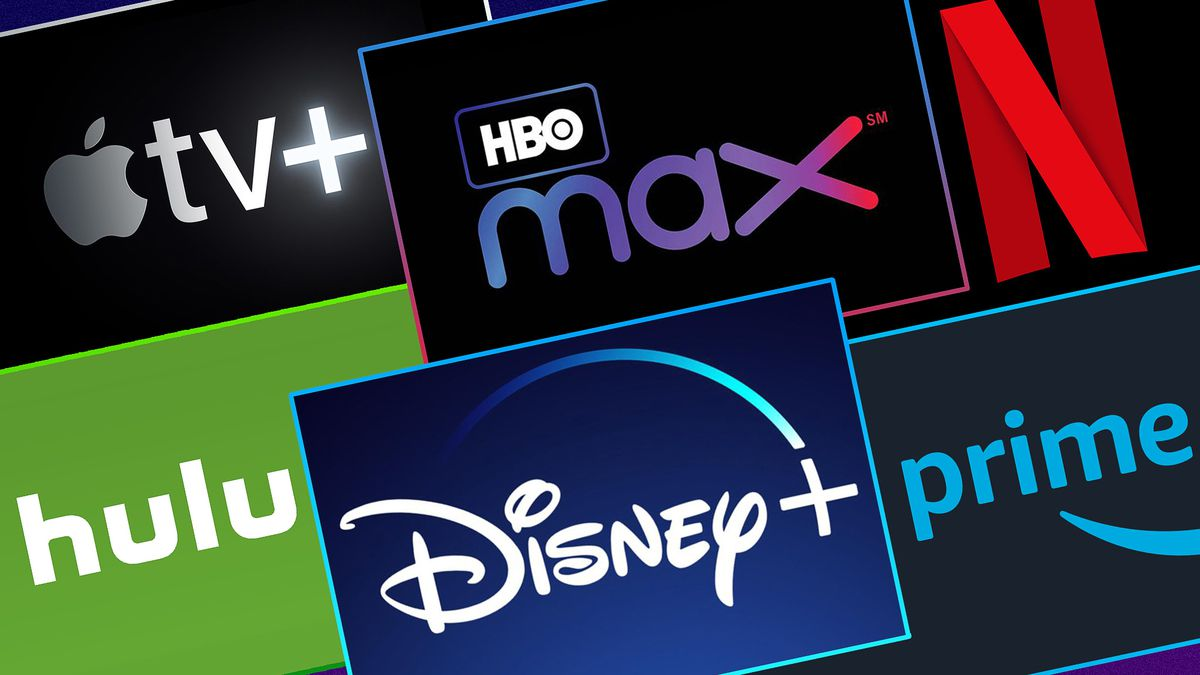
Əyləncə seçimləri ilə yanaşı, mobil cihaz inteqrasiyası da qonaqlara otellə bağlı məlumat və xidmətlərə çıxış təmin edə bilər. Mobil proqramdan restoran saatları və spa xidmətləri kimi otel haqqında məlumat əldə etmək, həmçinin rezervasiya etmək və xidmətlərə müraciət etmək üçün istifadə edilə bilər. Bu xüsusiyyət səyahət təcrübələrini idarə etmək üçün mobil cihazlarından istifadə etməyə üstünlük verən qonaqlar üçün xüsusilə faydalıdır, çünki bu, onlara otellə bağlı bütün ehtiyacları üçün bir pəncərə təmin edir.
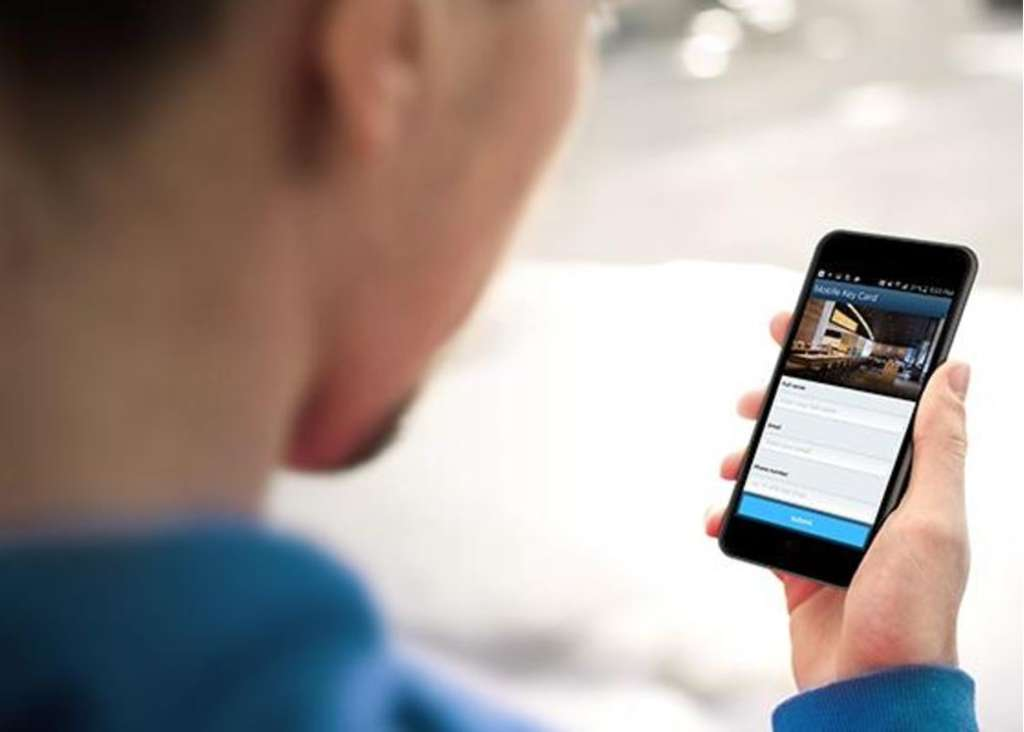
Ümumilikdə, mobil cihaz inteqrasiyası otellərdə qonaq təcrübəsini artıran IPTV sisteminin dəyərli komponentidir. O, qonaqlara IPTV sisteminə daxil olmaq üçün rahat və intuitiv üsul, həmçinin geniş çeşidli əyləncə seçimləri və otellə bağlı məlumat və xidmətlər təqdim edir. Mobil cihazın inteqrasiyası xüsusiyyəti xüsusilə əyləncə təcrübələrini idarə etmək və səyahət ehtiyaclarını idarə etmək üçün mobil cihazlarından istifadə etməyə üstünlük verən qonaqlar üçün faydalıdır, bu da onların qalmasını daha rahat və zövqlü edir.
8. Dil dəstəyi
Dil dəstəyi qonaqlara üstünlük verdikləri dildə məzmuna daxil olmağa imkan verən IPTV sisteminin vacib xüsusiyyətidir. Dil dəstəyi ilə qonaqlar, qaldıqları müddətdə ümumi təcrübələrini artıraraq, dil maneələrindən narahat olmadan sevimli şou və filmlərdən həzz ala bilərlər.

Dil dəstəyinin əhəmiyyətli üstünlüklərindən biri odur ki, o, otellərə müxtəlif qonaqlara xidmət göstərməyə imkan verir. Dil dəstəyi ilə otellər bir çox dildə məzmun təqdim edə bilər və bütün qonaqların dil seçimlərindən asılı olmayaraq qalmağı təmin edə bilər. Bu xüsusiyyət beynəlxalq səyahətçilərə xidmət göstərən otellər üçün xüsusilə faydalıdır, çünki o, onlara fərdiləşdirilmiş və əhatəli təcrübə təklif etmək üçün bir yol təqdim edir.

Dil dəstəyinin digər üstünlüyü ondan ibarətdir ki, o, qonaqların IPTV sistemində naviqasiyasını asanlaşdırmaqla ümumi qonaq təcrübəsini artıra bilər. Sistem qonağın dil seçimlərini avtomatik aşkar etmək üçün dizayn edilə bilər, onlara üstünlük verdiyi dildə fərdiləşdirilmiş interfeys təqdim edir. Bu xüsusiyyət ziyarət etdikləri ölkənin dili ilə tanış olmayan qonaqlar üçün xüsusilə faydalıdır, çünki bu, onlara dil maneəsini keçmədən məzmuna daxil olmaq üçün bir yol təqdim edir.

Bir çox dildə məzmun təmin etməklə yanaşı, dil dəstəyi qonaqlara subtitrlərə və qapalı yazılara girişi də təmin edə bilər. Bu funksiya xüsusilə kar və ya eşitmə qabiliyyəti zəif olan qonaqlar üçün faydalıdır, çünki o, onlara audioya etibar etmədən məzmundan həzz almaq üçün bir yol təqdim edir. Subtitrlər və qapalı başlıqlar məzmunun dilində sərbəst danışa bilməyən qonaqlar üçün də faydalı ola bilər, çünki bu, onlara süjet və dialoqla yanaşı izləmək üçün bir yol təqdim edir.
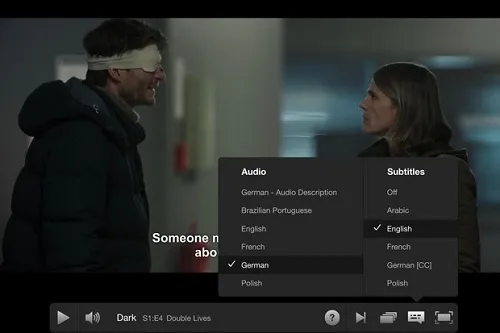
Ümumiyyətlə, dil dəstəyi otellərdə qonaq təcrübəsini artıran IPTV sisteminin dəyərli komponentidir. O, qonaqlara üstünlük verdikləri dildə məzmuna daxil olmaq üçün bir yol, həmçinin sistemdə naviqasiyanı asanlaşdıran fərdiləşdirilmiş interfeys təqdim edir. Dil dəstəyi beynəlxalq səyahətçilərə xidmət göstərən mehmanxanalar üçün xüsusilə faydalıdır, çünki bu, onlara dünyanın hər yerindən gələn qonaqları əhatə edən fərdiləşdirilmiş və inklüziv təcrübə təklif etmək üçün bir yol təqdim edir.
9. Rəqəmsal İşarə
IPTV sistemləri otelin bütün ərazisində rəqəmsal lövhələrin nümayişi, mehmanxana şəraiti və xidmətlərinin təbliği və yerli attraksionlar və tədbirlər haqqında məlumatın verilməsi üçün istifadə edilə bilər.
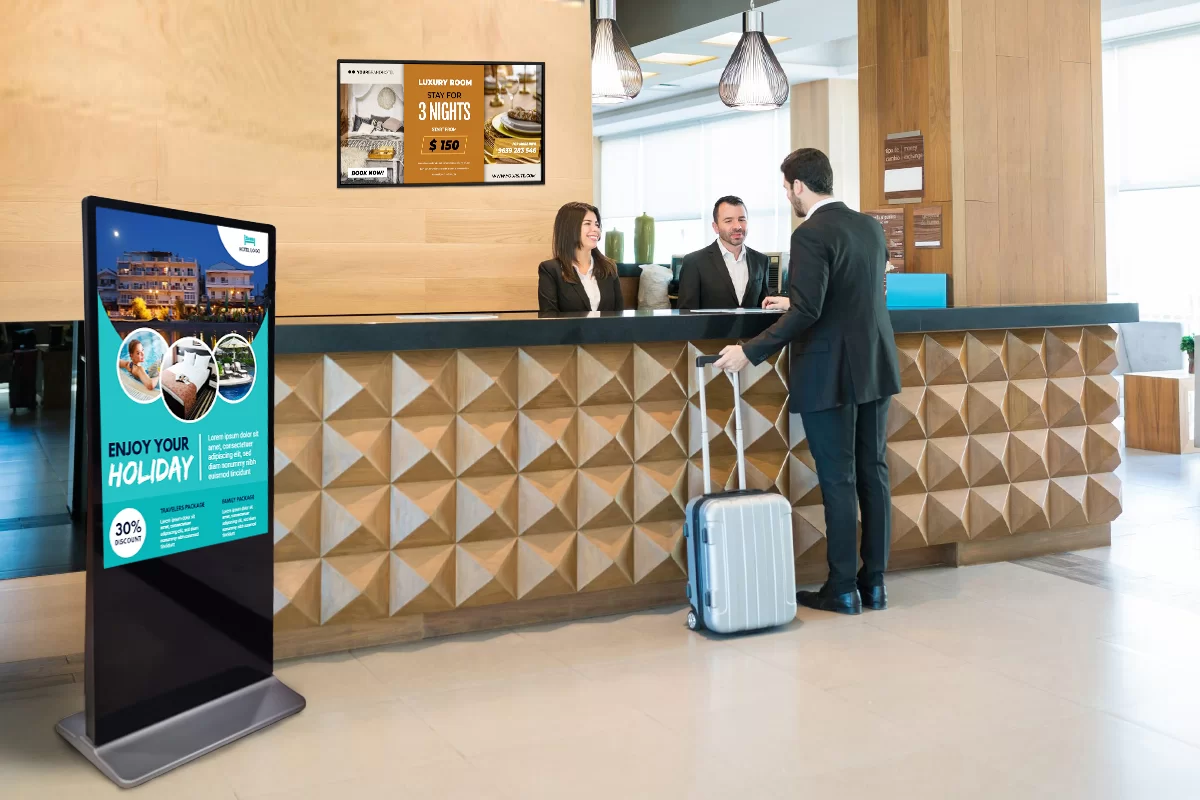
Rəqəmsal lövhə qonaqları cəlb etmək və otel şəraiti və xidmətlərini tanıtmaq üçün istifadə edilə bilən güclü bir vasitədir. IPTV sistemi ilə otellər otelin hər yerində rəqəmsal lövhə nümayiş etdirə, qonaqlara otel tədbirləri, promosyonlar və xidmətlər haqqında ən son məlumatı təqdim edə bilər.
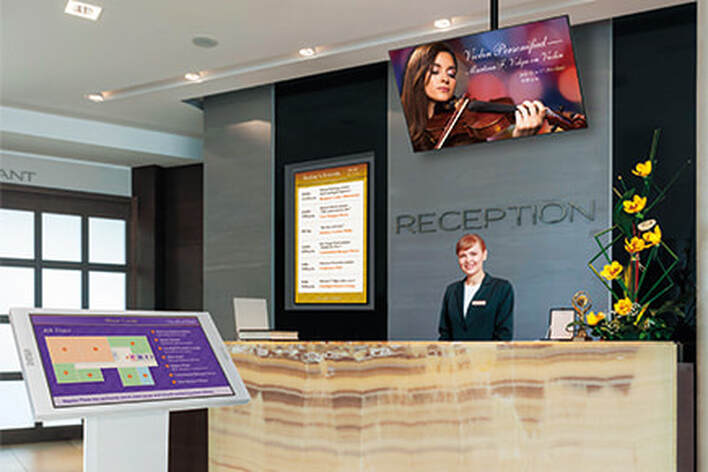
Rəqəmsal işarələr üçün IPTV sistemindən istifadənin əsas üstünlüklərindən biri odur ki, o, otellərə real vaxt rejimində qonaqlarla ünsiyyət qurmaq imkanı verir. Sistem qarşıdan gələn tədbirlər, promosyonlar və xidmətlər haqqında məlumatları göstərmək üçün istifadə oluna bilər ki, bu da qonaqlara qaldıqları müddətdə məlumatlı və məşğul olmağa imkan verir. Bu xüsusiyyət konfrans və tədbirlər keçirən otellər üçün xüsusilə faydalıdır, çünki o, iştirakçılara vacib məlumatları çatdırmaq üçün bir yol təqdim edir.
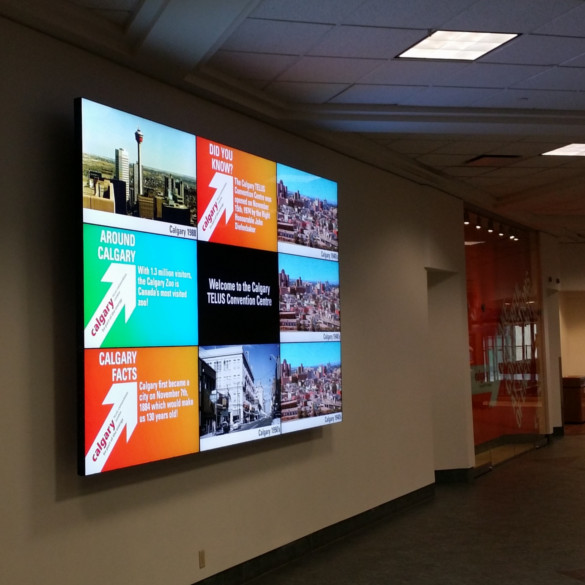
Rəqəmsal nişanlar üçün IPTV sistemindən istifadənin digər üstünlüyü ondan ibarətdir ki, ondan qonaqlara yerli attraksionlar və tədbirlər haqqında məlumat vermək mümkündür. Bu xüsusiyyət ərazi ilə tanış olmayan qonaqlar üçün xüsusilə faydalıdır, çünki bu, onlara yeni təcrübələr və attraksionlar kəşf etmək üçün bir yol təqdim edir. Sistem yerli restoranlar, muzeylər və digər maraqlı yerlər haqqında məlumatları nümayiş etdirmək üçün tərtib edilə bilər, qonaqlara fərdiləşdirilmiş və informativ təcrübə təqdim edə bilər.

Otelin şəraiti və yerli görməli yerləri təbliğ etməklə yanaşı, rəqəmsal lövhə də qonaqlara onların qaldıqları barədə vacib məlumat vermək üçün istifadə edilə bilər. Sistem check-out vaxtları, otaq xidməti və digər mehmanxana xidmətləri haqqında məlumatları göstərmək üçün tərtib oluna bilər ki, bu da qonaqların qaldıqları yerləri idarə etməsini asanlaşdırır.
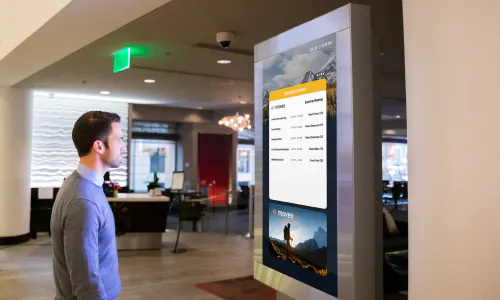
Ümumilikdə, rəqəmsal işarələr üçün IPTV sistemindən istifadə otellər üçün qonaqları cəlb etmək və onların imkanlarını və xidmətlərini tanıtmaq üçün güclü bir yoldur. O, qonaqları mehmanxana tədbirləri, promosyonlar və xidmətlər, habelə yerli attraksionlar və tədbirlər haqqında ən son məlumatlarla təmin edir. Rəqəmsal lövhədən istifadə etməklə, otellər qonaqların təcrübəsini artıra və qonaqlara fərdi və məlumatlı bir qonaqlıq təqdim edə bilər.
10. Fərdiləşdirmə
Fərdiləşdirilmiş tövsiyələr qonaqlara baxış tarixçəsi və seçimlərinə əsasən televiziya şouları və filmlər üçün uyğunlaşdırılmış tövsiyələr almağa imkan verən xüsusiyyətdir. Bu xüsusiyyət qonaqpərvərlik sənayesində getdikcə daha çox əhəmiyyət kəsb edir, çünki otellər qonaqlarının əyləncə təcrübəsini artırmağa və rəqiblərdən fərqlənməyə çalışırlar.
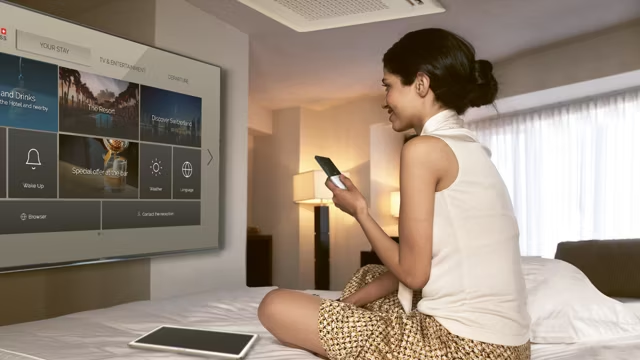
Fərdiləşdirilmiş tövsiyələrin əsas üstünlüklərindən biri odur ki, onlar qonaqlara başqa cür tapmadıqları yeni məzmunu kəşf etməyə kömək edə bilərlər. Qonağın baxış tarixçəsini və üstünlüklərini təhlil edərək, sistem onlara maraqlı ola biləcək televiziya şoularını və filmləri təklif edə bilər. Bu, qonağın əyləncə təcrübəsini artırmaqla yanaşı, onların daha uzun müddət qalması və gələcəkdə geri qayıtması ehtimalını da artırır.

Mehmanxanalarda fərdiləşdirilmiş tövsiyələrin IPTV sistemi ilə inteqrasiyası nisbətən sadədir. Sistem qonağın baxış tarixçəsi və üstünlükləri haqqında məlumat toplamaq üçün konfiqurasiya edilə bilər, daha sonra bunlardan xüsusi tövsiyələr yaratmaq üçün istifadə edilə bilər. Tövsiyələr proqram təlimatında və ya IPTV interfeysinin ayrıca bölməsində göstərilə bilər.
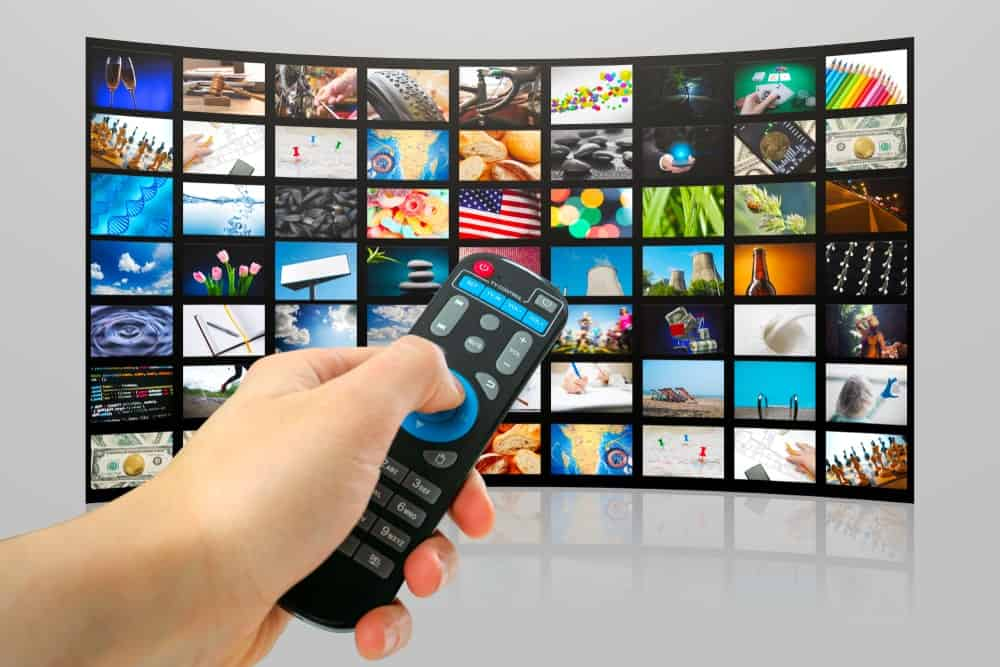
Tövsiyələrin mümkün qədər dəqiq olmasını təmin etmək üçün sistem qonağın yaşı, cinsi, dili və mədəni keçmişi də daxil olmaqla bir sıra amilləri nəzərə almaq üçün tərtib edilə bilər. O, həmçinin tövsiyələri daha da təkmilləşdirmək üçün reytinqlər və rəylər kimi qonaqların rəylərini daxil edə bilər.

Qonaqların təcrübəsini artırmaqla yanaşı, fərdi tövsiyələr də bir sıra yollarla otellərə fayda verə bilər. Məsələn, onlar diqqətdən kənarda qala biləcək az tanınan məzmunu təbliğ etməklə otellərə məzmun xərclərini azaltmağa kömək edə bilərlər. Onlar həmçinin qonaqlara fərdiləşdirilmiş və yaddaqalan əyləncə təcrübəsi təqdim etməklə, otellərə müştəri sədaqətini artırmağa kömək edə bilərlər.
Fərdi tövsiyələrə daxil edilə bilən bəzi əlavə xüsusiyyətlər bunlardır:
- Çox cihaz sinxronizasiyası: Fərdiləşdirilmiş tövsiyələr sistemi qonağın mobil telefonu və ya planşeti kimi bir çox cihazda sinxronizasiya etmək üçün tərtib edilə bilər. Bu o deməkdir ki, qonaqlar TV-də verilişə baxmağa başlaya və sonra yerlərini və tövsiyələrini itirmədən onu mobil cihazlarında izləməyə davam edə bilərlər.
- Valideyn nəzarəti: Sistem valideyn nəzarətini təmin etmək üçün konfiqurasiya edilə bilər ki, bu da valideynlərə uşaqlarının daxil ola biləcəyi məzmun növlərinə məhdudiyyətlər təyin etməyə imkan verir. Bu, valideynlərə dinclik bəxş edə və otelin təhlükəsiz və ailə üçün əlverişli mühit təmin etməsini təmin edə bilər.
- Sosial paylaşım: Sistem qonaqlara öz baxış tarixçələrini və tövsiyələrini sosial media platformalarında paylaşmağa imkan verə bilər. Bu, oteli tanıtmağa və brend məlumatlılığını artırmağa kömək edə bilər, həmçinin qonaqlara əyləncə təcrübələri haqqında dostları və ailəsi ilə əlaqə yaratmaq imkanı verə bilər.
- Dil seçimləri: Sistem qonağın dil üstünlüklərini nəzərə almaq, onların üstünlük verdiyi dildə mövcud olan məzmunu tövsiyə etmək üçün tərtib edilə bilər. Bu, yerli dildə sərbəst danışa bilməyən beynəlxalq qonaqlar üçün xüsusilə faydalı ola bilər.
- Xüsusi promosyonlar: Sistemdən hər baxışa görə ödənişli filmlərə endirimlər və ya premium məzmuna pulsuz giriş kimi xüsusi təkliflər və promosyonlar təşviq etmək üçün istifadə edilə bilər. Bu, otelin gəlirini artırmağa və qonaqlara qaldıqları müddətdə əlavə dəyər təmin etməyə kömək edə bilər.
Bu əlavə xüsusiyyətləri fərdiləşdirilmiş tövsiyələrə daxil etməklə, otellər qonaqlara daha da fərdiləşdirilmiş və cəlbedici əyləncə təcrübəsi təqdim edə, eyni zamanda artan gəlir və brend məlumatlılığından faydalana bilər.
Ümumilikdə, fərdiləşdirilmiş tövsiyələr qonaq təcrübəsini artıra və otelləri rəqabət üstünlüyü ilə təmin edə bilən dəyərli xüsusiyyətdir. Bu xüsusiyyəti IPTV sistemi ilə inteqrasiya etməklə, otellər qonaqlara geri qayıtmağa davam edəcək qüsursuz və fərdiləşdirilmiş əyləncə təcrübəsi təqdim edə bilər.
11. Fitnes və sağlamlıq məzmunu
Otelin IPTV sistemlərində mövcud olan fitnes və sağlamlıq məzmunu qonaqlara səyahətləri zamanı sağlam vərdişləri təşviq edən resurslara çıxış imkanı verir. Sağlamlıq və sağlamlıq istehlakçılar üçün getdikcə daha çox əhəmiyyət kəsb edir və otellər bu tendensiyaya cavab verən həllər təqdim etməyin dəyərini dərk edirlər.
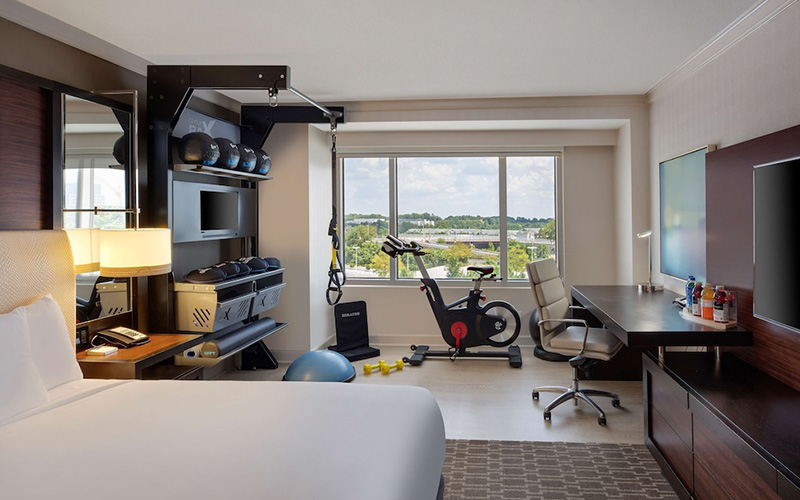
IPTV sistemləri vasitəsilə təklif olunan fitness və sağlamlıq məzmununa məşq videoları, eləcə də bələdçi meditasiya seansları daxildir. Otel qonaqları günün istənilən vaxtında bu videoları tələb etdikdə əldə edə bilər ki, bu da günün fəaliyyətinə başlamazdan əvvəl sürətli yoqa seansına və ya məşqə uyğunlaşmağı asanlaşdırır. Bu, sağlam həyat tərzini təbliğ edir və qonaqlara hətta səyahət zamanı belə müntəzəm fitnes proqramlarına sadiq qalmağa kömək edir.

Fitnes və sağlamlıq məzmununu IPTV sistemlərinə inteqrasiya edən otellər üçün ən əhəmiyyətli üstünlüklərdən biri qonaqların təcrübəsinə dəyər qatmasıdır. Qonaqlar təkrar rezervasiyalara və müsbət rəylərə səbəb ola biləcək bu resurslara çıxışı yüksək qiymətləndirirlər. Sağlamlıq və sağlamlıqla bağlı yüksək keyfiyyətli məzmunun təqdim edilməsi brend imicini gücləndirir və oteli rəqiblərdən fərqləndirir.

Fitnes və sağlamlıq məzmununun inteqrasiyası sadə və sadədir. Oteldə ilk növbədə İnternet Protokolu Televiziyası (IPTV) sistemi olmalıdır. Quraşdırıldıqdan sonra fitness və sağlamlıq məzmunu IPTV serverinə əlavə oluna və interfeys vasitəsilə təqdim edilə bilər. Əlavə məzmun əlavə etmək və ya uyğun olmayan məlumatları silmək də asanlıqla edilə bilər, məzmunun həmişə yeni olmasını və qonaqların ehtiyaclarına uyğun olmasını təmin edir.
Xülasə, IPTV sistemləri vasitəsilə fitness və sağlamlıq məzmununun təklif edilməsi otellər üçün qonaqlarına əlavə dəyər təqdim etmək üçün əla yoldur. O, sağlam həyat tərzini təbliğ edir, brendi gücləndirir və oteli rəqiblərdən fərqləndirməyə kömək edir. Bundan əlavə, otelin üstünlükləri və qonaqların ehtiyaclarına uyğun olaraq inteqrasiya etmək və fərdiləşdirmək asandır.
12. Otaqda alış-veriş
Otaqda alış-veriş otellərdəki bəzi IPTV sistemlərinin imkanlarına aiddir ki, bu da qonaqlara öz televizorları vasitəsilə müxtəlif məhsullara baxmaq və birbaşa almaq imkanı verir. Bu tip sistem adətən mehmanxana markalı mallar və ya yerli suvenirlər kimi bir sıra məhsulların təqdim edilməsinə imkan verir.

Bu texnologiyanın otellərin IPTV sistemlərinə inteqrasiyası bir neçə səbəbə görə vacibdir. Birincisi, bu, otaqlarını tərk etmək istəməyən və ya başqa yerdə alış-veriş etmək istəməyən qonaqlar üçün rahatlığı və alış asanlığını asanlaşdırır. Bundan əlavə, otellərə müxtəlif məhsulların marketinqi və satışı ilə əlavə gəlir əldə etməyə imkan verir.
Sizi bəyənirsiniz: Otel Marketinqi: Rezervasyonları və Gəlirləri Artırmaq üçün Mükəmməl Bələdçi
Otellər üçün otaqda alış-verişin əhəmiyyətli faydalarından biri qonaqların cəlb edilməsi və sədaqətinin artması potensialıdır. Unikal, yerli məhsullar və digər məhsullar təklif etməklə, otellər eksklüzivlik hissi yarada və unikal təcrübə axtaran səyahətçilər üçün müraciət edə bilər, eyni zamanda otel brendinin tanınmasını artırır.
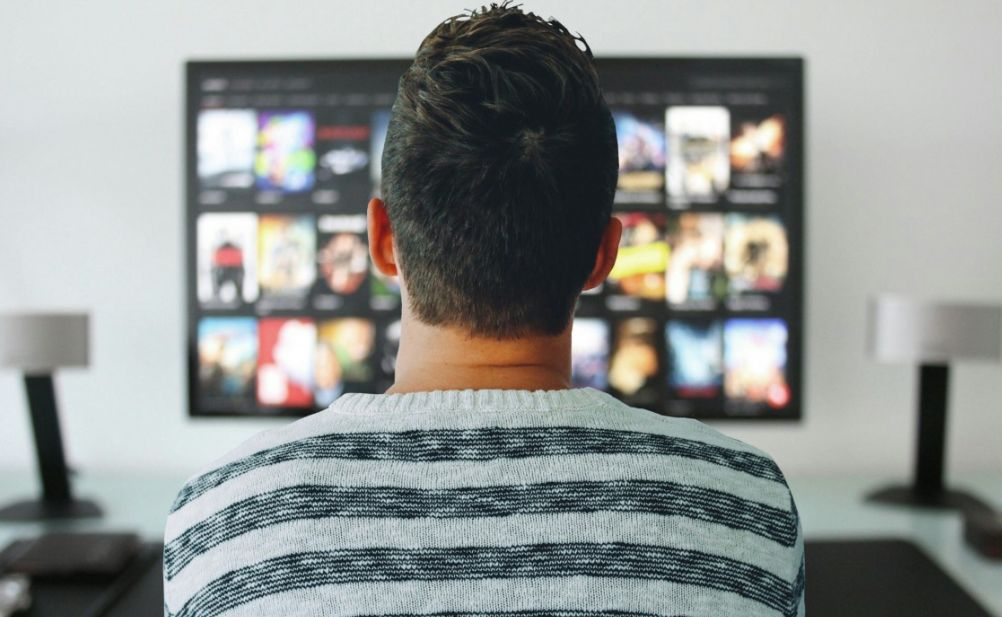
Otaqdaxili alış-veriş sistemini IPTV şəbəkəsinə inteqrasiya etmək üçün otellər TV interfeysi ilə inteqrasiya edən onlayn alış-veriş platforması və ya kataloq yaratmaq üçün provayderlə işləməli olacaqlar. Qonaqlar daha sonra məhsul məlumatlarına və şəkillərinə baxa, məhsulları səbətə əlavə edə və uzaqdan idarəetmə vasitəsi ilə təhlükəsiz ödəniş qapısı vasitəsilə yoxlaya biləcəklər.
- Asan sifariş prosesi: Ekran ekranı ilə qonaqlar gözləmədə gözləməyə və ya şəxsən heç kimlə danışmağa ehtiyac olmadan sistemdə asanlıqla naviqasiya edə, istədikləri əşyaları axtara və sifarişləri tez yerinə yetirə bilərlər.
- Uyğun məzmun: IPTV otaqdaxili alış-veriş sistemi qonaqların tarixçəsi və üstünlükləri əsasında fərdiləşdirilmiş tövsiyələr təklif edə bilər. Bu, qonaqların özlərini dəyərli hiss etmələrini və gələcəkdə daha çox alış-veriş etmələrini təmin edir.
- Dərhal Dil Tərcüməsi: Əlavə bir üstünlük, ağıllı dil alətindən istifadə edərək alış-veriş səhifələrinin ani tərcüməsini təmin etmək seçimidir, bu, beynəlxalq qonaqlara məhsulların təsvirini dərhal başa düşməyə və satın alma ehtimalını artırmağa kömək edəcəkdir.
Yekun olaraq qeyd edək ki, otaqda alış-verişin otel IPTV sistemlərinə tətbiqi həm qonaqlara, həm də otellərə əhəmiyyətli dərəcədə fayda verə bilər. Qonaqlar rahat və fərdiləşdirilmiş alış-veriş təcrübəsindən həzz ala bilərlər, otellər isə əlavə gəlir əldə edə və öz brendlərinin tanınmasını və qonaqlarla əlaqəsini artıra bilər.
13. Fərdi salamlama mesajları
Fərdi salamlama mesajları bəzi otel IPTV sistemlərinin xüsusiyyətidir və qonaqlar öz otağına ilk daxil olduqda fərdiləşdirilmiş və uyğunlaşdırılmış detalları göstərə bilər. Bu mesajlarda adətən qonağın adı, giriş və çıxış tarixləri, otaq nömrəsi və digər müvafiq məlumatlar kimi qalmaq təfərrüatları var.
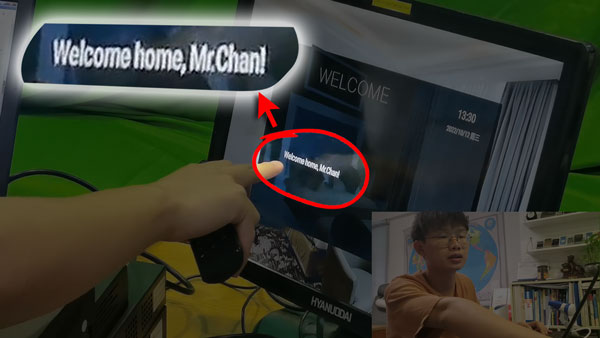
Bu xüsusiyyət otellər üçün çox vacibdir, çünki bu, onların qonaqlarına göstərdikləri xidmət səviyyəsini nümayiş etdirmək üçün əla fürsət yaradır. Bu fərdiləşdirilmiş funksiyanı təklif etməklə, qonaqlar özlərini təqdir olunduğunu, qiymətləndirildiyini və xoş qarşılandığını hiss edirlər ki, bu da qaldıqları müddətdə müsbət təcrübəyə səbəb ola bilər.
:max_bytes(150000):strip_icc()/smiling-businessman-watching-tv-in-hotel-room-184828082-5b7dd371c9e77c0050024799.jpg)
Fərdi salamlama mesajlarına sahib olmağın üstünlüklərindən biri müştəri məmnuniyyəti ballarını artıra bilməsidir. Qonaqlar gəldiyi andan ehtiyaclarının və üstünlüklərinin nəzərə alındığını hiss etdikdə, ümumi təcrübələrini müsbət qiymətləndirə bilərlər.
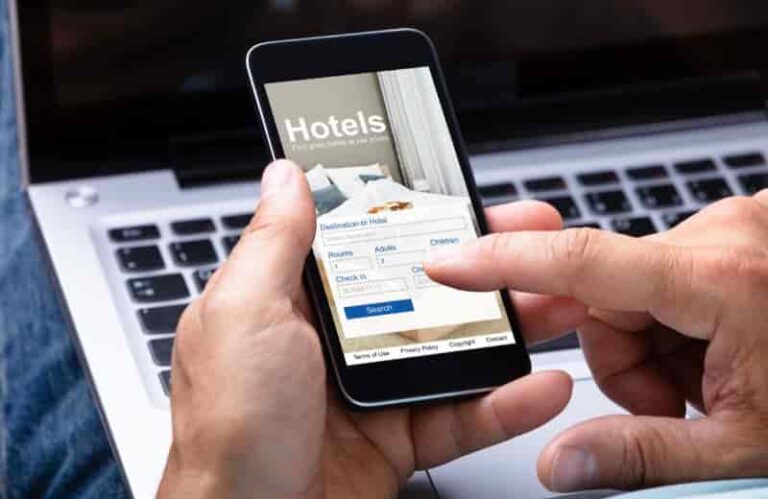
Digər bir üstünlük otelə olan sədaqətinin artmasıdır. Qonaqlar gəliş zamanı xüsusi təbrik aldıqda, onlar başqa bir qonaq deyil, otellə şəxsi əlaqə hiss edirlər. Bu əlaqə hissi təkrar sifarişlərə, tövsiyələrə və hətta müsbət onlayn rəylərə səbəb ola bilər.
Fərdi salamlama mesajı funksiyasını IPTV sisteminə inteqrasiya etmək üçün otellər qeydiyyat zamanı və ya verilənlər bazasında əvvəllər saxlanmış məlumatlar vasitəsilə əldə edilən qonaqların qeydiyyat məlumatlarından istifadə edə bilərlər. İnteqrasiya ilə, qonaq hər dəfə otağına daxil olanda, fərdiləşdirilmiş mesaj avtomatik olaraq göstərilir və qonaqların problemsiz və səy göstərmədən təcrübəsi təmin edilir.

Bəzən otellər qonaqların fərdi seçimlərinə və ya dəyişən şəraitə əsasən fərdi salamlama mesajına daxil olan xüsusi məlumatları dəyişdirməli və ya silməli ola bilər. Bu hallarda otel işçiləri IPTV sisteminin fərdiləşdirmə alətlərindən istifadə edərək lazımi dəyişiklikləri tez bir zamanda edə bilərlər.
Xülasə, otel IPTV sistemində fərdiləşdirilmiş salamlama mesajı xüsusiyyəti qonaq təcrübələrini artıra və otelə sadiqliyini artıra bilən güclü vasitədir. Böyük qonaqpərvərlik sənayesinin daha geniş fərdiləşdirmə meylinin bir hissəsi olaraq, bu xüsusiyyət otellərə yüksək rəqabətli bazarda fərqlənməyə və unudulmaz qonaq təcrübəsi yaratmağa kömək edə bilər.
15. Səsə nəzarət
Səslə idarəetmə bəzi otel IPTV sistemlərində mövcud olan xüsusiyyətdir və qonaqlara televizorlarını və digər otaq xüsusiyyətlərini idarə etmək üçün səs əmrlərindən istifadə etməyə imkan verir. Bu texnologiya xüsusilə mobillik problemi olan və ya əllər-sərbəst təcrübəyə üstünlük verən qonaqlar üçün faydalı ola bilər, çünki o, fiziki pultlara ehtiyacı aradan qaldırır. Bunun əvəzinə qonaqlar səs səviyyəsini tənzimləmək, kanalları dəyişdirmək və ya digər məzmuna daxil olmaq üçün sadəcə səslərindən istifadə edə bilərlər.
Otel nöqteyi-nəzərindən IPTV sisteminə səs nəzarətinin tətbiqi bir sıra üstünlüklər təqdim edir. Birincisi, o, qonaqların otağının texnologiyası ilə qarşılıqlı əlaqədə olmaq üçün rahat və əlçatan üsul təqdim etməklə ümumi qonaq təcrübəsini artıra bilər. Bu, artan qonaq məmnuniyyəti və loyallığına çevrilə bilər ki, bu da daha yüksək doluluq nisbətlərinə və gəlirə səbəb ola bilər. Bundan əlavə, səslə idarəetmə otelləri qonaqların gözündə fərqləndirə bilən qabaqcıl texnologiya təklif edərək, rəqiblərdən fərqlənməyə kömək edə bilər.

Səs nəzarətinin IPTV sisteminə inteqrasiyası xüsusi aparat və proqram komponentlərinin quraşdırılmasını tələb edir. Bunlara adətən televizorda və ya ayrıca cihazda quraşdırılmış mikrofonlar, həmçinin səs əmrlərini şərh edə bilən nitqin tanınması proqramı daxildir. Mövcud IPTV sistemindən asılı olaraq inteqrasiya əlavə infrastruktur və ya mövcud proqram təminatının yeniləmələrini tələb edə bilər.
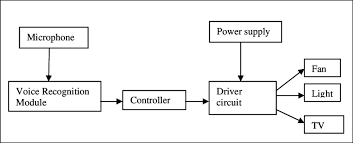
Səslə idarəetmə ilə bağlı potensial problemlərdən biri texnologiyanın qonaqların əmrlərini dəqiq başa düşməsini və onlara cavab verməsini təmin etməkdir. Əgər qonağın güclü vurğusu varsa və ya sistemin tanımadığı bir dildə danışırsa, bu, xüsusilə çətin ola bilər. Bu riski azaltmaq üçün otellər bir çox dil və dialektləri idarə edə bilən dil tanıma texnologiyasına sərmayə qoymalı ola bilər.
Ümumilikdə, səsli idarəetmənin IPTV sisteminə inteqrasiyası otellər üçün qonaq təcrübəsini yüksəltmək və qonaqpərvərlik sənayesində yenilikçi kimi mövqe tutmaq üçün əhəmiyyətli bir fürsətdir. Bu texnologiyaya sərmayə qoymaqla, otellər qonaqlara öz otaqları ilə qarşılıqlı əlaqə yaratmaq üçün daha rahat və əlçatan üsul təqdim edə, eyni zamanda potensial olaraq gəliri və rəqiblərdən fərqlənməyi artıra bilər.
16. Qonaq rəyi və sorğuları
Qonaq rəyi və sorğuları otellər üçün qonaqlarının təcrübələri haqqında dəyərli məlumat toplamaq üçün vacib vasitələrdir. Bəzi otel IPTV sistemlərinin istifadəsi ilə bu rəyi birbaşa qonaq televiziyasından toplamaq asanlaşdı. Bu sistem qonaqlara öz rəylərini və fikirlərini real vaxt rejimində tez bir zamanda təqdim etməyə imkan verir.

Otellər üçün rəy toplamaq vacibdir, çünki bu, qonaqların məmnuniyyətini və saxlanılmasını artırır. Rəy otellərə daha yaxşı xidmətlər təklif etmək üçün təkmilləşdirməli və ya dəyişdirməli olduqları sahələri müəyyən etməyə kömək edə bilər. Bunu etməklə, otellər öz qonaqları üçün daha fərdiləşdirilmiş və qənaətbəxş təcrübə yarada bilərlər.
Qonaq rəyi/sorğu sisteminin IPTV sistemi ilə inteqrasiyasının əsas üstünlüklərindən biri qonaqların öz fikirlərini asanlıqla təqdim etmələrini daha rahat və əlçatan etməsidir. Bundan əlavə, o, həmçinin otellərə məlumatları effektiv şəkildə toplamaq və onları səmərəli təhlil etmək imkanı verir. Qonaqlar qəbul masasına baş çəkməli və ya fiziki kağız əsasında sorğular doldurmalı deyillər, bu, vaxt apara bilər və onları rəy bildirməkdən tamamilə çəkindirə bilər.

İnteqrasiya prosesi qonaqlara sorğuda birbaşa öz otaqlarından iştirak etmək imkanı verən IPTV sisteminə tətbiqin əlavə edilməsini nəzərdə tutur. Frontend adətən qonaqların digərləri ilə yanaşı otelin xidmətləri, işçi heyəti, atmosferi, obyektləri və şəraiti haqqında fikirlərini bildirməkdə iştirakını təşviq etmək üçün istifadəçi dostu olmaq üçün nəzərdə tutulmuşdur. Məlumatların əlçatanlığı asandır və hesabatlar avtomatik olaraq yaradıla bilər ki, bu da otellərə həll edilməli olan sahələri müəyyən etməyə imkan verir.
Digər bir üstünlük ondan ibarətdir ki, otellər qonaqların narahatlıqlarını həll etmək və onların təcrübələrini təkmilləşdirmək üçün fəaliyyət planlarını hazırlamaq üçün lazım gəldikdə məzmun əlavə etmək və ya silməklə və onları ətraflı təhlil etməklə onların xüsusi ehtiyacları əsasında sorğu suallarını fərdiləşdirə bilər. Üstəlik, bu inteqrasiya olunmuş sistem çox vaxt sorğuların nəticələrinin məxfi və anonim qalmasını təmin edir.
Yekun olaraq qeyd edək ki, qonaqların rəyi/sorğu sisteminin IPTV sistemi ilə birləşdirilməsi otellər üçün rahatlıq, əlçatanlıq, fərdiləşdirmə və məlumatların effektiv toplanması və təhlili daxil olmaqla bir sıra üstünlüklər təklif edir. Otellər öz xidmətlərini təkmilləşdirmək, qonaq məmnuniyyətini və saxlama dərəcələrini artırmaq və nəticədə öz nüfuzlarını artırmaq üçün bu anlayışlardan istifadə edə bilərlər.
17 Analytics
Analitika mehmanxanalara qonaqların davranışı və üstünlükləri haqqında dəyərli fikirlər əldə etməyə kömək edə biləcək güclü vasitədir. IPTV sistemindən alınan məlumatları təhlil edərək, otellər qonaqların baxış vərdişlərini daha dərindən başa düşə bilər ki, bu da qonaq təcrübəsini yaxşılaşdırmaq və gəliri artırmaq üçün istifadə edilə bilər.

Qonaq təcrübəsini yaxşılaşdırmaq üçün analitikanın istifadə oluna biləcəyi yollardan biri qonaqların baxış vərdişlərini təhlil etməkdir. Qonaqların hansı filmlərə, televiziya şoularına və digər məzmuna baxdıqlarını izləməklə, otellər öz seçimləri və maraqları haqqında məlumat əldə edə bilərlər. Bu məlumat qonaqları fərdiləşdirilmiş məzmun tövsiyələri ilə təmin etmək, həmçinin hansı məzmunun lisenziyalaşdırılması və təşviq edilməsi barədə qərarları məlumatlandırmaq üçün istifadə edilə bilər.
Qonaq təcrübəsini yaxşılaşdırmaq üçün analitikadan istifadə edilə bilən başqa bir üsul qonaqların otel şəraiti və xidmətləri ilə necə qarşılıqlı əlaqədə olduqlarını izləməkdir. Məsələn, IPTV sistemindən əldə edilən məlumatları təhlil edərək, otellər qonaqlar arasında hansı imkanların ən populyar olduğu barədə məlumat əldə edə bilər, hansı xidmətlərin təşviqi və investisiya edilməsi barədə qərarlar vermək üçün istifadə edilə bilər. Bundan əlavə, analitikadan qonaqların necə gəldiyini izləmək üçün istifadə edilə bilər. qonaq otağı təcrübəsini optimallaşdırmaq üçün istifadə edilə bilən ağıllı termostatlar və işıqlandırma nəzarətləri kimi otaqdaxili texnologiyadan istifadə edirlər.

Analitika həmçinin satış və çarpaz satış imkanlarını müəyyən edərək gəliri artırmaq üçün istifadə edilə bilər. IPTV sistemindən alınan məlumatları təhlil edərək, otellər qonaqlar arasında hansı məzmun və xidmətlərin ən populyar olduğu barədə məlumat əldə edə bilər, hansı məhsul və xidmətlərin təşviq edilməsi barədə qərar qəbul etmək üçün istifadə edilə bilər. Məsələn, otel müəyyən bir filmin və ya TV şousunun qonaqlar arasında populyar olduğunu görsə, o, əlaqəli malları tanıtmağı və ya həmin məzmuna girişi ehtiva edən paket təklif edə bilər.
Ümumiyyətlə, analitika mehmanxanalara qonaqların davranışı və üstünlükləri haqqında dəyərli fikirlər əldə etməyə kömək edə biləcək güclü vasitədir. IPTV sistemindən alınan məlumatları təhlil edərək, otellər qonaqların baxış vərdişlərini daha dərindən başa düşə bilər ki, bu da qonaq təcrübəsini yaxşılaşdırmaq və gəliri artırmaq üçün istifadə edilə bilər. Bundan əlavə, analitika qonaqların otel şəraiti və xidmətləri ilə necə qarşılıqlı əlaqədə olduğunu izləmək üçün istifadə edilə bilər ki, bu da qonaqların təcrübəsini optimallaşdırmaq və satış və çarpaz satış imkanlarını müəyyən etmək üçün istifadə edilə bilər.
Nəticə olaraq, IPTV sistemləri qonaq təcrübəsini artıra və otel fəaliyyətini yaxşılaşdıra bilən bir sıra funksiyalar təklif edir. İnteraktiv proqram bələdçiləri, VOD, qonaq mesajlaşması, mobil cihaz inteqrasiyası, dil dəstəyi, rəqəmsal işarələr, fərdiləşdirmə və analitika təklif edilə bilən xüsusiyyətlərdən yalnız bəziləridir. Oteliniz üçün ən vacib olan xüsusiyyətləri təklif edən IPTV sistemini seçmək və xüsusi ehtiyaclarınıza cavab vermək üçün sisteminizi fərdiləşdirməyə və optimallaşdırmağa kömək edə biləcək bir provayderlə işləmək vacibdir.
IPTV Fərdiləşdirmə
IPTV sistemləri qonaqlara müxtəlif televiziya kanallarına və interaktiv xidmətlərə çıxış təmin etdiyi üçün otellərdə getdikcə populyarlaşır. Bununla belə, otellər IPTV sistemini öz xüsusi tələbləri əsasında fərdiləşdirməklə və ya brendləşdirməklə növbəti səviyyəyə qaldıra bilərlər. Otellərin IPTV sistemini fərdiləşdirə biləcəyi bəzi yollar bunlardır:
1. Şəxsi Kanalların yaradılması
Otellər qonaqlarına eksklüziv olan özəl kanallar yaradaraq, qonaqlarına fərdi təcrübələr təqdim edə bilərlər. Şəxsi kanallar otellərə öz imkanlarını, xidmətlərini və yerli görməli yerlərini daha cəlbedici və məqsədyönlü şəkildə nümayiş etdirməyə imkan verir.

Məsələn, otellər öz restoran menyularını, qarşıdan gələn tədbirləri və ya spa xidmətlərini vurğulayan özəl kanal yarada bilərlər. Bunu etməklə, otellər qonaqlarına əmlaklarının təklif etdiyi hər şeyi kəşf etmələrinə kömək edə bilər. Kanal özəl olduğundan, qonaqlar aidiyyatı olmayan məzmunu gözdən keçirmədən asanlıqla və rahat şəkildə məlumat əldə edə bilərlər.
Bundan əlavə, özəl kanallar otellər üçün ünsiyyət vasitəsi kimi də fəaliyyət göstərə bilər. Bu xüsusiyyət sayəsində otellər fövqəladə hallar və otel siyasəti kimi vacib məlumatları qonaqları ilə asanlıqla paylaşa bilərlər. Bununla qonaqlar qaldıqları müddətdə məlumatlı və hazırlıqlı qala bilərlər.

Daha bir rahatlıq qatı əlavə etmək üçün otellər öz şəxsi kanallarında təkan bildirişlərini aktivləşdirə bilər ki, bu da qonaqlara öz smartfon və ya planşetlərində yeniləmələr və xatırlatmalar almağa imkan verəcək.
Nəticə olaraq, özəl kanallar istənilən otelin xidmət təklifinə dəyərli əlavədir. Onlar öz xidmətlərini, tədbirlərini və obyektlərini xüsusi şəkildə nümayiş etdirməklə otellərə qonaqları üçün daha fərdi təcrübə təqdim etməyə kömək edə bilərlər. Bundan əlavə, özəl kanallar kommunikasiya vasitəsi kimi fəaliyyət göstərə bilər ki, bu da otellərə vacib məlumatları öz qonaqları ilə vaxtında və səmərəli şəkildə paylaşmağa imkan verir.
2. Xüsusi İnterfeys Brendinqi
Otellər indi IPTV sisteminin interfeysini fərdiləşdirərək brendinqini növbəti səviyyəyə qaldıra bilərlər. Fərdi interfeys brendinqi otellər üçün bütün əlaqə nöqtələrində ardıcıl brend təcrübəsi yaratmaq üçün effektiv yoldur. Bununla da, otellər özlərini rəqiblərindən fərqləndirə və qonaqlarına yaddaqalan təcrübə təqdim edə bilərlər.

Otellər öz IPTV sisteminin interfeysini brend kimliyinə uyğunlaşdırmaq üçün rəng sxemini, şrifti və ümumi dizaynı dəyişmək kimi bir çox yolla fərdiləşdirə bilər. Məsələn, əgər otel brendinin şəxsiyyəti müasir və minimalist olmaq ətrafında fırlanırsa, onlar öz IPTV sistem interfeysini təmiz, kəskin xətlər və brendlərini əks etdirən sadə rəng palitrası ilə fərdiləşdirə bilərlər.
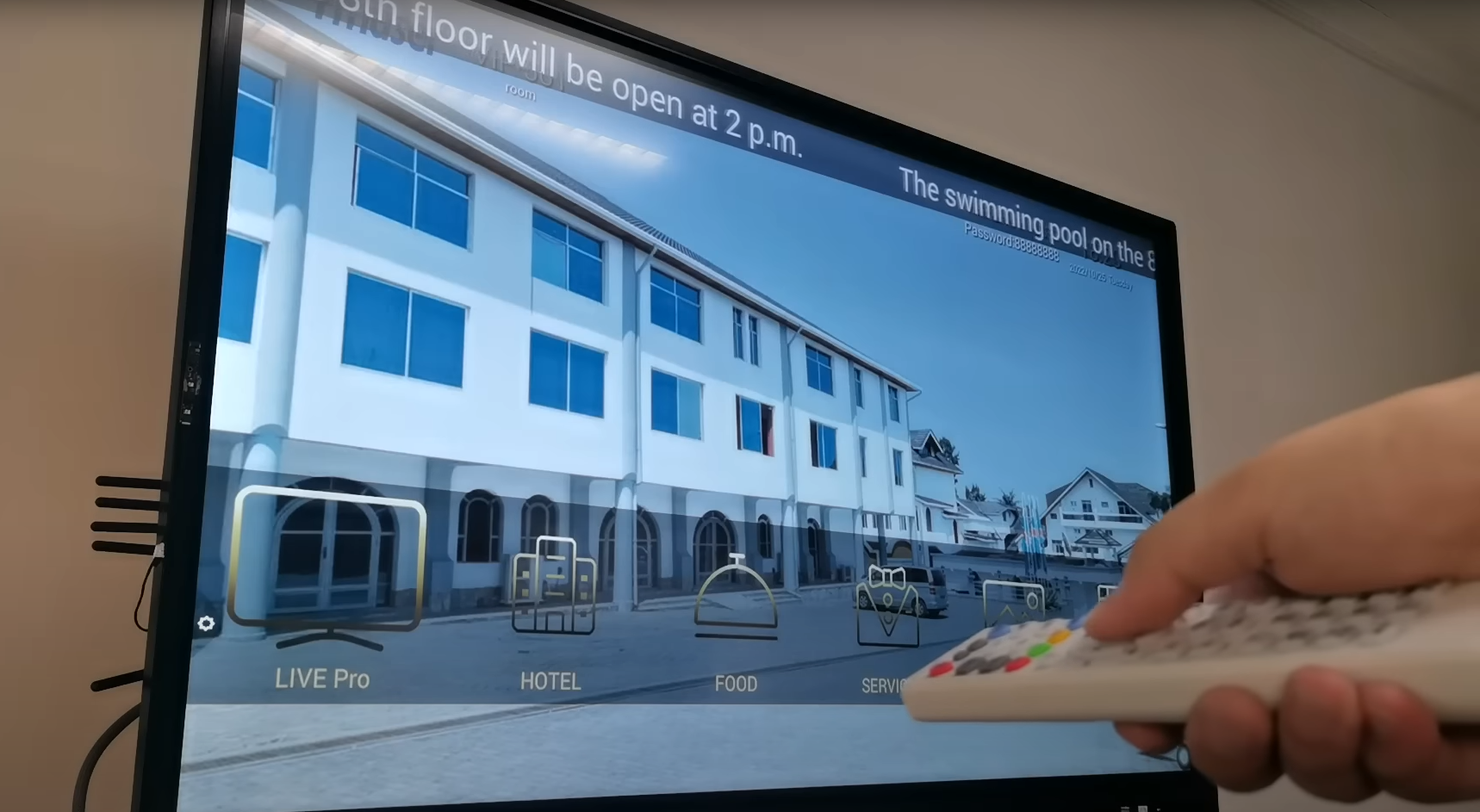
Bundan əlavə, fərdi interfeys brendi otellərə qonaqları üçün daha təsirli təcrübə yaratmağa kömək edə bilər. IPTV sistem interfeysini brendlərini əks etdirən yüksək keyfiyyətli şəkillər və vizuallarla fərdiləşdirməklə, otellər qonaqları üçün daha cəlbedici və yaddaqalan təcrübə yarada bilərlər.
Bundan əlavə, fərdi interfeys markası IPTV sistemindən kənarda olan digər əlaqə nöqtələrinə də keçə bilər. Məsələn, otellər öz loqo və brend rənglərini qonaqlar üçün nəzərdə tutulmuş digər materiallara, məsələn, otaq açar kartları, menyular və tanıtım materiallarına daxil edə bilər.
Nəticə olaraq, fərdi interfeys brendinqi otellərə qonaqları üçün ardıcıl brend təcrübəsi yaratmağa kömək edə biləcək dəyərli xüsusiyyətdir. IPTV sisteminin interfeysini öz brend kimliyinə uyğunlaşdırmaqla otellər rəqiblərindən fərqlənə və qonaqları üçün daha yaddaqalan təcrübə təqdim edə bilərlər. Üstəlik, fərdi interfeys brendinqi IPTV sistemindən kənara çıxa bilər və qonaqlar üçün nəzərdə tutulmuş digər materiallara daxil edilə bilər və otelin brend kimliyini daha da gücləndirir.
3. Sifarişli Tanıtım Məzmununun yaradılması
Artıq otellər öz IPTV sistemlərində nümayiş etdirilə bilən sifarişli tanıtım məzmunu yarada bilərlər. Bu xüsusiyyət, öz imkanlarını və xidmətlərini qonaqlara daha cəlbedici və məqsədyönlü şəkildə tanıtmaq istəyən otellər üçün xüsusilə faydalıdır.
Məsələn, otellər spa xidmətlərini, restoran menyularını və yerli görməli yerləri vurğulayan tanıtım videosu yarada bilərlər. Bununla, otellər öz təkliflərini qonaqlara effektiv şəkildə nümayiş etdirə və onları otelin təklif etdiyi daha çox şeyləri araşdırmağa həvəsləndirə bilər.
Bundan əlavə, sifarişli təqdimat məzmunu otellər tərəfindən əlavə xidmətlər üzrə qonaqları artırmaq üçün istifadə edilə bilər. Məsələn, otellər otaq təkmilləşdirmələrinin, gec ödənişlərin və ya digər əlavə xidmətlərin üstünlüklərini vurğulayan tanıtım videoları yarada bilər. Bu məzmunu IPTV sistemində nümayiş etdirməklə, otellər qonaqları qalmağı təkmilləşdirməyə və bu əlavə xidmətlərin üstünlüklərindən istifadə etməyə təşviq edə bilər.
Sifarişli təqdimat məzmununun başqa bir üstünlüyü ondan ibarətdir ki, o, hər bir otelin xüsusi ehtiyaclarına uyğunlaşdırıla bilər. Məsələn, məşhur dam barı olan bir otel, barın heyrətamiz mənzərələrini və atmosferini nümayiş etdirən tanıtım məzmunu yarada bilər. Alternativ olaraq, geniş toplantı və tədbir imkanları olan bir otel öz tanıtım videolarında bu məkanları vurğulaya və qonaqları oteldə tədbirlər keçirməyə təşviq edə bilər.
Yekun olaraq, sifarişli tanıtım məzmununun yaradılması otellərə öz imkanlarını və xidmətlərini qonaqlara daha məqsədyönlü və cəlbedici şəkildə tanıtmağa kömək edə biləcək dəyərli xüsusiyyətdir. Xüsusi hazırlanmış tanıtım videoları yaratmaqla, otellər öz təkliflərini nümayiş etdirə və qonaqları əmlakın təklif etdiyi daha çox şeyləri araşdırmağa təşviq edə bilər. Əlavə olaraq, sifarişli təqdimat məzmunu qonaqları əlavə xidmətlərdə artırmaq və hər bir qonaq üçün daha fərdi təcrübə yaratmaq üçün istifadə edilə bilər.
4. Digər Otel Sistemləri ilə İnteqrasiya
Artıq otellər öz IPTV sistemini digər otel sistemləri ilə inteqrasiya edə bilərlər əmlak idarəetmə sistemi (PMS) və qonaq otağına nəzarət sistemi (GRMS). Bu inteqrasiya mehmanxanalara tək cihaz vasitəsilə bütün mehmanxana xidmətlərinə daxil ola biləcək qüsursuz və inteqrasiya olunmuş təcrübə təqdim etməyə imkan verir.
PMS ilə inteqrasiyanın üstünlüklərindən biri qonaqların IPTV sistemi vasitəsilə otaq xidməti sifariş etmək imkanıdır. Bununla da qonaqlar telefonu götürmədən və otağından çıxmadan asanlıqla menyuya baxa və sifariş verə bilərlər. Bu xüsusiyyət təkcə qonaq təcrübəsini yaxşılaşdırmaqla yanaşı, həm də otelin otaq xidməti əməliyyatlarının səmərəliliyini artırır.
Bundan əlavə, GRMS ilə inteqrasiya qonaqlara IPTV sistemindən istifadə edərək otaqlarında temperatur və işıqlandırmanı tənzimləməyə imkan verir. Qonaqlara artıq mürəkkəb termostatlar və ya işıq açarı panelləri ilə skripka etmək lazım deyil. Onlar sadəcə olaraq IPTV sistemindən istifadə edərək daha rahat və komfortlu qonaq təcrübəsini təmin edərək, istədikləri temperatur və işıqlandırma səviyyəsini təyin edə bilərlər.
Bundan əlavə, PMS ilə inteqrasiya otellərə qonaqların davranışı və üstünlükləri haqqında dəyərli məlumatlar təqdim edir. IPTV sistemi ilə qonaqların qarşılıqlı əlaqəsini təhlil edərək, mehmanxanalar hansı xidmətlərin populyar, hansının populyar olmadığı barədə məlumat əldə edə bilərlər. Bu məlumatlar qonaq təcrübəsini daha da fərdiləşdirmək və otelin xidmətlərini və təkliflərini təkmilləşdirmək üçün istifadə edilə bilər.
Nəticə olaraq, digər otel sistemləri ilə inteqrasiya qonaq təcrübəsini artıra və otel əməliyyatlarının səmərəliliyini artıra bilən dəyərli xüsusiyyətdir. Qonaqlara bir cihaz vasitəsilə bütün otel xidmətlərinə daxil olmaq imkanı verməklə, otellər qonaqları üçün daha qüsursuz və inteqrasiya olunmuş təcrübə təmin edə bilər. Bundan əlavə, PMS və GRMS ilə inteqrasiya otelləri qonaqların davranışı və üstünlükləri haqqında dəyərli məlumatlarla təmin edir ki, bu da qonaq təcrübəsini artırmaq və otelin xidmətlərini və təkliflərini yaxşılaşdırmaq üçün istifadə edilə bilər.
5. İstifadəçi dostu interfeys
IPTV sistemi qonaqları istifadəsi və naviqasiyası asan olan istifadəçi dostu interfeyslə təmin edir. Bu xüsusiyyət qonaqların ümumi qonaq təcrübəsini artıraraq, axtardıqları kanalları və xidmətləri tez tapmasını təmin edir.
Başlamaq üçün, IPTV sisteminin interfeysi sadəlik və funksionallıq nəzərə alınmaqla hazırlanmışdır. Aydın və sadə tərtibat istifadəçilərə kanallar və xidmətlər arasında asanlıqla göz atmağa imkan verir. Qonaqlar sadəcə olaraq kanallar siyahısına keçə və ya istədiklərini tapmaq üçün axtarış funksiyasından istifadə edə bilərlər. Həmçinin, IPTV sistemi qonaqlara ən çox baxılan kanallarını saxlaya və onlara tez daxil ola bilmələri üçün fərdiləşdirilə bilən sevimlilər siyahıları təqdim edir.
Bundan əlavə, IPTV sistemi qonaqların yararlana biləcəyi bir sıra interaktiv xidmətlər təklif edir. Məsələn, qonaqlar otaqlarının rahatlığından tələb olunan filmlərə baxa, oyun oynaya və ya musiqi dinləyə bilərlər. İnteraktiv xidmətlər qonaqlar üçün fərdi təcrübə təqdim edir, onlar üstünlük verdikləri əyləncə və xidmətlərdən həzz ala bilərlər.
Üstəlik, IPTV sisteminin interfeysi həssasdır və smartfonlar və planşetlər kimi müxtəlif qonaq cihazları ilə uyğun gəlir. Bu uyğunluq qonaqlara televizorlarını idarə etməyə və cihazları vasitəsilə IPTV xidmətlərinə daxil olmağa imkan verir. Bu çeviklik yolda olarkən sevimli şoularını və ya filmlərini izləmək istəyən qonaqlar üçün xüsusilə əlverişlidir.
IPTV sisteminin istifadəçi dostu interfeysi qonaq təcrübəsini artıran vacib xüsusiyyətdir. Sadə, lakin funksional interfeys təqdim etməklə, otellər qonaqların istədikləri kanalları və xidmətləri asanlıqla tapa bilməsini təmin edə bilər. Bundan əlavə, IPTV sisteminin interaktiv xidmətləri qonaqlar üçün fərdi təcrübə təqdim edir, onlar üstünlük verdikləri əyləncə və xidmətlərdən həzz ala bilərlər. Nəhayət, IPTV sisteminin qonaq cihazları ilə uyğunluğu qonaqların təcrübəsini daha da artırır, onlara TV-lərini idarə etməyə və rahat şəkildə cihazları vasitəsilə IPTV xidmətlərinə daxil olmağa imkan verir.
Bütövlükdə, otellər IPTV sistemini xüsusi tələblərinə cavab vermək üçün fərdiləşdirə və ya brendləşdirə bilərlər. Bu fərdiləşdirmə otellərə qonaqlara onların brend kimliyini əks etdirən unikal və fərdi təcrübə təqdim etməyə imkan verir. Şəxsi kanallar yaratmaq, interfeysi fərdiləşdirmək, sifarişli tanıtım məzmunu yaratmaq, digər otel sistemləri ilə inteqrasiya etmək və istifadəçi dostu interfeysi təmin etməklə, otellər IPTV sistemini növbəti səviyyəyə qaldıra bilər.
Təhlükəsizlik və Təhlükəsizlik
IPTV (Internet Protocol Television) qonaqlara interaktiv və fərdiləşdirilmiş TV təcrübəsi təqdim etdiyi üçün qonaqpərvərlik sənayesində getdikcə populyarlaşır. Bununla belə, kibercinayətkarlığın artması ilə otellərin bunu təmin etməsi vacibdir onların qonaqlarının məlumatları qorunur. Bu yazıda biz IPTV sistemlərinin təhlükəsizlik aspektlərini və otellərin qonaqlarının məlumatlarının mühafizəsini necə təmin edə biləcəyini araşdıracağıq.
1. Şəbəkənin Təhlükəsizləşdirilməsi: Məlumatlarınızı qorumaq və icazəsiz girişin qarşısını almaq
IPTV sistemlərinin populyarlığı artmaqda davam etdikcə, otellər üçün IPTV şəbəkələrinin təhlükəsizliyinə üstünlük vermələri vacibdir. IPTV təhlükəsizliyinin mühüm aspekti şəbəkənin özünü qorumaqdır.
Birincisi, otellər Wi-Fi şəbəkələri üçün güclü paroldan istifadə etməlidirlər. Güclü parol böyük və kiçik hərflərin, rəqəmlərin və simvolların birləşməsini ehtiva edir ki, bu da hakerlərin onu təxmin etməsini və ya zor tətbiq etməsini çətinləşdirir. Bundan əlavə, otellər icazəsiz giriş riskini daha da minimuma endirmək üçün parolun mütəmadi olaraq dəyişdirilməsini təmin etməlidir.
İkincisi, otellərin Wi-Fi şəbəkəsini otelin daxili şəbəkəsindən ayrı saxlaması məqsədəuyğundur. Bu, artıq otelin daxili şəbəkəsinə giriş əldə etmiş ola biləcək hakerlər tərəfindən IPTV şəbəkəsinə hücum riskini azaldır. Bundan əlavə, icazəsiz girişin qarşısını almaq üçün Wi-Fi şəbəkəsinin adekvat şəkildə konfiqurasiya edilməsini təmin etmək vacibdir.
Bundan sonra, IPTV şəbəkəsi üzərindən ötürülən məlumatların şifrələnməsi çox vacibdir. Şifrələmə məlumatın onu tutan hər kəs üçün oxunmaz olmasını təmin edir. Şifrələnməyə zəmanət verməyən IPTV sistemləri şəbəkəni hücumlara qarşı həssas qoyur və qonaq məlumatlarını riskə atır. Otellər IPTV şəbəkəsi üzərindən ötürülən məlumatları qorumaq üçün SSL (Secure Sockets Layer) və ya AES (Advanced Encryption Standard) kimi şifrələmə texnologiyalarından istifadə etməlidirlər.
Nəticə olaraq, IPTV təhlükəsizliyi vacibdir və şəbəkələrini qorumaq üçün proaktiv addımlar atmaq otellərdən asılıdır. Şəbəkələrini qorumaqla onlar icazəsiz girişin qarşısını ala, həssas məlumatları qoruya və hücum riskini azalda bilərlər. Güclü parollar, şəbəkə seqmentasiyası və şifrələmə texnologiyaları ilə otellər IPTV sistemlərinin təhlükəsizliyinə əmin ola bilərlər.
2. IPTV Sisteminin Təhlükəsizliyi: Məlumatlarınızın Bütövlüyünün Qorunması
Otellərdəki IPTV sistemləri qonaqların şəxsi və maliyyə məlumatlarının mühafizəsini təmin etmək üçün möhkəm təhlükəsizlik protokolları tələb edir. Bu məqsədlə IPTV sistemlərini tətbiq edən otellər qonaqlarının məlumatlarını qorumaq üçün müvafiq tədbirlər və strategiyalar görməlidirlər.
Otellərin IPTV sistemini qurarkən tətbiq etməli olduğu kritik təhlükəsizlik protokollarından biri rəqəmsal hüquqların idarə edilməsidir (DRM). DRM müəllif hüquqları materiallarının qorunduğunu və qeyri-qanuni surətdə kopyalana və ya yayıla bilməyəcəyini təmin edir. Otellər məzmunun icazəsiz endirilməsinin və ya paylaşılmasının qarşısını almaq üçün DRM texnologiyalarından istifadə edə bilər. Beləliklə, otellər öz əqli mülkiyyətlərini qoruya və qonaqlarının heç bir risk olmadan premium məzmundan istifadə etmələrini təmin edə bilərlər.
Otellərdə IPTV sistemləri üçün digər kritik təhlükəsizlik protokolu HTTPS-dir (Hypertext Transfer Protocol Secure). HTTPS internet üzərindən təhlükəsiz rabitə kanalı təmin edir və server ilə istifadəçi arasında ötürülən məlumatların təhlükəsizliyini təmin etmək üçün şifrələmədən istifadə edir. HTTPS onlayn əməliyyatları qorumaq üçün xüsusilə faydalıdır və otellər tərəfindən istifadə edilən ödəniş şlüz xidmətləri üçün vacib təhlükəsizlik xüsusiyyətidir. HTTPS tətbiq etməklə, otellər qonaqlarının şəxsi və maliyyə məlumatlarının fırıldaqçılıq və haker hücumlarından qorunmasını təmin edə bilər.
DRM və HTTPS ilə yanaşı, otellər qonaqların məlumatlarını qorumaq üçün təhlükəsiz autentifikasiya və ödəniş şlüzləri yaratmalıdır. Təhlükəsiz və özəl autentifikasiya prosesi yaratmaq üçün onlar təhlükəsiz tokenlər və ya rəqəmsal sertifikatlar kimi vasitələrdən istifadə edə bilərlər. Girişə nəzarət, verilənlər bazalarının şifrlənməsi və icazəsiz internet və intranet girişini bloklamaq üçün firewallların istifadəsi üçün düzgün parol siyasətləri otellərdə istifadə olunan IPTV sistemlərinə əlavə təhlükəsizlik qatlarını təmin edəcək.
Nəhayət, otellər etibarlı və təhlükəsiz IPTV sisteminin quraşdırılması xidmətləri, dəstək və texniki xidmət göstərə bilən təcrübəli satıcının xidmətlərindən istifadə etməyi düşünməlidir. Buraya müntəzəm proqram yeniləmələri, sistemin ehtiyat nüsxələri, həmçinin fövqəladə hallarda 24/7 texniki dəstək daxildir. Bu yanaşma vasitəsilə satıcı möhkəm təhlükəsizlik protokollarını tətbiq etmək, IPTV sistemini ən son proqram təminatı və təhlükəsizlik yamaqları ilə güncəl saxlamaq, qonağın məlumatlarının təhlükəsiz və təhlükəsiz qalmasını təmin etmək üçün lazımi təcrübəyə malik olacaq.
Yekun olaraq qeyd edək ki, otellərdə IPTV sistemlərinin təhlükəsizliyi hər şeydən vacibdir, çünki o, qonaqların şəxsi və maliyyə məlumatlarını saxtakarlıq və hücumlardan qoruyur. Otel menecerləri DRM və HTTPS protokollarını tətbiq etməli və autentifikasiya və ödəniş şlüzlərinin təhlükəsizliyini təmin etmək üçün müvafiq tədbirlər görməlidirlər. Təcrübəli satıcının xidmətlərindən istifadə də istifadə edilən IPTV sistemlərinin mühafizəsini, təhlükəsizliyini və istifadəçi dostu olmasını təmin etməyə kömək edə bilər.
3. IPTV Sisteminin Təhlükəsizliyi: Məlumatlarınızın Bütövlüyünün Qorunması
IPTV şəbəkəsinin təhlükəsizliyindən əlavə, otellər həmçinin IPTV sisteminin təhlükəsiz olmasını təmin etməlidirlər. Bu o deməkdir ki, hər hansı potensial zəifliyin qarşısını almaq üçün IPTV sisteminin həm proqram təminatı, həm də aparat komponentləri təhlükəsiz olmalı və mütəmadi olaraq yenilənməlidir.
IPTV proqram yeniləmələri adətən hər hansı məlum təhlükəsizlik zəifliyini aradan qaldıran yamaqları ehtiva edir. Bundan əlavə, yenilənmiş proqram təminatı sistemin funksionallığını və təhlükəsizliyini artıran yeni funksiyaları da əhatə edə bilər. İPTV proqram təminatını mütəmadi olaraq yeniləyərək, otellər sistemlərinin ən son təhlükəsizlik yamaqlarına və xüsusiyyətlərinə malik olmasını təmin edə, təhlükəsizlik təhdidləri riskini azalda bilər.
Avadanlıq təhlükəsizliyi IPTV sisteminin təhlükəsizliyinin digər mühüm aspektidir. Otellər nüfuzlu istehsalçıların yüksək keyfiyyətli avadanlıqlarını seçməklə IPTV sistemlərində istifadə olunan avadanlıqların təhlükəsiz olmasını təmin etməlidirlər. Zaman keçdikcə aparat komponentləri də zəifliklər yarada bilər, ona görə də avadanlığı ən son mikroproqram yeniləmələri və yamaqlarla güncəl saxlamaq eyni dərəcədə vacibdir.
İcazəsiz girişin qarşısını almaq üçün IPTV cihazları parolla qorunmalıdır. Bu, inzibati funksiyaları olan IPTV cihazları üçün xüsusilə vacibdir. Parollar böyük və kiçik hərflərin, rəqəmlərin və simvolların qarışığından istifadə edilməklə yaradılmalıdır.
Nəhayət, otellər qonaqların IPTV cihazlarında heç bir inzibati funksiyaya daxil ola bilməməsini təmin etməlidir. Bu o deməkdir ki, qonaq hesabları sistem parametrlərində və ya şəbəkədə dəyişiklik etməyə imkan verə biləcək inzibati imtiyazlara malik olmamalıdır. Dəyişikliklər etmək imkanı yalnız IPTV sisteminin istismarı və saxlanmasına cavabdeh olan işçilərlə məhdudlaşdırılmalıdır.
Yekun olaraq, həm IPTV şəbəkəsinin, həm də bütövlükdə IPTV sisteminin təhlükəsizliyi otel və qonaq məlumatlarının bütövlüyünü qorumaq üçün vacibdir. Təhlükəsiz proqram təminatı və aparatdan istifadə, sistemləri, parol qoruyan cihazları mütəmadi olaraq yeniləmək və qonaqların inzibati funksiyalara girişini məhdudlaşdırmaq kimi proaktiv addımlar atmaqla otellər IPTV sistemlərinin təhlükəsiz qalmasını təmin edə bilərlər.
4. Qonaq məlumatının qorunması: SHəssas Məlumatların qorunması
Otellər IPTV şəbəkəsinin və sisteminin təhlükəsizliyini təmin etməklə yanaşı, qonaqlarının məlumatlarını qorumaq üçün də addımlar atmalıdırlar. Şəxsi müəyyən edilə bilən məlumatlar (PII), maliyyə məlumatları və şəxsi üstünlüklər kimi həssas məlumatlar IPTV sistemində saxlanıla bilər.
Bu məlumatları qorumaq üçün otellər bütün qonaq məlumatlarının təhlükəsiz şəkildə saxlanmasını və icazəsiz şəxslər üçün əlçatan olmamasını təmin etməlidir. Bu o deməkdir ki, qonaq məlumatlarına giriş səlahiyyətli işçilərlə məhdudlaşdırılmalıdır. Otellər həmçinin qonaq məlumatlarına kimin daxil olduğunu və girişin nə vaxt verildiyini müəyyən edən girişə nəzarət siyasətlərini həyata keçirməlidir.
Şifrələmə qonaq məlumatının qorunmasının digər vacib aspektidir. SSL və ya AES kimi şifrələmə texnologiyalarından istifadə IPTV şəbəkəsi üzərindən ötürülən məlumatların təhlükəsiz və icazəsiz şəxslər üçün oxunmaz olmasını təmin edir. Otellər sındırılmaların və məlumatların pozulmasının qarşısını almaq üçün ötürülmə və saxlama zamanı bütün qonaq məlumatlarının şifrələndiyini təmin etməlidir.
Bundan əlavə, otellər qonaqları otelin məxfilik siyasəti barədə məlumatlandırmalıdır. Bura qonaq məlumatının necə toplandığı, istifadə edildiyi və qorunduğu daxildir. Məlumatların toplanması və onun məqsədli istifadəsi ilə bağlı şəffaf olmaqla, qonaqlar şəxsi məlumatları ilə bağlı əsaslandırılmış qərarlar qəbul edə və onların necə qorunduğunu anlaya bilərlər.
Nəhayət, otellər IPTV sisteminin müvafiq məlumatların qorunması qaydalarına uyğun olmasını təmin etməlidirlər. Ümumi Məlumatların Mühafizəsi Qaydası (GDPR) və Kaliforniya İstehlakçı Məxfiliyi Aktı (CCPA) kimi qaydalar bizneslərin şəxsi məlumatları və pozuntuları necə idarə etməli olduğuna dair təlimatlara malikdir. Bu qaydalara riayət olunması otellərin məlumatların pozulması və ya uyğunsuzluq səbəbindən hüquqi nəticələr, cərimələr və ya nüfuzuna ziyan vurmamasını təmin edir.
Yekun olaraq qeyd edək ki, IPTV sistemində qonaq məlumatlarının qorunması müasir rəqəmsal əsrdə çox vacibdir. PII və şəxsi üstünlükləri təmin etməklə, müəssisələr həssas məlumatları qoruyarkən qonaq təcrübəsini artıra bilər. Məhdud giriş, şifrələmə və qaydalara riayət etməklə otellər brend reputasiyasını qoruyarkən qonaqlarının etibarını qazana bilər.
5. Təlim heyəti: Təhlükəsizlik-Şüurlu Mədəniyyətin qurulması
IPTV sisteminin təhlükəsizliyinin digər vacib aspekti kadrların hazırlanmasıdır. Heyət üzvləri otelin təhlükəsizlik siyasətləri və prosedurlarından xəbərdar olmalı və hər hansı təhlükəsizlik pozuntularını necə müəyyənləşdirib xəbər verməyi başa düşməlidirlər. Bu, bütün heyət üzvlərinin məlumat təhlükəsizliyinin və həssas məlumatların qorunmasının vacibliyini başa düşdüyü oteldə təhlükəsizlik şüurlu mədəniyyətin qurulmasına kömək edir.
İşçilərin yaxşı məlumatlı olmasını təmin etməyin bir yolu onlara müntəzəm təlimlər keçirməkdir. Təlim sessiyaları parolların idarə edilməsi, məlumatların təhlükəsiz idarə edilməsi və potensial təhlükəsizlik təhdidlərinin müəyyən edilməsi kimi mövzuları əhatə etməlidir.
Təlim proqramına həmçinin IPTV sisteminin xüsusi təhlükəsizlik siyasətləri və prosedurları daxil edilməlidir. İşçi heyətinə IPTV sistemindən təhlükəsiz istifadə qaydaları və təhlükəsizlik pozuntusu halında riayət edilməli olan protokol haqqında təlim keçməlidir.
Bundan əlavə, otellər işçiləri hər hansı şübhəli təhlükəsizlik insidentləri barədə məlumat verməyə təşviq etməklə təhlükəsizlik mədəniyyətini inkişaf etdirməlidir. İşçilərə təhlükəsizliyin vacibliyini və onun həm otelin reputasiyasına, həm də qonaqların təcrübəsinə necə təsir etdiyini mütəmadi olaraq xatırlatmaq da təhlükəsizlik mədəniyyətinin formalaşmasına kömək edə bilər.
Nəhayət, həssas məlumatlara çıxışı olan işçilər arxa plan yoxlanılmalı və hərtərəfli yoxlanılmalıdır. Bütün giriş hüquqları vaxtaşırı nəzərdən keçirilməlidir, yalnız əsas işçilərə giriş məhdudlaşdırılmalıdır.
Kadrların hazırlanması IPTV sisteminin təhlükəsizliyinin vacib aspektidir. İşçilərə məlumatların təhlükəsizliyi üçün ən yaxşı təcrübələri izləmək və potensial təhlükəsizlik risklərini müəyyən etmək səlahiyyətini verməklə, otellər möhkəm təhlükəsizlik mədəniyyəti yarada bilər. Daimi təlimlər, məlumatların yoxlanılması və giriş hüquqlarının nəzərdən keçirilməsi işçilərin məlumat təhlükəsizliyi təhdidləri ilə mübarizədə və qonaq məlumatlarını qorumaqda yaxşı təchiz olunmasının təmin edilməsinin vacib aspektləridir.
Nəticə olaraq, IPTV sistemləri qonaqlara interaktiv və fərdiləşdirilmiş TV təcrübəsi təqdim edə bilər, lakin otellər üçün qonaqlarının məlumatlarının mühafizəsini təmin etmək vacibdir. Otellər öz şəbəkələrini və IPTV sistemini qorumalı, qonaqların məlumatlarını qorumalı və işçi heyətinə təhlükəsizlik siyasəti və prosedurları üzrə təlim keçməlidir. Bu addımları atmaqla, otellər qonaqlarının təhlükəsiz və xoş istirahətini təmin edə bilərlər.
Necə seçmək olar
Doğru IPTV provayderinin seçilməsi oteldə IPTV sisteminin uğuru üçün çox vacibdir. IPTV provayderi seçərkən nəzərə alınmalı olan bəzi amillər bunlardır:
1. Təcrübə və Reputasiya
Otel üçün IPTV provayderinin seçiminə gəldikdə, təcrübə və nüfuz nəzərə alınmalı olan iki vacib amildir. IPTV sistemlərinə gəldikdə qonaqpərvərlik sənayesinin unikal tələbləri var və bu sahədə təcrübəsi olan bir provayder seçmək vacibdir. FMUSER yüksək keyfiyyətli sistemlər və xidmətlər təqdim etmək reputasiyası ilə qonaqpərvərlik sənayesi üçün tanınmış IPTV sistemləri təchizatçısıdır.
2. Fərdiləşdirmə Seçimləri
Bir otel üçün IPTV provayderi seçərkən fərdiləşdirmə seçimləri vacib bir məsələdir. FMUSER otellərin xüsusi ehtiyaclarını ödəmək üçün bir sıra fərdiləşdirmə variantları təklif edən qonaqpərvərlik sənayesi üçün IPTV sistemlərinin təminatçısıdır.
Fərdiləşdirmə variantları vacibdir, çünki onlar otellərə IPTV sistemini öz xüsusi ehtiyaclarına uyğunlaşdırmağa imkan verir. Məsələn, otellər qonaqlar üçün daha fərdi təcrübə yaratmaq üçün IPTV sistemini öz loqotipi və ya rəngləri ilə markalamaq istəyə bilər. Onlar həmçinin qonaqları üçün daha intuitiv və asan istifadə etmək üçün istifadəçi interfeysini fərdiləşdirmək istəyə bilərlər.
3. Texniki dəstək
Texniki dəstək otel üçün IPTV provayderi seçərkən nəzərə alınmalı vacib amildir. FMUSER qonaqpərvərlik sənayesi üçün IPTV sistemlərinin təchizatçısıdır və IPTV sistemi ilə bağlı hər hansı bir problemin tez və səmərəli şəkildə həllini təmin etmək üçün etibarlı texniki dəstək təklif edir.
Texniki dəstək vacibdir, çünki o, IPTV sisteminin daim işlək vəziyyətdə olmasını təmin edir. Sistemlə bağlı hər hansı problem olarsa, bu, qonaqların təcrübəsinə təsir edə və mənfi rəylərlə nəticələnə bilər. FMUSER kimi provayderi seçməklə otellər əmin ola bilərlər ki, IPTV sistemi ilə bağlı istənilən problem tez və effektiv şəkildə həll olunacaq.
4. Məzmun Seçimləri
Məzmun seçimləri otel üçün IPTV provayderi seçərkən nəzərə alınmalı mühüm amildir. FMUSER qonaqpərvərlik sənayesi üçün IPTV sistemlərinin provayderidir və otel qonaqlarının ehtiyaclarını və seçimlərini qarşılamaq üçün geniş məzmun seçimləri təklif edir.
Müxtəlif məzmun seçimlərinin olması vacibdir, çünki bu, qonaqların onları maraqlandıran izləmək üçün nəsə tapa bilməsini təmin edir. Bu, qonaqların ümumi təcrübəsini artırmağa və onlarda otel haqqında müsbət təəssürat yaratmağa kömək edə bilər. FMUSER kimi bir provayder seçməklə, otellər öz qonaqlarına geniş çeşiddə yerli və beynəlxalq kanallar, premium məzmun və tələb olunan məzmun təklif edə bilər.
5. Sistem Xüsusiyyətləri
Sistem xüsusiyyətləri otel üçün IPTV provayderi seçərkən nəzərə alınmalı vacib amildir. FMUSER otellər və onların qonaqlarının ehtiyaclarını ödəmək üçün bir sıra funksiyalar təklif edən qonaqpərvərlik sənayesi üçün IPTV sistemlərinin təminatçısıdır.
Otelin və onun qonaqlarının ehtiyaclarına cavab verən xüsusiyyətlərə malik bir sistemə sahib olmaq çox vacibdir, çünki bu, qonaqların müsbət təcrübəyə malik olmasını və gələcəkdə otelə qayıtma ehtimalının daha yüksək olmasını təmin edir. FMUSER kimi bir provayder seçməklə, otellər qonaqlarına interaktiv proqram bələdçiləri, hər baxış üçün ödəniş seçimləri və otaq xidməti inteqrasiyası da daxil olmaqla bir sıra funksiyalar təklif edə bilər.
6. Ölçülük
Bir otel üçün IPTV provayderi seçərkən miqyaslılıq vacib bir məsələdir. FMUSER qonaqpərvərlik sənayesi üçün IPTV sistemlərinin təchizatçısıdır və otelin ehtiyacları ilə böyüyə bilən genişlənə bilən sistem təklif edir.
Genişləndirilə bilən sistemə malik olmaq çox vacibdir, çünki o, otelin lazım olduqda kanalları və funksiyaları əlavə edə və ya silə bilməsini təmin edir. Bu, genişlənən və ya təmir olunan otellər üçün xüsusilə vacibdir, çünki onlar daha çox otaq əlavə etməli və ya mövcud otaqların tərtibatını dəyişdirməli ola bilərlər. FMUSER kimi bir provayder seçməklə, otellər IPTV sisteminin dəyişən ehtiyaclarına uyğunlaşa biləcəyinə əmin ola bilərlər.
7. Qiymət
Bir otel üçün IPTV provayderi seçərkən qiymət vacib bir məsələdir. Ancaq bu, yeganə amil olmamalıdır. FMUSER qonaqpərvərlik sənayesi üçün yaxşı qiymət və dəyər balansını təklif edən və quraşdırma, texniki xidmət və məzmunun lisenziyalaşdırılması kimi xərclər üzrə mülahizələrə dair təlimatlar təqdim edə bilən IPTV sistemlərinin təminatçısıdır.
Ən ucuz IPTV provayderini seçmək cazibədar olsa da, bu, tez-tez xətdə problemlərə səbəb ola bilər. Ucuz bir provayder daha bahalı provayderlə eyni səviyyədə dəstək və ya keyfiyyət təklif edə bilməz. Bundan əlavə, aşağı qiymətli provayder quraşdırma, texniki xidmət və məzmunun lisenziyalaşdırılması kimi xərclərə dair mülahizələrə dair təlimat verə bilməyəcək.
Bu amilləri diqqətlə nəzərə alaraq və nüfuzlu və təcrübəli IPTV provayderini seçməklə, otellər öz IPTV sisteminin yüksək keyfiyyətli qonaq təcrübəsi təmin etməsini və onların xüsusi ehtiyac və tələblərinə cavab verməsini təmin edə bilərlər.
IPTV Yerləşdirmə
Oteldə IPTV sisteminin qurulması üçün lazımi kabel və şəbəkə infrastrukturu da daxil olmaqla bir sıra texniki tələblərə cavab verilməlidir. Bu bölmədə biz texniki tələbləri ətraflı müzakirə edəcəyik (ətraflı məlumat üçün klikləyin).
- Şəbəkə İnfrastrukturu
- Kabel infrastrukturu
- Yüksək dəqiqlikli displeylər və televizor qurğuları
- IPTV Headend
- Set üstü qutular
- Orta proqram
- Məzmun Çatdırılma Şəbəkəsi (CDN)
- təhlükəsizlik
- Uyğunluq
1. Şəbəkə İnfrastruktur
IPTV üçün şəbəkə infrastrukturu iki əsas komponentdən ibarətdir: əsas şəbəkə və giriş şəbəkəsi. Əsas şəbəkə video və audio axınlarının idarə edilməsinə və yönləndirilməsinə cavabdehdir, giriş şəbəkəsi isə axınları son istifadəçilərə çatdırır.
Əsas şəbəkədə video axınları adətən H.264 və ya H.265 video kodeklərindən istifadə etməklə kodlaşdırılır, audio axınlar isə AAC, AC3 və ya MP3 kimi müxtəlif audio kodeklərdən istifadə etməklə kodlanır.
Giriş şəbəkəsi simli və ya simsiz ola bilər. Simli şəbəkədə video və audio axınlar ya multicast, ya da unicast ötürülməsindən istifadə etməklə Ethernet kabelləri vasitəsilə çatdırılır. Simsiz şəbəkədə axınlar eyni ötürmə üsullarından istifadə etməklə Wi-Fi üzərindən ötürülür.
Set üstü qutular (STB) IPTV xidmətini son istifadəçinin televizoruna birləşdirən cihazlardır. Onlar video və audio axınların şifrəsini açır və onları televizorda göstərirlər. STB-lərin iki əsas növü var: müstəqil və inteqrasiya olunmuş. Müstəqil STB-lər televizora və ev şəbəkəsinə qoşulan ayrı cihazlardır, inteqrasiya olunmuş STB-lər isə televizorun özündə quraşdırılmışdır.
Middleware oturan proqram təbəqəsidir əsas şəbəkə və STB arasında. O, video və audio axınların STB-lərə çatdırılmasını, həmçinin IPTV xidmətinin elektron proqram bələdçiləri (EPG), video-on-demand (VOD) və vaxt dəyişikliyi olan TV kimi interaktiv xüsusiyyətlərini idarə edir. Orta proqram mülkiyyətçi və ya açıq mənbə ola bilər.
Məzmun idarəetmə sistemləri (CMS) IPTV xidməti üzərindən çatdırılan video məzmunu idarə etmək üçün istifadə olunur. Onlar məzmunu qəbul etmək, saxlamaq və son istifadəçilərə yaymaq üçün vasitələr təqdim edirlər. CMS, həmçinin başlıq, təsvir və janr kimi məzmunla əlaqəli metadatanı idarə etmək üçün alətlər təqdim edə bilər.
Yuxarıdakı komponentlərə əlavə olaraq, IPTV sistemləri şəbəkənin düzgün işləməsini və təhlükəsizliyini təmin etmək üçün marşrutlaşdırıcılar, açarlar və təhlükəsizlik divarları kimi digər şəbəkə elementlərini də əhatə edə bilər.
Şəbəkə infrastrukturu oteldə IPTV sisteminin qurulması üçün ən vacib texniki tələblərdən biridir. İstənilən IPTV sisteminin uğuru əsasən mövcud şəbəkə infrastrukturunun keyfiyyətindən və möhkəmliyindən asılıdır. Şəbəkə infrastrukturu IPTV-nin istifadə etdiyi yüksək zolaqlı video axınlarını idarə edə və eyni vaxtda bir neçə cihaza çatdıra bilməlidir.
Birdən çox qonağın eyni vaxtda cihazlarında məzmun yayımlaya biləcəyi bir oteldə, artan yükü idarə edə bilən şəbəkə infrastrukturunun olması vacibdir. Əks halda, qonaqlar tamponlama, donma və ya keyfiyyətsiz xidmətlə üzləşə bilər. Bu, narazı qonaqlara, mənfi rəylərə və nəticədə biznesin itirilməsinə səbəb ola bilər.
Belə halların qarşısını almaq üçün IPTV üçün xüsusi şəbəkənin olması tövsiyə olunur. Bu, IPTV-nin bant genişliyi tələblərinin otel şəbəkəsinin qalan hissəsinə mane olmamasını təmin edir və qonaqlar fasiləsiz, yüksək keyfiyyətli yayım təcrübəsindən həzz ala bilərlər.
Bundan əlavə, güclü şəbəkə infrastrukturu IPTV sistemlərinin funksiyalarını artırır, təkmilləşdirilmiş istifadəçi təcrübəsi, rahat hesablama mexanizmləri və müxtəlif premium kanallara çıxış imkanı verir. Son istifadəçilər tələb əsasında aktivləşdirilə bilən daha çox stansiyaya, rəqəmsal qeydlərə və premium kanallara giriş əldə edəcəklər.
Güclü və etibarlı şəbəkə infrastrukturu həmçinin otel İT işçilərinin IPTV sistemini daha səmərəli şəkildə izləyə, saxlamağa və problemləri həll edə bilməsini təmin edir. Onlar şəbəkə problemlərini tez müəyyən edib həll edə, sistemin işləmə vaxtını təmin edə və dayanma müddətini azalda bilərlər.
Xülasə, möhkəm və etibarlı şəbəkə infrastrukturu oteldə IPTV sisteminin qurulması üçün kritik texniki tələbdir. Mümkün olan ən yaxşı performansı və xidmət keyfiyyətini təmin etmək üçün IPTV üçün xüsusi şəbəkənin olması çox tövsiyə olunur. Şəbəkə infrastrukturu tamponlama, donma, fasilələr və bədbəxt qonaqların qarşısını almaq üçün yüksək bant genişliyi olan video axınlarını idarə edə və eyni vaxtda birdən çox cihaza çatdıra bilməlidir. Düzgün tətbiq edildikdə, otellər qonaqlarına qüsursuz və xoş IPTV təcrübəsi təqdim etməyi səbirsizliklə gözləyə bilərlər.
2. Kabel infrastrukturu
Kabel infrastrukturu oteldə IPTV sisteminin qurulması üçün digər mühüm texniki tələbdir. Kabel infrastrukturu yüksək sürətli məlumat ötürülməsini dəstəkləyə və eyni vaxtda bir neçə video axınını idarə edə bilməlidir. Doğru kabel növü IPTV sisteminin düzgün işləməsini təmin edə və qonaqlara fasiləsiz axın təcrübəsi təqdim edə bilər.
Cat5e və ya Cat6 Ethernet kabellərinin istifadəsi əksər IPTV sistemləri üçün normadır, çünki bu tip kabellər yüksək sürətli məlumat ötürmə sürətlərini təmin edir və eyni anda bir neçə video axınını idarə edə bilir. Kabellərin seçimi son nəticədə IPTV sistemi ilə son nöqtələr arasındakı məsafə, tələb olunan son nöqtələrin sayı və otelin büdcəsi kimi otelin xüsusi tələblərindən asılı olacaq.
Kabel infrastrukturu IPTV sisteminin ümumi performansında mühüm rol oynayır. Kabellərin düzgün qurulması qonaqların otel şəbəkəsi və son nöqtələri vasitəsilə yüksək keyfiyyətli və fasiləsiz axın xidməti almasını təmin edə bilər ki, bu da məmnun müştərilərə, müsbət rəylərə və gəlirlərin artmasına səbəb olur. Digər tərəfdən, keyfiyyətsiz kabel infrastrukturu əlaqə problemləri, keyfiyyətsiz siqnal və nəticədə qonaqların bədbəxt olması ilə nəticələnə bilər.
Bundan əlavə, kabel infrastrukturu IPTV sisteminin saxlanması və təkmilləşdirilməsi zamanı otellər üçün əhəmiyyətli bir məsələdir. Yaxşı dizayn edilmiş kabel infrastrukturu gələcək sistem təkmilləşdirmələrini və otel işlərində minimum pozulma ilə əlavələri dəstəkləmək üçün lazımi komponentlərə malik olacaqdır.
Kabel infrastrukturunun dizaynı və quraşdırılması onun IPTV sisteminin tələblərini dəstəkləyəcək qədər etibarlı və möhkəm olmasını təmin etmək üçün peşəkarcasına və sənaye standartlarına uyğun aparılmalıdır.
Xülasə, kabel infrastrukturu oteldə IPTV sisteminin quraşdırılması üçün kritik texniki tələbdir. Yüksək sürətli məlumat ötürülməsini dəstəkləmək və eyni vaxtda bir neçə video axını idarə etmək üçün düzgün kabel növü istifadə edilməlidir. Yaxşı dizayn edilmiş kabel infrastrukturu fasiləsiz axın xidmətini, xoşbəxt müştəriləri və otel üçün maksimum investisiya gəlirini təmin edə bilər. Bundan əlavə, o, gələcək sistem təkmilləşdirmələrini və əlavələri otel işlərində minimum pozulmaqla dəstəkləyə bilməlidir.
3. Yüksək dəqiqlikli displeylər və televizor qurğuları
Yüksək dəqiqlikli displeylər və televizor qurğuları oteldə IPTV sisteminin qurulması üçün kritik texniki tələbdir. Qonaqlara müstəsna baxış təcrübəsi təqdim etmək üçün otel otaqlarında qüsursuz axın təcrübəsini təmin etmək üçün optimallaşdırılmış qətnamə və bant genişliyi tələbləri ilə yüksək keyfiyyətli displeylər olmalıdır.
IPTV sistemi üçün yüksək keyfiyyətli displeylərin və televizor qurğularının əhəmiyyətini qiymətləndirmək olmaz. Qonaqlar otel otaqlarında yüksək keyfiyyətli displeylərə çıxış əldə etməyi gözləyirlər və keyfiyyətsiz displeylər narazılığa səbəb ola bilər. Buna görə də, otellər yüksək dəqiqlikli axın məzmununu idarə edə bilən və IPTV xidmətlərini dəstəkləmək üçün HDMI portlarına malik yüksək keyfiyyətli displeylərə sərmayə qoymalıdırlar.
Bundan əlavə, displeylər IPTV sisteminin ayırdetmə qabiliyyəti və bant genişliyi tələblərini dəstəkləmək üçün optimallaşdırılmalıdır. Çözünürlük tələbləri xüsusi IPTV sisteminin axın qabiliyyətindən asılı olacaq, lakin əksər IPTV sistemləri 1080p və ya 4K qətnamələri dəstəkləyə bilər. Otel TV bölmələri qonaqlara mümkün olan ən yaxşı baxış təcrübəsini təmin etmək üçün bu qətnamələri idarə edə bilməlidir.
Bundan əlavə, qonaqların IPTV sisteminə daxil olması üçün televizor qurğuları simli Ethernet və ya WiFi vasitəsilə otelin şəbəkə infrastrukturuna qoşulmalıdır. Otellər tamponlama və ya fasilələr olmadan yüksək keyfiyyətli video axınları çatdırmaq üçün displeylərin və TV qurğularının IPTV sistemi ilə problemsiz işləmək üçün uyğun şəkildə konfiqurasiya edilməsini təmin etməlidir.
Bundan əlavə, displeylərin və televizorların vaxtaşırı təkmilləşdirilməsi və ya dəyişdirilməsi qonaqların ümumi təcrübəsini yaxşılaşdıra bilər. Texnologiya inkişaf etdikcə qonaqlar tərəfindən gözlənilən yüksək səviyyəli keyfiyyət və performansı qorumaq üçün IPTV sisteminin displey vahidlərinin təkmilləşdirilməsi zəruri olur.
Xülasə, yüksək dəqiqlikli displeylər və televizor qurğuları oteldə IPTV sisteminin qurulması üçün kritik texniki tələbdir. Qonaqlara müstəsna baxış təcrübəsi təqdim etmək üçün otel otaqlarında optimal qətnamə və bant genişliyi ilə yüksək keyfiyyətli displeylər olmalıdır. Bundan əlavə, qonaqların IPTV sisteminə çıxışını təmin etmək üçün televizor qurğuları otelin şəbəkə infrastrukturuna qoşulmalıdır. Displeylərin və TV qurğularının təkmilləşdirilməsi və ya dəyişdirilməsi qonaq təcrübəsində əhəmiyyətli təkmilləşdirmələrə səbəb ola bilər.
3. IPTV Headend
The IPTV başlığı oteldə IPTV sisteminin qurulması üçün mərkəzi texniki tələbdir. Başlıq video məzmunun qəbulu, işlənməsi və son istifadəçilərə yayılması üçün cavabdehdir. Əslində, o, bütün IPTV sisteminin əsasını təşkil edir və otel qonaqlarına yüksək keyfiyyətli video axınını təmin etmək üçün vacibdir.
Başlıq adətən bir sıra serverlər, kodlayıcılar və dekoderlərdən ibarətdir və adətən otel daxilində xüsusi otaqda və ya məlumat mərkəzində yerləşir. Başlıq daxil olan video axınlarını emal etmək və sonra onları IPTV şəbəkəsinin son nöqtələrinə yaymaq üçün cavabdehdir.
IPTV başlığının olması IPTV kanallarını otel qonaqlarına uğurla ötürmək üçün çox vacibdir və onsuz IPTV sistemi işləyə bilməz. Başlıq otelə peyk siqnallarını, yerüstü və ya digər mənbə siqnallarını qəbul etməyə və sonra onları otel qonaqlarına paylanmaq üçün IPTV axını siqnallarına çevirməyə imkan verir.
Həmçinin oxuyun: Addım-addım IPTV Başlığını necə qurmaq olar
Bundan əlavə, IPTV başlığı daxil olan kanalları kanalın adı, kanal nömrəsi və s. kimi İT məlumatları ilə zənginləşdirilmiş multicast axınına çevirir. Bu məlumat vacibdir, çünki qonaqlara hansı kanallara baxdıqlarını bilməyə və IPTV sistemindən asanlıqla keçməyə imkan verir.
Bundan əlavə, otellər IPTV başlığını satın almalı və ya baş ucunu qurmaq və saxlamaq üçün 3-cü tərəfdən istifadə etməli ola bilər. Başlıq almağı seçən otellər, eyni vaxtda birdən çox video axını idarə edə bilən və onları bufer və ya kəsilmədən son istifadəçilərə paylaya bilən lazımi avadanlıqlara, yəni serverlərə, kodlayıcılara və dekoderlərə malik olmasını təmin etməlidirlər.
Xülasə, IPTV başlığı oteldə IPTV sisteminin qurulması üçün kritik texniki tələbdir. Onsuz IPTV sistemi işləyə bilməz və qonaqlar sistemin təmin etməli olduğu yüksək keyfiyyətli axın təcrübəsindən həzz ala bilməzlər. Başlıq video məzmunu son istifadəçilərə qəbul etmək, emal etmək və yaymaq üçün məsuliyyət daşıyır və adətən bir sıra serverlər, kodlayıcılar və dekoderlərdən ibarətdir. O, qonaqlar üçün IPTV sistemi vasitəsilə naviqasiyanı asanlaşdırmaq üçün daxil olan kanalları İT məlumatları ilə zənginləşdirilmiş multicast axınına çevirir. Otellər baş ucun alınmasına sərmayə qoymalı və ya onu qurmaq və saxlamaq üçün 3-cü tərəfi cəlb etməli ola bilər.
Sizin üçün tövsiyə olunan HDMI Kodlayıcılar
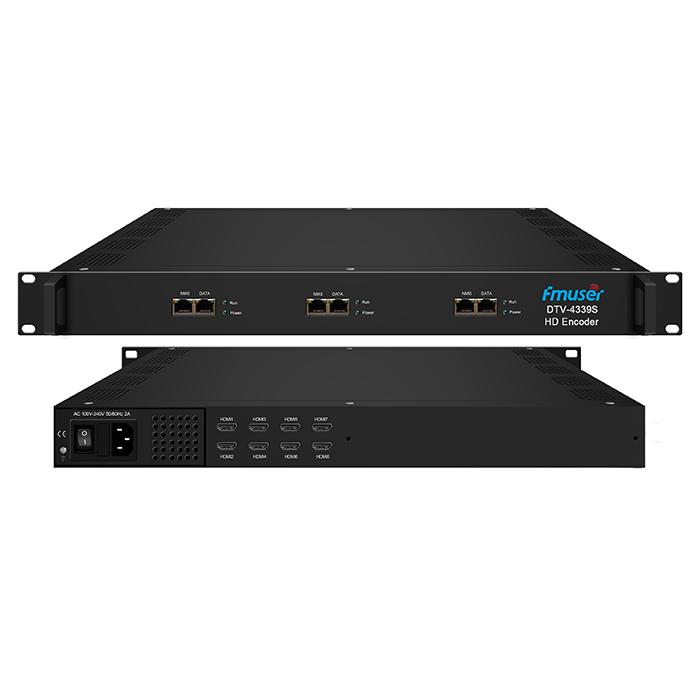 |
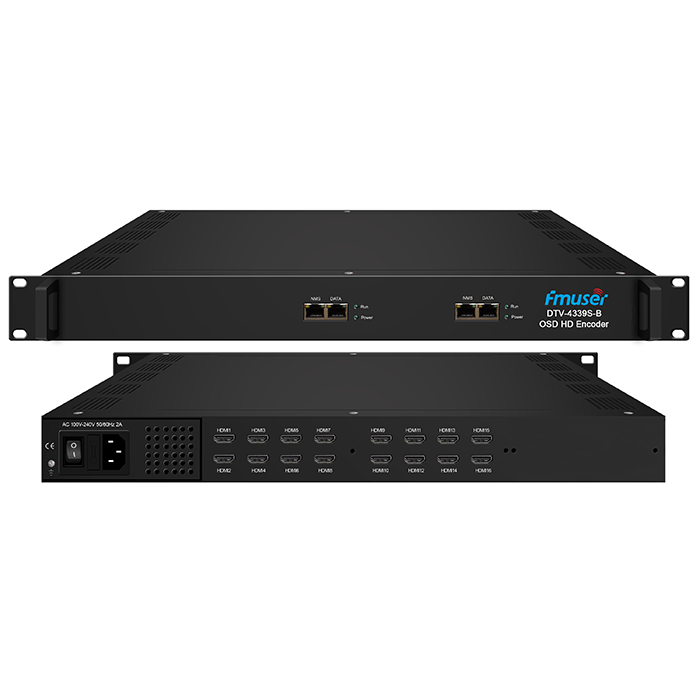 |
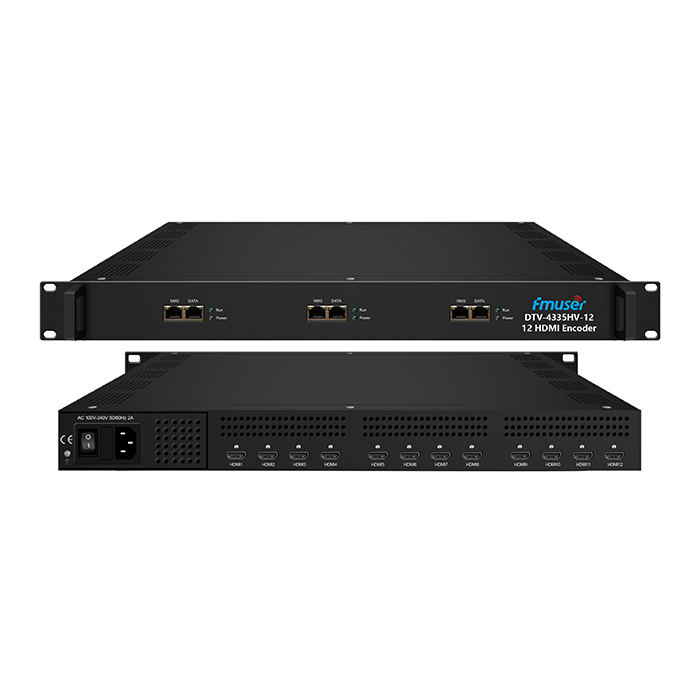 |
| DTV4339S 8/16/24-kanal | DTV4335V 4/8/12 Ch | |
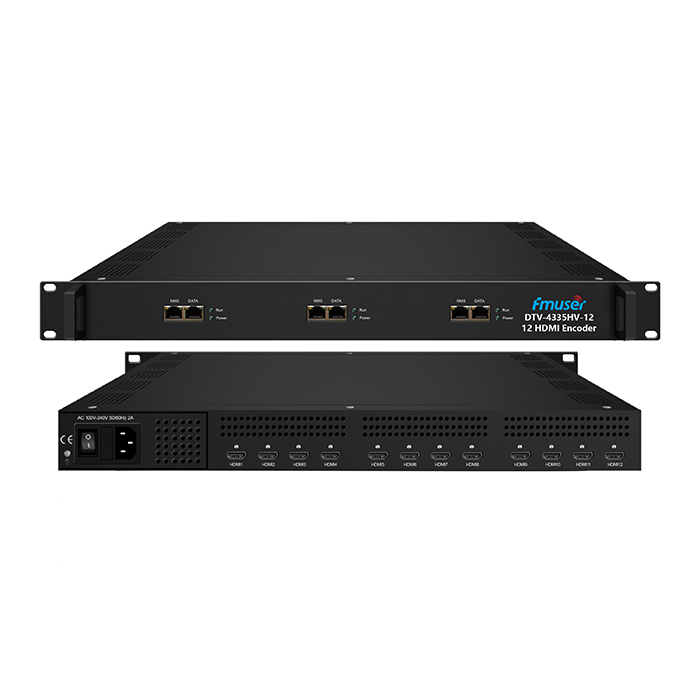 |
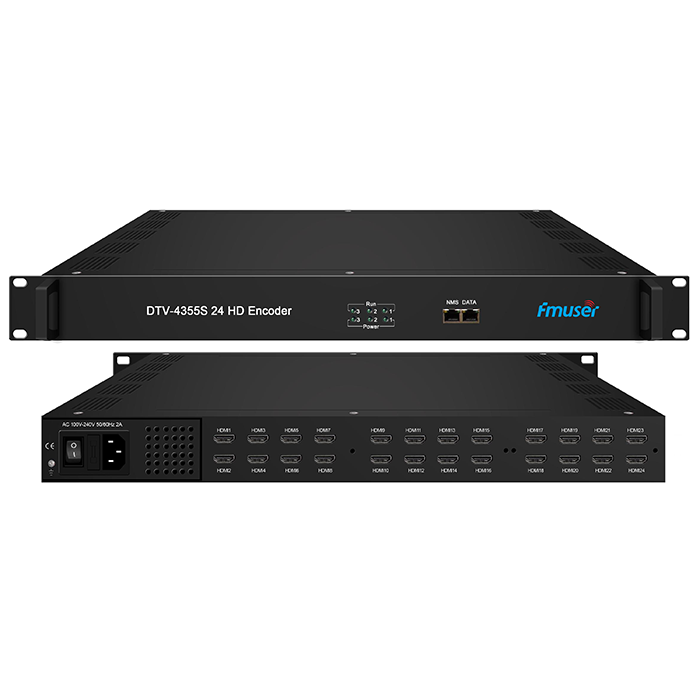 |
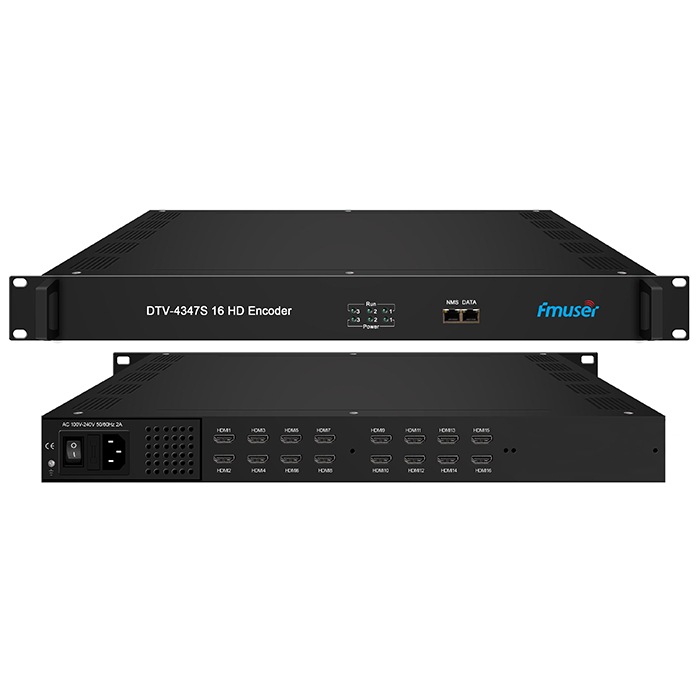 |
| DTV4355S 24-Kanal | DTV4347S 16-Kanal |
4. Set üstü qutular
Set üstü qutular (STB) IPTV xidmətini son istifadəçinin televizoruna birləşdirən cihazlardır. Onlar video və audio axınların şifrəsini açır və onları televizorda göstərirlər. STB-lərin iki əsas növü var: müstəqil və inteqrasiya olunmuş. Müstəqil STB-lər televizora və ev şəbəkəsinə qoşulan ayrı cihazlardır, inteqrasiya olunmuş STB-lər isə televizorun özündə quraşdırılmışdır.
Set üstü qutular oteldə IPTV sisteminin qurulması üçün digər vacib texniki tələbdir. Onlar otelin IPTV şəbəkəsinə qoşulan və video məzmunu son istifadəçilərə çatdıran cihazlardır. Pristavkalar adətən qonaq otağının televizoruna qoşulur və pult və ya mobil cihaz vasitəsilə idarə olunur.
Set-top qutuları IPTV başlığından axınları qəbul etmək, daxil olan axınları deşifrə etmək və sonra onların TV ekranlarında qonaqlara video məzmunu göstərmək üçün məsuliyyət daşıyır. Qonaqların IPTV sistemindən asanlıqla keçə bilməsi üçün pristavkalar intuitiv və istifadəsi asan olmalıdır.
Set üstü qutuların əsas üstünlüklərindən biri odur ki, onlar müxtəlif media formatlarını, o cümlədən canlı televiziya kanallarını, tələb olunan məzmunu və tələb olunan video, elektron proqram bələdçiləri və interaktiv proqramlar kimi digər premium xidmətləri idarə edə bilirlər. Əslində, pristavkalar IPTV şəbəkəsi ilə qonaq otağının televizoru arasında qapı rolunu oynayır və qonaqlara öz otaqlarının rahatlığından geniş məzmun və xidmətlərdən həzz almağa imkan verir.
IPTV sistemində pristavkaların istifadəsi vacibdir, çünki onlar otellərə qonaqlara fərdi təcrübə təqdim etməyə imkan verir. Otellər geniş çeşidli kanallar və fərdi qonaqların xüsusi seçimlərinə uyğun gələn tələb olunan məzmun təklif edə bilər. Onlar həmçinin qonaq təcrübəsini artırmaq üçün baxış başına ödəniş və tələb üzrə video kimi premium xidmətlər təklif etmək üçün pristavkalardan istifadə edə bilərlər.
Əlavə olaraq, pristavkalar IPTV sisteminin performansına qonaqların televizor modelləri və ya otaqlarındakı şəbəkə infrastrukturunun təsir göstərməməsini təmin edir. Qonaq otağının televizor modelindən asılı olmayaraq son istifadəçinin qəbul etdiyi video axınının yüksək keyfiyyətli olmasını təmin edən pristavka vasitəçi kimi çıxış edir.
Xülasə, pristavkalar oteldə IPTV sisteminin qurulması üçün kritik texniki tələbdir. Onlar otelin IPTV şəbəkəsinə qoşulur, video məzmunu son istifadəçilərə çatdırır və sistem vasitəsilə asan naviqasiyanı asanlaşdırır. Onlar qonaqlara fərdiləşdirilmiş təcrübə təqdim etmək və otellərə müxtəlif premium xidmətlər təklif etmək imkanı vermək üçün şlüz rolunu oynayır. Set üstü qutular video axınının qonaqların televizor modellərindən təsirlənməməsini və qonaqlara yüksək keyfiyyətli yayımı təmin edir.
5. Orta proqram
Middleware bir oteldə IPTV sisteminin qurulması üçün vacib texniki tələbdir. Bu, IPTV başlığı ilə pristavkalar arasında oturan və istifadəçi interfeysinin idarə edilməsinə və video məzmunun çatdırılmasına cavabdeh olan proqramdır. Middleware, otel televiziyası kimi məzmunu göstərən cihaz və məzmunu saxlayan və idarə edən serverlər arasında körpü rolunu oynayır. O, video və audio axınların STB-lərə çatdırılmasını, həmçinin IPTV xidmətinin elektron proqram bələdçiləri (EPG), video-on-demand (VOD) və vaxt dəyişikliyi olan TV kimi interaktiv xüsusiyyətlərini idarə edir. Orta proqram mülkiyyətçi və ya açıq mənbə ola bilər.
Middleware qonaqları sadə və istifadəsi asan interfeys ilə təmin edir, onlara mövcud məzmunu nəzərdən keçirməyə və seçməyə imkan verir. Orta proqram, tələb olunan video, TV bələdçisi, EPG xidmətləri və digər funksiyaların düzgün işləməsini təmin edir. Orta proqram olmadan IPTV sistemi vasitəsilə naviqasiya çətin və çətin proses olardı.
Ara proqram, qonaqlara məzmunu asanlıqla nəzərdən keçirməyə və seçməyə imkan verən interaktiv interfeys təqdim edir. Qonaqlar elektron proqram bələdçisindən öz istədikləri kanalları seçə, konkret televiziya şousu və ya filmi axtara və ya IPTV kitabxanasından tələb olunan məzmuna baxa bilərlər. Middleware həm də məzmunun pristavkalara çatdırılmasına cavabdehdir, qonaqların TV ekranlarına yüksək keyfiyyətli video axınını təmin edir.
Sizi bəyənirsiniz: IPTV Orta Proqramının Seçilməsi: Necə Bələdçi və Ən Yaxşı Məsləhətlər
Bundan əlavə, ara proqram otellərə IPTV sisteminin xidmətlərini fərdi qonaqların unikal seçimlərinə uyğunlaşdırmaq imkanı verir. Otellər geniş çeşiddə kanallar və tələb olunan məzmun təklif edə bilər, həmçinin IPTV sisteminin interfeysini öz brend kimliyinə uyğunlaşdıra bilər.
Ara proqram təminatının mühüm üstünlüklərindən biri odur ki, o, otellərə qonaqların baxış vərdişləri, üstünlükləri və rəyləri haqqında məlumat toplamaq imkanı verir. Bu məlumat otellərə IPTV sisteminin məzmununu və xidmətlərini optimallaşdırmağa və onları qonaqlarının gözləntilərinə uyğunlaşdırmağa kömək edə bilər.
Xülasə, ara proqram oteldə IPTV sisteminin qurulması üçün mühüm texniki tələbdir. O, qonaqlara məzmunu asanlıqla nəzərdən keçirməyə və seçməyə imkan verir və o, video məzmunun pristavkalara çatdırılmasına cavabdehdir. Orta proqram, tələb olunan video, TV bələdçisi və EPG xidmətləri kimi xüsusiyyətlərin düzgün işləməsini təmin edir. O, həmçinin otellərə IPTV sistemini fərdiləşdirməyə və qonaqların seçimləri haqqında məlumat toplamağa imkan verir. Ara proqram olmadan IPTV sistemi vasitəsilə naviqasiya çətin olacaq və qonaq təcrübəsinə mənfi təsir göstərəcək.
6. Məzmun Çatdırılma Şəbəkəsi (CDN)
Məzmun çatdırılması şəbəkəsi (CDN) oteldə IPTV sisteminin qurulması üçün vacib texniki tələbdir. Məzmunu son istifadəçilərə tez və səmərəli şəkildə çatdırmaq üçün bütün dünyada strateji olaraq yerləşən serverlər şəbəkəsidir. CDN gecikmə və buferləşdirməni azaltmaqla IPTV sisteminin performansını və etibarlılığını əhəmiyyətli dərəcədə yaxşılaşdırır.
CDN-nin funksiyası məzmunu son istifadəçilərə daha yaxın paylamaq, verilənlərin serverdən qonaq otağının televizoruna qədər getməli olduğu məsafəni azaltmaqdır. Bu, hətta ən yüksək baxış dövrlərində otel qonaqları üçün daha sürətli və daha etibarlı yayım təcrübəsi ilə nəticələnir.
CDN-lər həmçinin otellərə IPTV sisteminin yerləşdikləri yerdən asılı olmayaraq bütün dünya üzrə qonaqlar üçün əlçatan olmasını təmin etməyə imkan verir. CDN-lər video məzmunun ən yaxın serverlərdən qonağın olduğu yerə çatdırılmasını təmin edən, məzmunun səyahət etməli olduğu məsafəni minimuma endirən və gecikməni azaldan keşləmə və yük balanslaşdırma xüsusiyyətlərini təmin edir.
Bundan əlavə, CDN-lər genişlənə bilir və eyni vaxtda məzmun yayımlayan birdən çox qonağı yerləşdirərək yüksək həcmli trafiki idarə edə bilir. CDN-lər hətta ən yüksək baxış dövrlərində belə qonaqların fasiləsiz yayım almasını təmin etmək üçün bant genişliyini tənzimləyə bilər.
Xülasə, CDN-lər oteldə IPTV sisteminin qurulması üçün kritik texniki tələbdir. Onlar gecikmə və buferləşdirməni azaltmaqla sistemin performansını və etibarlılığını artırır və məzmunu son istifadəçilərə daha yaxın paylayır. CDN-lər IPTV sisteminin dünya miqyasında əlçatan olmasını və yüksək həcmli trafiki yerləşdirməyi təmin edir. Otellər, miqyaslana bilən və qaldıqları müddətdə fasiləsiz axın təcrübəsi gözləyən qonaqların yüksək tələblərini yerinə yetirə bilən etibarlı CDN-yə sərmayə qoymalıdır.
7. Təhlükəsizlik
Təhlükəsizlik istənilən IPTV sistemi üçün mühüm texniki tələbdir və otellər IPTV sisteminin təhlükəsiz olmasını və icazəsiz girişdən qorunmasını təmin etməlidir. Bu, sistemin həssas qonaq məlumatlarını idarə etmək və premium məzmuna təhlükəsiz girişi təmin etmək üçün dizayn edilməli olduğu otellərdə xüsusilə vacibdir.
Artan kiberhücumlar və təhlükəsizlik pozuntuları ilə bağlı otellərin IPTV sistemlərinin təhlükəsizliyini təmin etmək üçün lazımi tədbirlər görmələri vacibdir. Bura şəbəkəyə və məzmuna icazəsiz girişin qarşısını almaq üçün güclü giriş nəzarətlərinin, şifrələmənin və təhlükəsizlik divarlarının tətbiqi daxildir.
Giriş nəzarətləri yalnız səlahiyyətli personalın IPTV sisteminə daxil ola bilməsini və dəyişikliklər edə bilməsini təmin edir. Bura parolla qorunan istifadəçi hesabları, iki faktorlu autentifikasiya və rol əsaslı giriş nəzarəti daxildir. Məlumatların şifrələnməsi məlumatın ötürülməsi zamanı onları ələ keçirməyə cəhd edə biləcək icazəsiz istifadəçilər üçün görünməməsini təmin edir.
Firewall xarici mənbələrdən IPTV şəbəkəsinə girişi məhdudlaşdırmaqla əlavə təhlükəsizlik səviyyəsini təmin edir. Bu, yalnız səlahiyyətli istifadəçilərin sistemə daxil olmasını və məzmunun xarici təhlükələrdən qorunmasını təmin edir. Firewalllar həmçinin zərərli trafiki bloklayır və qonaq məlumatlarının məxfiliyini və təhlükəsizliyini qoruyaraq şəbəkəyə icazəsiz girişin qarşısını alır.
Bundan əlavə, otellər IPTV sistemi üçün potensial riskləri müəyyən etmək və həll etmək üçün mütəmadi olaraq təhlükəsizlik qiymətləndirmələri və zəiflik skanları aparmalıdır. Həmçinin otellərə IPTV sisteminə çıxışı olan işçilərə təhlükəsizliyin vacibliyini başa düşmələrini və sistemin qorunması üçün görməli olduqları tədbirlərdən xəbərdar olmalarını təmin etmək üçün təhlükəsizlik üzrə təlimlər keçirmələri tövsiyə olunur.
Xülasə, təhlükəsizlik oteldə IPTV sisteminin qurulması üçün kritik texniki tələbdir. Qonaq məlumatlarını qorumaq, premium məzmuna təhlükəsiz girişi təmin etmək və IPTV şəbəkəsinə icazəsiz girişin qarşısını almaq lazımdır. Otellər güclü giriş nəzarəti, şifrələmə və firewall tətbiq etməli və potensial riskləri müəyyən etmək və həll etmək üçün müntəzəm təhlükəsizlik qiymətləndirmələri və zəiflik skanları aparmalıdır. Təhlükəsizlik ortaq məsuliyyətdir və otellər öz işçilərinə qonaqları üçün təhlükəsiz IPTV sisteminin saxlanmasında öz rollarını başa düşmələrini təmin etmək üçün müvafiq təhlükəsizlik təlimi verməlidir.
8. Uyğunluq
Uyğunluq oteldə IPTV sisteminin qurulması üçün vacib texniki tələbdir. Sistemin düzgün işləməsini təmin etmək üçün server aparatının ən son IPTV texnologiyası tələblərinə uyğun olmasını təmin etmək vacibdir.
Sərt disklər, serverlər və yaddaş kimi aparat komponentləri yüksək sürətlə ötürülən böyük həcmli məlumatları idarə etmək üçün kifayət qədər və yüksək sürətli olmalıdır. Bu, qonaqlar IPTV kanallarına baxarkən buferləşdirməyə zəmanət vermir. Uyğunluq IPTV sisteminin yüksək keyfiyyətli video axınlarını gecikmələr, kəkələmələr və ya qonaqlar üçün optimal baxış təcrübəsinə səbəb ola biləcək digər performans problemləri olmadan idarə edə bilməsini təmin edir.
Avadanlığın uyğunluğunu təmin etməklə yanaşı, otellər IPTV sisteminin qonaq otağının televizor modelləri və smartfon və planşet kimi digər qonaq cihazları ilə uyğun olmasını da təmin etməlidir. Bu, qonaqların seçdikləri istənilən cihazdan IPTV məzmununa daxil olmasını və ondan həzz almasını təmin edir.
Uyğunluq IPTV sistemində istifadə olunan ara proqram və başlıq sistemlərinə də aiddir. IPTV sisteminin qüsursuz inteqrasiyasını və düzgün işləməsini təmin etmək üçün ara proqram başlıq sistemi ilə uyğun olmalıdır.
Nəhayət, otellər IPTV sistem avadanlığını seçərkən gələcək uyğunluğu nəzərə almalıdırlar. Texnologiya davamlı olaraq inkişaf edir və sistemin dəyişən texnologiya tendensiyaları ilə ayaqlaşmağa imkan verən tam sistemin əsaslı təmirini tələb etmədən asanlıqla təkmilləşdirilə və ya dəyişdirilə bilən avadanlığın seçilməsi vacibdir.
Xülasə, uyğunluq oteldə IPTV sisteminin qurulması üçün kritik texniki tələbdir. O, sistemin yüksək sürətlə ötürülən böyük həcmli məlumatları idarə edə bilməsini təmin edərək, qonaqlar üçün hamar və fasiləsiz baxış təcrübəsini təmin edir. Qonaq cihazları, ara proqram və başlıq sistemləri ilə uyğunluq IPTV sisteminin qüsursuz inteqrasiyasını və işləməsini təmin edir. Gələcək uyğunluğu nəzərə alaraq avadanlığın seçilməsi sistemə dəyişən texnologiya meylləri ilə ayaqlaşmağa imkan verəcək. Bütün bunlar IPTV sisteminin qonaqlara mümkün olan ən yaxşı baxış təcrübəsini təqdim etməsini və onların daha çox şey üçün geri qayıtmasını təmin edir.
Yekun olaraq qeyd edək ki, oteldə IPTV sisteminin qurulması möhkəm və etibarlı şəbəkə infrastrukturu, kabel infrastrukturu, IPTV başlığı, pristavkalar, ara proqram təminatı, məzmunun çatdırılması şəbəkəsi və təhlükəsizlik tədbirləri tələb edir. Bu texniki tələblərə cavab verməklə, otellər öz qonaqlarına yüksək keyfiyyətli IPTV təcrübəsi təqdim edə bilər ki, bu da onlara otaqlarının rahatlığından geniş çeşiddə video məzmundan həzz almağa imkan verir.
IPTV inteqrasiyası
Digər otel sistemləri ilə inteqrasiya IPTV sistemini seçərkən nəzərə alınması vacib olan məqamdır. IPTV sisteminin inteqrasiya edə biləcəyi bəzi sistemlər bunlardır:
- Əmlak İdarəetmə Sistemi (PMS)
- Rezervasyon mühərrikləri
- Müştərilərlə Əlaqələrin İdarə Edilməsi (CRM) sistemləri
- Otağa Nəzarət Sistemi
- Ev Təsərrüfatı İdarəetmə Sistemi (HMS)
- Satış Noktası (POS) Sistemi
- İnventar idarəetmə sistemi
- Telefon İdarəetmə Sistemi:
- Enerji İdarəetmə Sistemi (EMS)
- Gəlirlərin İdarə Edilməsi Sistemi
- Rəqəmsal İşarə Sistemi
- Audio-vizual sistem
- Qonaq Wi-Fi Sistemi
- Təhlükəsizlik Sistemi
1. Əmlakın İdarə Edilməsi Sistemi (PMS)
Əmlakın İdarə Edilməsi Sistemi (PMS) mehmanxanalara rezervasiya, qeydiyyat və çıxış kimi gündəlik əməliyyatlarını idarə etməyə kömək edən proqram həllidir. Yaxşı bir PMS sistemi otellərin səmərəliliyini artırmağa, gəlirləri artırmağa və qonaqlarına daha yaxşı xidmət göstərməyə kömək edə bilər.
PMS adətən ön masanın idarə edilməsi, rezervasiyaların idarə edilməsi, ev işlərinin idarə edilməsi, faktura və faktura, analitika və hesabat kimi bir sıra funksiyaları ehtiva edir. PMS-dən istifadə etməklə, otellər otaqların təyin edilməsi, giriş və çıxışlar və inventarların idarə edilməsi kimi bir çox gündəlik işlərini avtomatlaşdıra bilər. Bu, otellərə vaxt və resurslara qənaət etməyə kömək edə bilər, həmçinin onların qonaqlarına daha yaxşı xidmət göstərməsinə kömək edə bilər.
PMS-in oteldə IPTV sistemi ilə inteqrasiya oluna biləcəyi yollardan biri ondan qonaqların seçimlərini və sorğularını idarə etmək üçün istifadə etməkdir. Məsələn, qonaq əlavə dəsmal və ya otaq xidməti tələb etmək üçün otağında IPTV sistemindən istifadə edə bilər. IPTV sistemini PMS ilə inteqrasiya etməklə, otel işçiləri bu sorğuları real vaxt rejimində qəbul edə və onlara daha tez və səmərəli cavab verə bilərlər.
PMS-in bir oteldə IPTV sistemi ilə inteqrasiya oluna biləcəyi başqa bir üsul ondan otaq tapşırıqlarını və mövcudluğu idarə etmək üçün istifadə etməkdir. Məsələn, qonaq IPTV sistemindən istifadə edərək otağın dəyişdirilməsini tələb edərsə, PMS avtomatik olaraq otaq təyinatını və mövcudluq məlumatını yeniləyə bilər. Bu, otel işçilərinə öz inventarlarını daha effektiv idarə etməyə və artıq rezervasiya və ya ikiqat rezervasiya riskini azaltmağa kömək edə bilər.
PMS-nin oteldə IPTV sistemi ilə inteqrasiyasının əsas üstünlüklərindən biri odur ki, o, otellərə əməliyyat səmərəliliyini və qonaq təcrübələrini yaxşılaşdırmağa kömək edə bilər. Gündəlik işlərinin bir çoxunu avtomatlaşdıraraq və işçilərə real vaxt məlumatı təqdim etməklə, otellər qonaqlarına daha yaxşı xidmət göstərə və ümumi təcrübələrini təkmilləşdirə bilər. Bundan əlavə, qonaqların davranışı və üstünlükləri ilə bağlı analitika və hesabat təqdim etməklə, otellər dataya əsaslanan qərarlar qəbul edə və marketinq və tanıtım səylərini təkmilləşdirə bilərlər.
Bütövlükdə, oteldə PMS-nin IPTV sistemi ilə inteqrasiyası otellərə öz əməliyyatlarını tənzimləməyə, qonaq təcrübələrini yaxşılaşdırmağa və gəliri artırmağa kömək edə bilər. Qonaq seçimlərini və sorğularını, otaq təyinatlarını və mövcudluğu idarə etmək üçün PMS-dən istifadə etməklə, otellər öz qonaqlarına daha yaxşı xidmət göstərə bilər və artıq rezervasiya və ya ikiqat rezervasiya riskini azalda bilər. Bundan əlavə, qonaqların davranışı və üstünlükləri ilə bağlı analitika və hesabat təqdim etməklə, otellər dataya əsaslanan qərarlar qəbul edə və marketinq və tanıtım səylərini təkmilləşdirə bilərlər.
2. Mühərriklərin bron edilməsi
Dünyadakı otellər daim qonaqlarının qaldıqları müddətdə təcrübəsini artırmaq üçün yollar axtarırlar. Buna nail olmağın bir yolu otelin IPTV sistemlərinin sifariş mühərrikləri ilə inteqrasiyasıdır. Bu inteqrasiya mehmanxanalara öz qonaqlarına müvafiq məlumat və xidmətlərə asan çıxış təmin etməklə onlara daha fərdiləşdirilmiş və qüsursuz təcrübə təklif etməyə imkan verir.
Otel IPTV sistemləri mahiyyətcə otellərdə istifadə üçün xüsusi olaraq hazırlanmış televiziya sistemləridir. Bu sistemlər qonaqlara filmlər, musiqilər və televiziya şouları da daxil olmaqla bir sıra əyləncə seçimlərinə daxil olmaq imkanı verir. Bundan əlavə, onlar mehmanxana xidmətləri və şəraiti, yerli attraksionlar və hava yenilikləri kimi faydalı məlumatları təmin edə bilərlər.
Rezervasyon mühərrikləri isə qonaqlara oteldə qalmağı sifariş etməyə imkan verən onlayn platformalardır. Bu platformalar adətən otel haqqında otaqların mövcudluğu, qiymətlər və şərait kimi bir sıra məlumatları təqdim edir. Onlar həmçinin qonaqlara ödənişlər etməyə, əlavə xidmətlər seçməyə və qalmalarını öz seçimlərinə uyğun olaraq fərdiləşdirməyə imkan verir.
Otel IPTV sistemlərinin sifariş mühərrikləri ilə inteqrasiyası iki sistem arasında problemsiz əlaqə yaratmağa imkan verən API və ya ara proqram təminatının istifadəsini nəzərdə tutur. Bu inteqrasiya vasitəsilə otellər qonaqlara daha fərdi təcrübə təqdim edə bilər. Məsələn, qonaqlar yerli restoranlar haqqında məlumat əldə etmək üçün IPTV sistemindən istifadə edə və ya birbaşa sifariş mühərriki vasitəsilə rezervasiya edə bilərlər.
Bu inteqrasiyanın üstünlüklərindən biri otellərin qonaqlara əlavə xidmətləri artırmaq imkanıdır. Məsələn, qonaqlar IPTV sistemindən spa xidmətləri almaq və ya otelin restoranında şam yeməyi sifariş etmək üçün istifadə edə bilərlər. Bu, təkcə otelin gəlirini artırmır, həm də qonaqlara qaldıqları müddətdə daha rahat və əngəlsiz təcrübə təqdim edir.
Digər bir üstünlük qonaqlara onların üstünlükləri əsasında hədəflənmiş reklam təklif etmək imkanıdır. IPTV sistemi qonağın televizora baxma vərdişləri haqqında məlumat toplaya və bu məlumatdan müvafiq xidmət və ya məhsulları təklif etmək üçün istifadə edə bilər. Məsələn, qonaq tez-tez idman kanallarına baxırsa, IPTV sistemi yerli idman tədbirinə bilet təklif edə bilər.
Otelin IPTV sistemini sifariş mühərrikləri ilə uğurla inteqrasiya etmək üçün otellər hər ikisinə uyğun olan sistem seçməlidirlər. Onlar həmçinin sistemin istifadəçi dostu olmasını və qonaqlar üçün naviqasiyanın asan olmasını təmin etməlidirlər. Sistem işə düşdükdən sonra, otellər öz qonaqları üçün daha fərdi və qüsursuz təcrübə təklif etmək üçün bu inteqrasiyadan istifadə edə bilər və nəticədə daha yüksək qonaq məmnuniyyətinə və artan gəlirə gətirib çıxara bilər.
3. Müştərilərlə Əlaqələrin İdarə Edilməsi (CRM) sistemləri
Otel IPTV sistemləri müştəri münasibətlərinin idarə edilməsi (CRM) sistemləri ilə inteqrasiya oluna bilər ki, bu da otellərə daha fərdi və qüsursuz qonaq təcrübəsi təqdim etməyə imkan verir. Bu inteqrasiya vasitəsilə mehmanxanalar öz qonaqları haqqında dəyərli məlumatlara daxil ola bilər, onlardan fərdi təkliflər və tövsiyələr yaratmaq üçün istifadə edilə bilər.
IPTV sistemini CRM sistemi ilə uğurla inteqrasiya etmək üçün otellər iki sistem arasında məlumat mübadiləsini təmin edən API və ya ara proqramdan istifadə edə bilərlər. IPTV sistemi qonaqların baxış vərdişləri kimi məlumatları, CRM sistemi isə qonaqların seçimləri və rezervasiya tarixçəsi kimi məlumatları toplaya bilir. Bu məlumatları birləşdirməklə, otellər qonaqların davranışları və üstünlükləri haqqında məlumat əldə edə bilər və onlara öz xidmətlərini qonaqlarının ehtiyaclarını daha yaxşı ödəmək üçün uyğunlaşdırmağa imkan verir.
IPTV sisteminin CRM sistemi ilə inteqrasiyasının üstünlükləri çoxdur. Birincisi, otellər bu məlumatlardan məqsədyönlü marketinq kampaniyaları və promosyonlar yaratmaq üçün istifadə edə bilər, qonaqların maraqlarına və seçimlərinə uyğun təkliflər almasını təmin edə bilər. İkincisi, qonaqları fərdiləşdirilmiş məzmun və məlumatlarla təmin etməklə, otellər öz qonaqlarının ümumi təcrübəsini artıra bilər və bu, daha yüksək qonaq məmnuniyyəti və sadiqliyinə səbəb ola bilər.
Bundan əlavə, otellər bu inteqrasiyadan öz qonaqlarının xərcləmə nümunələrini daha yaxşı başa düşmək və fərdiləşdirilmiş satış imkanları təklif etmək üçün istifadə edə bilər. Məsələn, əgər qonaq tez-tez otaq xidmətinə sifariş verirsə, IPTV sistemi qonağın həzz alacağı pulsuz yeməklər təklif edə bilər. Bu, təkcə qonaq xərclərini artırmır, həm də qonaq təcrübəsinə dəyər qatır ki, bu da həm otel, həm də qonaq üçün faydalıdır.
Bundan əlavə, IPTV sisteminin CRM sistemi ilə inteqrasiyası qonaqlar və otel işçiləri arasında ünsiyyəti yaxşılaşdıra bilər. Məsələn, əgər qonağın konkret tələbi və ya narahatlığı varsa, onlar IPTV sistemindən istifadə edərək birbaşa otel işçilərinə mesaj göndərə bilərlər. Bu, nəinki qonaq təcrübəsini artırır, həm də telefon zənglərinin və giriş sorğularının sayını azaltmaqla otel əməliyyatlarını asanlaşdırır.
Yekun olaraq qeyd edək ki, otel IPTV sisteminin CRM sistemi ilə inteqrasiyası otellərə qonaqların davranışı və üstünlükləri haqqında dəyərli məlumat verməklə onlara böyük fayda verə bilər. Bu məlumatlardan istifadə etməklə, otellər daha fərdiləşdirilmiş və qüsursuz qonaq təcrübəsi təklif edə bilər ki, bu da qonaq məmnuniyyətinin və sədaqətinin artmasına səbəb ola bilər. Bundan əlavə, otellər bu inteqrasiyadan hədəflənmiş marketinq kampaniyaları yaratmaq, qonaqlarla ünsiyyəti yaxşılaşdırmaq və fərdiləşdirilmiş satış imkanları vasitəsilə gəliri artırmaq üçün istifadə edə bilər.
4. Otağa Nəzarət Sistemi
Otaq İdarəetmə Sistemi qonaqlara işıqlandırma, temperatur və əyləncə sistemləri kimi otel otağının müxtəlif aspektlərinə nəzarət etməyə imkan verən proqram həllidir. Bu sistem qonaqlar üçün daha rahat və komfortlu təcrübə təmin etməklə yanaşı, həm də otellərin səmərəliliyini artırmağa və enerji xərclərini azaltmağa kömək edə bilər.
Otağa Nəzarət Sistemi adətən temperatur və işıqlandırmaya nəzarət, enerjinin idarə edilməsi və əyləncəyə nəzarət kimi bir sıra funksiyaları ehtiva edir. Otaq Nəzarət Sistemindən istifadə etməklə, otellər qonaq otağından çıxanda işıqları söndürmək və temperatur parametrlərini tənzimləmək kimi qonaq otağı əməliyyatları ilə bağlı bir çox işi avtomatlaşdıra bilər. Bu, otellərə enerjiyə qənaət etməyə və əməliyyat xərclərini azaltmağa kömək edə bilər.
Otaq İdarəetmə Sisteminin oteldə IPTV sistemi ilə inteqrasiya oluna bilməsinin yollarından biri ondan qonaqların seçimlərini və sorğularını idarə etmək üçün istifadə etməkdir. Məsələn, qonaq otağında IPTV sistemindən istifadə edərək temperatur və ya işıqlandırma parametrlərində dəyişiklik tələb edə bilər. IPTV sistemini Otaqlara Nəzarət Sistemi ilə inteqrasiya etməklə otel işçiləri bu müraciətləri real vaxt rejimində qəbul edə və onlara daha tez və operativ cavab verə bilərlər.
Otaq Nəzarət Sisteminin oteldə IPTV sistemi ilə inteqrasiya oluna biləcəyi başqa bir üsul ondan əyləncə seçimlərini idarə etmək üçün istifadə etməkdir. Məsələn, qonaq müəyyən bir filmə və ya televiziya şousuna giriş tələb etmək üçün otağında IPTV sistemindən istifadə edə bilər. IPTV sistemini Otaqlara Nəzarət Sistemi ilə inteqrasiya etməklə, otel işçiləri qonaqlara üstünlük verdikləri əyləncə seçimlərinə maneəsiz çıxışı təmin edə bilərlər.
Otaq İdarəetmə Sisteminin bir oteldə IPTV sistemi ilə inteqrasiyasının əsas üstünlüklərindən biri odur ki, o, otellərə qonaqların təcrübələrini yaxşılaşdırmağa və əməliyyat xərclərini azaltmağa kömək edə bilər. Qonaq otağı əməliyyatları ilə bağlı bir çox tapşırıqları avtomatlaşdırmaqla, otellər öz qonaqlarına daha yaxşı xidmət göstərə və səhvlər və ya səhvlər riskini azalda bilər. Bundan əlavə, işçilərə real vaxt rejimində məlumat verməklə, otellər qonaqların istək və seçimlərinə daha tez və səmərəli cavab verə bilər.
Ümumiyyətlə, oteldə IPTV sistemi ilə Otaq İdarəetmə Sisteminin inteqrasiyası otellərə qonaqların təcrübələrini yaxşılaşdırmağa, səmərəliliyi artırmağa və əməliyyat xərclərini azaltmağa kömək edə bilər. Temperatur və işıqlandırmaya nəzarət, enerji idarəetməsi və əyləncə seçimlərini idarə etmək üçün Otaq Nəzarət Sistemindən istifadə etməklə, otellər qonaq otağı əməliyyatları ilə bağlı bir çox tapşırıqları avtomatlaşdıra bilər. Bundan əlavə, Otaqlara Nəzarət Sistemini IPTV sistemi ilə inteqrasiya edərək, otellər qonaqlara üstünlük verdikləri əyləncə seçimlərinə maneəsiz çıxış təmin edə və qonaqların istək və seçimlərinə daha tez və səmərəli cavab verə bilər.
5. Ev Təsərrüfatı İdarəetmə Sistemi (HMS)
Housekeeping Management System (HMS) real vaxt rejimində otel qonaqları ilə ev işçiləri arasında ünsiyyəti yaxşılaşdırmaq üçün IPTV texnologiyası ilə inteqrasiya oluna bilən sistemdir. Bu inteqrasiya ilə qonaqlar camaşırxana xidmətləri, otaqların təmizlənməsi və s. kimi müxtəlif təsərrüfat xidmətləri tələb etmək üçün televizorlarından istifadə edə bilərlər.
HMS-IPTV sisteminin inteqrasiyası otellər üçün vacibdir, çünki o, qonağın təcrübəsini asanlaşdırır və ev işçiləri ilə qonaqlar arasında ünsiyyətin səmərəliliyini artırır. HMS sistemi prosesləri avtomatlaşdırmaq, tapşırıqların təyin edilməsini təkmilləşdirmək və onlar arasında daha yaxşı ünsiyyəti asanlaşdırmaqla, mehmanxana xidmətinin işçilərinin gündəlik fəaliyyətini və tapşırıqlarını idarə etmək üçün səmərəli üsul təqdim edir.
Otel üçün üstünlüklər:
- Təkmilləşdirilmiş effektivlik: HMS-IPTV inteqrasiya sistemi ilə otel əməliyyatları daha rasional və səmərəli olur. Təsərrüfat işçiləri sorğular barədə dərhal məlumat alır; buna görə də qonaqların ehtiyaclarına dərhal cavab vermək üçün tez hərəkət edə bilərlər.
- Artırılmış qonaq məmnuniyyəti: Qonaqlar qəbula zəng etmək və ya ön büroya getmək əvəzinə televiziya vasitəsilə sorğu və ya şikayət edə bildikdə daha yüksək səviyyədə rahatlıq və rahatlıq əldə edirlər.
- Daha yaxşı ünsiyyət: Təsərrüfat işçiləri ilə qonaqlar arasında real vaxt rejimində əlaqə problemsiz şəkildə həyata keçirilir ki, bu da xidmətin vaxtında çatdırılmasını və istənilən problemin operativ həllini təmin edir.
- Azaldılmış əməliyyat xərcləri: HMS-IPTV sistemləri sənədləşmə və ya əllə izləmə ehtiyacını aradan qaldırır və bununla da vaxta, səyə və pula qənaət edir.
HMS-i IPTV ilə inteqrasiya etmək üçün proqram mühəndisləri hər iki sistem arasında qüsursuz və təhlükəsiz əlaqə yaratmağa imkan verən xüsusi hazırlanmış proqramlar hazırlamalıdırlar. Birincisi, komanda iki sistemin uyğun olmasını və bütün zəruri proqram tələblərinə cavab verməsini təmin etməlidir. Sonra sistemlər arasında əlaqə yaratmağa imkan verən tətbiq proqramlaşdırma interfeysi (API) yaradacaqlar. Tətbiq edildikdən sonra sistem qonaqlara öz IPTV vasitəsilə xidmət sorğularını seçib təqdim etməyə imkan verəcək ki, bu da ev işçiləri tərəfindən istifadə edilən HMS sistemini avtomatik yeniləyir.
Nəticə olaraq qeyd edək ki, HMS-in otellərdə IPTV ilə inteqrasiyası həm qonaqlara, həm də otel rəhbərliyinə fayda verir. O, qonaqlara göstərilən xidmət səviyyəsini yüksəldir, ev təsərrüfatı işçilərinin səmərəliliyini artırır və otellərə əməliyyat xərclərini azaltmağa kömək edir. HMS-IPTV sistemi ilə qonaqlar bu texnologiyadan istifadə edən istənilən oteldə daha rahat, komfortlu və fərdi istirahətdən həzz ala bilərlər.
6. Satış nöqtəsi (POS) sistemi
Satış Nöqtəsi (POS) Sistemi otellərə inventarların idarə edilməsi, sifarişlərin işlənməsi və ödənişlərin işlənməsi daxil olmaqla, əməliyyatlarının müxtəlif aspektlərini idarə etməyə və avtomatlaşdırmağa kömək etmək üçün nəzərdə tutulmuş proqram həllidir. Bu, otellər üçün vacib bir vasitədir, çünki o, səmərəliliyi artırmağa, səhvləri azaltmağa və qonaqlarına daha yaxşı xidmət göstərməyə kömək edə bilər.
POS Sistemi adətən inventarın idarə edilməsi, sifarişin işlənməsi və ödənişin işlənməsi kimi bir sıra funksiyaları ehtiva edir. POS Sistemindən istifadə etməklə, mehmanxanalar inventar səviyyələrini izləmək və ödənişləri emal etmək kimi bu əməliyyatlarla əlaqəli bir çox vəzifələri avtomatlaşdıra bilər. Bu, otellərə vaxta qənaət etməyə və səhvlər və ya səhvlər riskini azaltmağa kömək edə bilər.
POS Sisteminin oteldə IPTV sistemi ilə inteqrasiyasının yollarından biri ondan qonaqların sifarişlərini və seçimlərini idarə etmək üçün istifadə etməkdir. Məsələn, qonaq otaq xidməti sifariş etmək və ya əlavə şərait tələb etmək üçün otağında IPTV sistemindən istifadə edə bilər. IPTV sistemini POS Sistemi ilə inteqrasiya etməklə otel işçiləri bu sifarişləri real vaxt rejimində qəbul edə və onlara daha tez və operativ cavab verə bilərlər.
POS Sisteminin bir oteldə IPTV sistemi ilə inteqrasiyasının başqa bir yolu qonaq ödənişlərini idarə etmək üçün istifadə etməkdir. Məsələn, qonaq film sifariş etmək və ya premium məzmuna daxil olmaq üçün otağında IPTV sistemindən istifadə edə bilər. IPTV sistemini POS Sistemi ilə inteqrasiya etməklə, otel işçiləri bu ödənişləri real vaxt rejimində emal edə və qonaqlara üstünlük verdikləri əyləncə seçimlərinə maneəsiz çıxış təmin edə bilərlər.
Oteldə POS Sisteminin IPTV sistemi ilə inteqrasiyasının əsas üstünlüklərindən biri odur ki, o, otellərə səmərəliliyi artırmağa və səhvləri azaltmağa kömək edə bilər. İnventarların idarə edilməsi, sifarişlərin işlənməsi və ödənişlərin işlənməsi ilə bağlı bir çox tapşırıqları avtomatlaşdırmaqla, otellər vaxta qənaət edə və səhvlər və ya nəzarətsizlik riskini azalda bilər. Bundan əlavə, işçilərə real vaxt rejimində məlumat verməklə, otellər qonaqların sifarişlərinə və seçimlərinə daha tez və effektiv cavab verə bilər.
Ümumiyyətlə, oteldə IPTV sistemi ilə POS Sisteminin inteqrasiyası otellərə səmərəliliyi artırmağa, səhvləri azaltmağa və qonaqlarına daha yaxşı xidmət göstərməyə kömək edə bilər. İnventarın idarə edilməsi, sifarişlərin işlənməsi və ödənişlərin işlənməsi üçün POS Sistemindən istifadə etməklə, otellər bu əməliyyatlarla bağlı bir çox tapşırıqları avtomatlaşdıra bilər. Bundan əlavə, POS Sistemini IPTV sistemi ilə inteqrasiya etməklə, otellər qonaqlara üstünlük verdikləri əyləncə seçimlərinə maneəsiz çıxış təmin edə və qonaqların sifariş və seçimlərinə daha tez və səmərəli cavab verə bilər.
7. İnventar idarəetmə sistemi
İnventar idarəetmə sistemi qonaqpərvərlik sənayesinin vacib aspektidir. Bu, inventar səviyyələrini izləməyə və təchizat zəncirini effektiv şəkildə izləməyə kömək edir. IPTV sistemi inventar idarəetmə sistemi ilə inteqrasiya olunduqda inventar izlənilməsini daha səmərəli edir. Bu sistem otellərə tualet ləvazimatları, çarşaflar, mətbəx ləvazimatları və digər zəruri əşyalar kimi təchizat və ləvazimatlarını idarə etməkdə kömək edə bilər.
İnventar idarəetmə sistemi otel işçilərinə anbarda mövcud olan əşyaların, istifadə olunan miqdarın və onlardan istifadə dərəcəsinin virtual qeydini aparmağa imkan verir. İstifadə və istehlak tendensiyalarını izləməklə, otel işçiləri məlumatlı satınalma qərarları verə bilər və bununla da ehtiyatların çox olması və ya az olmasının qarşısını alır. Otel işçiləri həmçinin inventar səviyyələri barədə xəbərdarlıqlar ala bilər və onlara ehtiyatı nə vaxt yenidən sifariş etməli olduqlarını xatırlada bilərlər.
İnventar idarəetmə sisteminin IPTV sistemi ilə inteqrasiyası otel qonaqlarına təkmilləşdirilmiş təcrübə təklif edir. Məsələn, qonaqlar IPTV sistemi vasitəsilə otaq xidməti menyularına daxil ola və birbaşa sifariş verə bilərlər. Həmçinin, o, istehlak edilənə nisbətən sifariş edilənin daha asan izlənilməsini təmin edir və lazım olan təchizat üçün yeni sifarişləri hesablamağı asanlaşdırır.
Bundan əlavə, bu inteqrasiya asan sifariş prosesini təmin edə bilər, burada IPTV sistemi müştərilərə heç bir məhdudiyyət olmadan alış üçün mövcud olan imkanların siyahısına baxmaq və sifariş vermək imkanı verən sadə interfeys ilə qonaqlara təklif edir. IPTV sistemi daha sonra sifarişi xidmət və ya məhsulu emal edən və çatdıran işçilərə ötürür.
İnventar idarəetmə sisteminin IPTV ilə inteqrasiyasının əhəmiyyətli faydalarından biri məhsulların istifadə müddətini təşkil etmək və izləməkdə işçilərə kömək etməsidir. Bu, vaxtı keçmiş məhsullardan qurtulmağı və onları dərhal dəyişdirməyi asanlaşdırır, israfdan və vaxtı keçmiş məhsulların istifadəsi nəticəsində yarana biləcək sağlamlıq risklərindən qaçınır.
Yekun olaraq, IPTV sisteminin inventar idarəetmə sistemi ilə inteqrasiyası çox vacibdir, çünki o, inventar səviyyələrini izləyərkən insan səhvinin mənfi təsirini azaldır. Bu sistem həm də sifariş prosesini sadələşdirərək qonaqlara xidmət göstərilməsinin rahatlığı və asanlığı təklif edir. Bu, otellərin təkcə qonaqların məmnuniyyətini deyil, həm də səmərəli biznes əməliyyatlarını həyata keçirməsi üçün istifadə etməsi üçün səmərəli və zəruri texnologiyadır.
8. Telefon İdarəetmə Sistemi:
IPTV sistemi otel qonaqlarına televizor və ya pult vasitəsilə telefon zəngləri etmək imkanı vermək üçün telefon idarəetmə sistemi ilə birləşdirilə bilər. Bu innovativ sistem otaqda əlavə telefon cihazına ehtiyacı aradan qaldırır və qonaqlar üçün daha rahat təcrübə təmin edir.
Telefon İdarəetmə Sistemi otel daxilində bütün telefon əməliyyatlarını idarə edən proqram təminatıdır. O, qonaqlara telefon zəngləri etmək və qəbul etmək imkanı verir, otel işçilərinə bütün məkanda telefon xətlərini idarə etməyə imkan verir və birdən çox cihazın vahid sistemə inteqrasiyasını asanlaşdırır.
Bu günün sürətli dünyasında qonaqlar səyahətlərinin hər bir aspektində mobil texnologiyanı gözləyirlər. Qüsursuz rahatlıqla birləşən sürətli cavablandırma ehtiyacı telefon rabitəsinin otel otağı texnologiyasına inteqrasiyasını vacib etdi. Bu xüsusiyyətin təklif edilməsi yalnız qonaq təcrübəsini artırmaqla yanaşı, otelinizi rəqiblərdən fərqləndirəcək.
Otelinizdə Telefon İdarəetmə Sistemini tətbiq etməyin bir sıra üstünlükləri var:
- Artan qonaq məmnuniyyəti: Qonaqlara televizordan telefon kimi istifadə etmək imkanı verməklə, bu, müasirlik və sadəlik hissi yaradır - onlara müvəqqəti evdə özlərini rahat hiss etməyə imkan verir.
- Xərclərə qənaət: Hər otaqda əlavə telefona ehtiyacı aradan qaldırmaqla, otel ənənəvi telefonlarla bağlı texniki xidmət haqlarını azaldaraq ilkin alış xərclərinə qənaət edə bilər.
- Asan inteqrasiya: Sistemin mövcud IPTV şəbəkəsinə daxil edilməsi otel işçiləri üçün rahat quraşdırma prosedurunu və iş sahəsinə hamar keçidi təmin edir.
- Mərkəzləşdirilmiş idarəetmə: Telefon İdarəetmə Sistemi real vaxt rejimində monitorinq, zəng hesabatı, hesablaşma və audit funksiyalarını təklif edir - idarəetmə tapşırıqlarını, eləcə də işçilərin iş yüklərini sadələşdirir.
IPTV texnologiyasını Telefon İdarəetmə Sistemi ilə inteqrasiya etməklə qonaqlar televizorun pultundan istifadə etməklə birbaşa telefon xidmətlərindən istifadə edə bilərlər. Sistem serverdən (həmçinin IPTV serverlərinə qoşulmuşdur) və İP telefoniya aparatından ibarətdir. Server daxil olan və gedən zəngləri, zəng hesablama məlumatlarını, səsli poçt sistemini idarə edir və oyanış zənglərini avtomatlaşdırır.
Nəticə olaraq, IPTV-nin telefon idarəetmə sistemi ilə inteqrasiyası ilə otel qonaqları əyləncə və ünsiyyət üçün bir cihaza sahib olmaqdan həzz ala bilərlər. Sistem, otelin xərclərini azaltmaqla və müştəri məmnuniyyətini yüksəltməklə yanaşı, onlara problemsiz təcrübə təqdim edir.
9. Enerji İdarəetmə Sistemi (EMS)
Enerji İdarəetmə Sistemi (EMS) otellər üçün enerji istehlakını idarə etmək və karbon izlərini azaltmaq üçün mühüm vasitədir. Bu sistemlər otel binalarında enerji istifadəsinə nəzarət etmək və nəzarət etmək üçün IoT cihazlarından və sensorlardan istifadə edir. Enerji istifadəsi və xərclər üzərində daha çox nəzarət təklif etmək üçün IPTV sistemləri EMS ilə inteqrasiya oluna bilər.
EMS-dən istifadə etməklə, otellər hər otağın temperaturunu avtomatik izləyə və idarə edə bilər. Bu o deməkdir ki, qonaqlar otaqlarından çıxanda enerjiyə qənaət etmək üçün temperaturu tənzimləmək olar. Eyni şey işıqlandırmaya da aiddir - qonaq otaqdan çıxanda və ya otaqda kifayət qədər təbii işıq olduqda işıqlar avtomatik olaraq söndürülə bilər. Bu, təkcə pula qənaət etmir, həm də istixana qazlarının emissiyasını azaltmağa kömək edir.
Bundan əlavə, EMS enerji səmərəliliyinin yaxşılaşdırıla biləcəyi sahələri müəyyən etməklə otellərə enerji istifadəsini optimallaşdırmağa kömək edə bilər. Məsələn, avadanlıq lazımsız yerə açıq qaldıqda və ya daha çox enerjiyə qənaət edən alternativlərlə əvəz edilməli olan enerji istehlak edən qurğular olduqda otel işçilərini xəbərdar edə bilər.
IPTV sisteminin EMS ilə inteqrasiyasının digər üstünlüyü ondan ibarətdir ki, bu, qonaqlara öz enerji istifadələrinə nəzarət etmək imkanı verir. Televiziya ekranında enerji istifadəsi məlumatlarını göstərməklə qonaqlar qaldıqları müddətdə nə qədər enerji sərf etdikləri barədə ümumi məlumat əldə edə bilərlər. Bu, təkcə ekoloji cəhətdən davamlı davranışı təşviq etmir, həm də qonaqlar üçün daha cəlbedici və interaktiv təcrübə yaradır.
Xülasə, IPTV sisteminin EMS ilə inteqrasiyası otellərə bir sıra üstünlüklər, o cümlədən enerji istehlakı, aşağı xərclər və daha yaxşı qonaq təcrübəsi təmin edə bilər. Davamlılığa artan diqqətlə belə bir sistem otelləri rəqabət üstünlüyü ilə təmin edə və gəlirliliyi yaxşılaşdırarkən ekoloji məqsədlərə çatmağa kömək edə bilər.
10. Gəlirlərin İdarə Edilməsi Sistemi
Gəlirlərin İdarə Edilməsi Sistemi real vaxt rejimində qiymətləri və inventarlarını idarə edərək, otellərə gəlirlərini optimallaşdırmağa kömək etmək üçün nəzərdə tutulmuş proqram həllidir. Bu, otellər üçün vacib vasitədir, çünki o, onların gəlirlərini maksimuma çatdırmağa, doluluq nisbətlərini yaxşılaşdırmağa və gəlirliliyi artırmağa kömək edə bilər.
Gəlirlərin İdarə Edilməsi Sistemi adətən tələbin proqnozlaşdırılması, qiymətlərin optimallaşdırılması və inventarların idarə edilməsi kimi bir sıra funksiyaları ehtiva edir. Gəlir İdarəetmə Sistemindən istifadə etməklə, otellər qiymət və inventar idarəçiliyi ilə bağlı əsaslandırılmış qərarlar qəbul etmək üçün tarixi rezervasiyalar, bazar tendensiyaları və rəqiblərin qiymətləri kimi müxtəlif mənbələrdən məlumatları təhlil edə bilər.
Gəlir İdarəetmə Sistemini oteldə IPTV sistemi ilə inteqrasiya etməyin yollarından biri ondan qonaqlara fərdi qiymətlər və promosyonlar təklif etmək üçün istifadə etməkdir. Məsələn, qonaq öz otağında IPTV sistemindən spa müalicəsi və ya qolf oyunu sifariş etmək üçün istifadə edə bilər. IPTV sistemini Gəlirlərin İdarə Edilməsi Sistemi ilə inteqrasiya etməklə, otellər qonağın sifariş tarixçəsi, üstünlükləri və digər məlumatlara əsasən fərdiləşdirilmiş qiymətlər və promosyonlar təklif edə bilər.
Gəlir İdarəetmə Sisteminin oteldə IPTV sistemi ilə inteqrasiya oluna biləcəyi başqa bir üsul ondan real vaxt rejimində otaq inventarını və qiymətləri idarə etmək üçün istifadə etməkdir. Məsələn, mehmanxanada qəfil tələb artımı baş verirsə, Gəlir İdarəetmə Sistemi gəlir və doluluq nisbətlərini maksimuma çatdırmaq üçün otaq qiymətlərini və inventar səviyyələrini avtomatik tənzimləyə bilər. IPTV sistemini Gəlirlərin İdarə Edilməsi Sistemi ilə inteqrasiya etməklə, otellər qonaqları real vaxt rejimində qiymətlər və mövcudluq məlumatları ilə təmin edə və tələb dəyişikliklərinə daha tez və effektiv reaksiya verə bilər.
Gəlirlərin İdarə Edilməsi Sisteminin oteldə IPTV sistemi ilə inteqrasiyasının əsas üstünlüklərindən biri odur ki, o, otellərə gəlirlərini və gəlirliliyini maksimum dərəcədə artırmağa kömək edə bilər. Məlumatları təhlil etmək və qiymət və inventar idarəçiliyi ilə bağlı əsaslandırılmış qərarlar qəbul etmək üçün Gəlir İdarəetmə Sistemindən istifadə etməklə, otellər öz gəlirlərini və doluluq dərəcələrini optimallaşdıra bilərlər. Bundan əlavə, Gəlirlərin İdarə Edilməsi Sistemini IPTV sistemi ilə inteqrasiya edərək, otellər qonaqlara fərdiləşdirilmiş qiymətlər və promosyonlar təklif edə və tələb dəyişikliklərinə daha tez və effektiv reaksiya verə bilər.
Bütövlükdə, Gəlir İdarəetmə Sisteminin bir oteldə IPTV sistemi ilə inteqrasiyası otellərə gəlirlərini artırmağa, doluluq nisbətlərini yaxşılaşdırmağa və gəlirliliyi artırmağa kömək edə bilər. Qiymətləri və inventarları real vaxt rejimində idarə etmək üçün Gəlir İdarəetmə Sistemindən istifadə etməklə, otellər qiymət və inventar idarəetməsi ilə bağlı əsaslandırılmış qərarlar qəbul edə bilərlər. Bundan əlavə, Gəlirlərin İdarə Edilməsi Sistemini IPTV sistemi ilə inteqrasiya edərək, otellər qonaqlara fərdiləşdirilmiş qiymətlər və promosyonlar təklif edə və tələb dəyişikliklərinə daha tez və effektiv reaksiya verə bilər.
11. Rəqəmsal İşarə Sistemi
Rəqəmsal İşarə Sistemi rəqəmsal ekranlarda şəkillər, videolar və mətn kimi multimedia məzmununu göstərmək üçün nəzərdə tutulmuş proqram həllidir. Bu, otellər üçün vacib bir vasitədir, çünki bu, onların qonaqlarla ünsiyyətini yaxşılaşdırmağa, brendlərini tanıtmağa və gəliri artırmağa kömək edə bilər.
Rəqəmsal İşarə Sistemi adətən məzmunun idarə edilməsi, planlaşdırma və analitika kimi bir sıra funksiyaları ehtiva edir. Rəqəmsal İşarə Sistemindən istifadə etməklə, otellər lobbilər, restoranlar və qonaq otaqları kimi bütün əmlaklarında rəqəmsal ekranlarda cəlbedici məzmun yarada və göstərə bilər.
Rəqəmsal İşarə Sisteminin oteldə IPTV sistemi ilə inteqrasiyasının yollarından biri ondan qonaqlara fərdiləşdirilmiş məzmun göstərmək üçün istifadə etməkdir. Məsələn, qonaq otaq xidməti sifariş etmək və ya spa müalicəsi sifariş etmək üçün otağında IPTV sistemindən istifadə edə bilər. Rəqəmsal İşarə Sistemini IPTV sistemi ilə inteqrasiya etməklə, otellər qonağın sifariş tarixçəsi, üstünlükləri və digər məlumatlara əsaslanaraq promosyonlar və ya reklamlar kimi fərdiləşdirilmiş məzmunu nümayiş etdirə bilər.
Rəqəmsal İşarə Sisteminin oteldə IPTV sistemi ilə inteqrasiya oluna bilməsinin başqa bir yolu qonaqlara real vaxt məlumatlarını göstərmək üçün istifadə etməkdir. Məsələn, otel yerli hadisələr, hava və ya xəbərlər haqqında məlumatı göstərmək üçün Rəqəmsal İşarə Sistemindən istifadə edə bilər. Rəqəmsal İşarə Sistemini IPTV sistemi ilə inteqrasiya etməklə, otellər real vaxt rejimində qonağın televizor ekranında məlumat göstərə, onları ən müasir məlumatlarla təmin edə və ümumi təcrübələrini artıra bilər.
Rəqəmsal İşarə Sisteminin oteldə IPTV sistemi ilə inteqrasiyasının əsas üstünlüklərindən biri odur ki, o, otellərə qonaqlarla ünsiyyətini yaxşılaşdırmağa və brendlərini tanıtmağa kömək edə bilər. Mülkiyyətləri boyunca rəqəmsal ekranlarda cəlbedici məzmun nümayiş etdirmək üçün Rəqəmsal İşarə Sistemindən istifadə etməklə, otellər daha immersiv və yaddaqalan qonaq təcrübəsi yarada bilər. Bundan əlavə, Rəqəmsal İşarə Sistemini IPTV sistemi ilə inteqrasiya etməklə, otellər qonaqlara fərdiləşdirilmiş məzmunu və real vaxt məlumatlarını göstərə, onların ümumi təcrübəsini artıra və məmnuniyyətini artıra bilər.
Ümumiyyətlə, Rəqəmsal İşarə Sisteminin oteldə IPTV sistemi ilə inteqrasiyası otellərin qonaqlarla ünsiyyətini yaxşılaşdırmağa, brendlərini tanıtmağa və gəlirləri artırmağa kömək edə bilər. Mülkiyyətləri boyunca rəqəmsal ekranlarda cəlbedici məzmun nümayiş etdirmək üçün Rəqəmsal İşarə Sistemindən istifadə etməklə, otellər daha immersiv və yaddaqalan qonaq təcrübəsi yarada bilər. Bundan əlavə, Rəqəmsal İşarə Sistemini IPTV sistemi ilə inteqrasiya etməklə, otellər qonaqlara fərdiləşdirilmiş məzmunu və real vaxt məlumatlarını göstərə, onların ümumi təcrübəsini artıra və məmnuniyyətini artıra bilər.
12. Audio-vizual sistem
IPTV sistemi ilə inteqrasiya olunmuş audio-vizual sistem istənilən otelə dəyərli əlavə ola bilər. Bu sistem qonaqlara filmləri, TV şoularını və musiqiləri birbaşa otaqlarına axın etməyə imkan verir.
Bu sistem ona görə vacibdir ki, o, qonaqlar üçün əyləncə variantlarını artırır, oteldə qaldıqları müddətdə daha xoş təcrübə təmin edir. Əsas kabel televiziya kanalları ilə məhdudlaşmaq əvəzinə, qonaqlar öz evlərində ola biləcəkləri ilə rəqabət aparan müxtəlif əyləncə seçimlərindən istifadə edə bilərlər.
Audio-vizual sistemin IPTV sistemi ilə inteqrasiyasının otellər üçün faydaları çoxdur. Birincisi, bu, otelin gəlirinin artmasına səbəb ola biləcək yüksək səviyyəli əyləncə xidmətləri axtaran qonaqları cəlb etməyə kömək edə bilər. Bu, həmçinin otelin bu cür xidmətlərin göstərilməsini daha sərfəli edir, çünki hər otaqda müxtəlif media avadanlığının quraşdırılması ilə mehmanxananın fərdi seçimlərə cavab verməsi lazım deyil. Bunun əvəzinə otel sahibləri bütün qonaqlar üçün geniş çeşidli media seçimlərini təmin edən güclü mərkəzi sistem quraşdıra bilərlər.
Bu sistemin IPTV platforması ilə inteqrasiyası qonaq üçün sadələşdirilmiş əyləncə təcrübəsi yaradır. Qonaqlar müxtəlif media formalarına daxil olmaq üçün müxtəlif proqramlar və ya platformalar arasında keçid etməli deyillər. Onlar sadəcə olaraq bütün media seçimlərini nəzərdən keçirmək üçün IPTV sisteminin interfeysindən istifadə edə bilərlər.
Üstəlik, bu texnologiya otellərə öz xidmətlərini qonaqların xüsusi seçimlərinə uyğunlaşdırmağa imkan verir. Otellər qonaqların eyni otel şəbəkəsinə gələcək səfərlərini fərdiləşdirmək üçün onların musiqi pleylistlərini və film icarə tarixçəsini saxlaya bilər. Qonaqlar qayıtdıqda, otel əvvəlki seçimləri əsasında fərdi tövsiyələr göstərə bilər.
Xülasə, audio-vizual sistemin IPTV sistemi ilə inteqrasiyası qonaqların oteldə qaldıqları müddətdə təcrübələrini yaxşılaşdıra, eyni zamanda otel sahiblərinə gəlirləri artırmağa, xərcləri azaltmağa və müştəri sədaqətini artıran fərdi əyləncə seçimləri təklif etməyə kömək edə bilər.
13. Qonaq Wi-Fi Sistemi
Qonaq Wi-Fi Sistemi oteldə qalan qonaqların internetə çıxışını təmin etmək üçün nəzərdə tutulmuş simsiz şəbəkədir. Bu, otellər üçün vacib bir vasitədir, çünki bu, onların qonaq təcrübəsini yaxşılaşdırmağa, qonaq məmnuniyyətini artırmağa və brendlərini tanıtmağa kömək edə bilər.
Qonaq Wi-Fi sistemləri adətən autentifikasiya, bant genişliyinin idarə edilməsi və analitika kimi bir sıra funksiyaları ehtiva edir. Qonaq Wi-Fi sistemindən istifadə etməklə, otellər qonaqlarını qonaq otaqları, lobbilər və restoranlar kimi bütün əmlaklarında sürətli, etibarlı və təhlükəsiz internetlə təmin edə bilərlər.
Qonaq Wi-Fi Sistemini oteldə IPTV sistemi ilə inteqrasiya etməyin yollarından biri ondan qonaqlara fərdiləşdirilmiş məzmun təqdim etmək üçün istifadə etməkdir. Məsələn, otel qonağın baxış tarixçəsi, seçimləri və digər məlumatlar haqqında məlumat toplamaq üçün Qonaq Wi-Fi Sistemindən istifadə edə bilər. Qonaq Wi-Fi Sistemini IPTV sistemi ilə inteqrasiya etməklə, otellər qonağın məlumatlarına əsasən promosyonlar və ya reklamlar kimi fərdiləşdirilmiş məzmunu nümayiş etdirə bilər.
Qonaq Wi-Fi Sisteminin oteldə IPTV sistemi ilə inteqrasiya oluna bilməsinin başqa bir yolu ondan istifadə edərək qonaqlara Netflix və ya Hulu kimi axın xidmətlərinə girişi təmin etməkdir. Qonaq Wi-Fi Sistemini IPTV sistemi ilə inteqrasiya etməklə, otellər qonaqlara sevimli axın xidmətlərinə maneəsiz çıxış təmin edə, ümumi təcrübələrini artıra və məmnunluqlarını artıra bilər.
Otellər üçün Qonaq Wi-Fi Sisteminin əsas üstünlüklərindən biri onların qonaq təcrübəsini yaxşılaşdırmağa və qonaq məmnuniyyətini artırmağa kömək edə bilməsidir. Otellər qonaqları əmlakları boyunca sürətli, etibarlı və təhlükəsiz internetlə təmin etməklə onların qonaq təcrübəsini artıra və ümumi məmnuniyyətini artıra bilər. Bundan əlavə, Qonaq Wi-Fi Sistemini IPTV sistemi ilə inteqrasiya etməklə, otellər qonaqlara fərdiləşdirilmiş məzmun və axın xidmətlərinə çıxış təmin edə, ümumi təcrübələrini artıra və məmnuniyyətini artıra bilər.
Bütövlükdə, Qonaq Wi-Fi Sistemi otellər üçün mühüm vasitədir, çünki o, onların qonaq təcrübəsini yaxşılaşdırmağa, qonaq məmnuniyyətini artırmağa və brendlərini tanıtmağa kömək edə bilər. Otellər qonaqları əmlakları boyunca sürətli, etibarlı və təhlükəsiz internetlə təmin etməklə onların qonaq təcrübəsini artıra və ümumi məmnuniyyətini artıra bilər. Bundan əlavə, Qonaq Wi-Fi Sistemini IPTV sistemi ilə inteqrasiya etməklə, otellər qonaqlara fərdiləşdirilmiş məzmun və axın xidmətlərinə çıxış təmin edə, ümumi təcrübələrini artıra və məmnuniyyətini artıra bilər.
14. Təhlükəsizlik Sistemi
Əlbəttə, burada Qonaq Təhlükəsizlik Sisteminin daha ətraflı versiyası və onun otellərdə IPTV sistemləri ilə necə inteqrasiya oluna biləcəyi var:
Qonaq Təhlükəsizlik Sistemi istənilən otelin əməliyyatlarının mühüm komponentidir. O, icazəsiz giriş, oğurluq və digər təhlükəsizlik təhdidlərini aşkarlamaq və qarşısını almaqla qonaqları və otel əmlakını qorumaq üçün nəzərdə tutulmuşdur. Sistem adətən təhlükəsizlik kameraları, giriş-nəzarət sistemləri və həyəcan siqnalları kimi fiziki təhlükəsizlik tədbirlərinin kombinasiyasını, eləcə də istənilən təhlükəsizlik insidentlərinə tez reaksiya verə bilən təlim keçmiş təhlükəsizlik personalını ehtiva edir.
Qonaq Təhlükəsizlik Sisteminin üstünlüklərindən biri də otellərdə IPTV sistemləri ilə inteqrasiya oluna bilməsidir. Bu inteqrasiya otel qonaqlarına otaqdakı televizorları vasitəsilə təhlükəsizliklə bağlı məlumat və xidmətlərə daxil olmaq imkanı verir. Məsələn, qonaqlar təhlükəsizlik kameralarından canlı yayımlara baxmaq, otağının qapısının kilidinin vəziyyətini yoxlamaq və təhlükəsizlik işçilərindən kömək istəmək üçün IPTV sistemindən istifadə edə bilərlər. Bu inteqrasiya həmçinin otel işçilərinə təhlükəsizliklə bağlı fəaliyyətləri mərkəzi yerdən izləməyə və istənilən təhlükəsizlik insidentlərinə tez reaksiya verməyə imkan verir.
Qonaq Təhlükəsizlik Sisteminin başqa bir üstünlüyü ondan ibarətdir ki, o, ümumi qonaq təcrübəsini artıra bilər. Təhlükəsiz və təhlükəsiz hiss edən qonaqlar qaldıqları yerdən daha çox həzz alır və oteli başqalarına tövsiyə edirlər. Güclü Qonaq Təhlükəsizlik Sisteminə sərmayə qoymaqla, otellər qonaqların təhlükəsizliyinə və məmnunluğuna sadiqlik nümayiş etdirə bilər.
Yuxarıda qeyd olunan üstünlüklərə əlavə olaraq, qonaqların təhlükəsizlik sisteminin otellərdə IPTV sistemləri ilə inteqrasiyasının bir sıra digər üstünlükləri var:
- Təhlükəsizliklə bağlı məlumatlara asan giriş: IPTV sistemi qonaqlara təhlükəsizliklə bağlı məlumat və xidmətlərə daxil olmaq üçün sadə və istifadəsi asan interfeys təqdim edir. Bu, qonaqların təhlükəsizlik məsələləri barədə məlumatlı qalmasını və zəruri hallarda müvafiq tədbirlər görməsini asanlaşdırır.
- Fərdi təhlükəsizlik parametrləri: Qonaqlar IPTV sistemi vasitəsilə öz təhlükəsizlik parametrlərini fərdiləşdirə bilərlər, məsələn, öz qapı kilidi kodlarını təyin etmək və ya otaqlarının hərəkət sensorlarının həssaslığını tənzimləmək. Bu, qonaqlara öz təhlükəsizliklərinə daha çox nəzarət etmək imkanı verir və ümumi təcrübələrini artırmağa kömək edə bilər.
- Təkmilləşdirilmiş fövqəladə reaksiya: Fövqəladə hallarda, Qonaq Təhlükəsizlik Sistemi qonaqları tez xəbərdar etmək və onlara nə etmələri barədə təlimat vermək üçün istifadə edilə bilər. Məsələn, IPTV sistemi fövqəladə hallar barədə xəbərdarlıqları və evakuasiya təlimatlarını göstərərək qonaqların təhlükəsiz və məlumatlı olmasını təmin etməyə kömək edir.
- Təkmilləşdirilmiş əməliyyat səmərəliliyi: Qonaq Təhlükəsizlik Sistemini IPTV sistemləri ilə inteqrasiya etməklə, otellər öz əməliyyat səmərəliliyini artıra bilərlər. Məsələn, təhlükəsizlik işçiləri təhlükəsizliklə bağlı fəaliyyətləri mərkəzi yerdən izləyə bilər ki, bu da onların oteli fiziki olaraq patrul etməsi ehtiyacını azaldır. Bu, xərcləri azaltmağa və cavab müddətini yaxşılaşdırmağa kömək edə bilər.
Ümumilikdə, Qonaq Təhlükəsizlik Sistemi istənilən otelin əməliyyatlarının mühüm komponentidir. Onu IPTV sistemləri ilə inteqrasiya etməklə, otellər qonaqların təhlükəsizliklə bağlı məlumat və xidmətlərə asan çıxışını təmin edə, onların ümumi təcrübəsini artıra və əməliyyat səmərəliliyini artıra bilər.
Nəticə olaraq qeyd edək ki, digər otel sistemləri ilə inteqrasiya IPTV sistemini seçərkən nəzərə alınmalı mühüm məsələdir. Otelin PMS, otaqlara nəzarət sistemi, POS sistemi, gəlirlərin idarə edilməsi sistemi, rəqəmsal lövhə sistemi, qonaqların Wi-Fi sistemi və təhlükəsizlik sistemi ilə inteqrasiya qonaqların təcrübəsini artıra, otel əməliyyatlarını yaxşılaşdıra və gəliri artıra bilər. Güclü inteqrasiya imkanları təklif edən IPTV sistemini seçmək və xüsusi ehtiyaclarınızı ödəmək üçün sisteminizi fərdiləşdirmək və optimallaşdırmaqda sizə kömək edə biləcək provayderlə işləmək vacibdir.
IPTV problemlərinin aradan qaldırılması
Qonaqpərvərlik sənayesində mükəmməl qonaq təcrübəsinin təmin edilməsi həmişə böyük əhəmiyyət kəsb edir. IPTV sisteminin tətbiqi qonaqları yüksək keyfiyyətli əyləncə ilə təmin edə, eyni zamanda otellərə fərdiləşdirilmiş xidmətlər göstərməyə imkan verə bilər. Bununla belə, IPTV sisteminin saxlanılması və dəstəklənməsi çətin ola bilər, sistemin yenilənməsini və optimal işləməsini təmin etmək üçün ardıcıl səy tələb edir. Bu yazıda biz otellərin bu problemi necə həll edə biləcəyini və IPTV sistemlərinin yaxşı saxlanmasını təmin edəcəyini müzakirə edəcəyik.
- Daimi Yeniləmələr və Baxım
- Təhlükəsizlik və Sabitlik
- Otellərdə IPTV Sistemlərinin Faydalarının Təhlili
- Otellərdə IPTV Sistemlərinə Texniki Baxım Müqaviləsi
- Təlim və dəstək
1. Otellərdə IPTV Sistemləri üçün Daimi Yeniləmələr və Baxım
IPTV sistemləri qonaqlarına yüksək keyfiyyətli əyləncə təcrübəsi təqdim etmək üçün otellər üçün getdikcə populyar seçimə çevrilir. Bununla belə, IPTV sisteminin tətbiqi və saxlanması mürəkkəb ola bilər, çünki onun müasir olmasını və optimal işləməsini təmin etmək üçün davamlı səy tələb olunur. Daimi yeniləmələr və texniki xidmət IPTV sisteminin uğuru üçün çox vacibdir. Bu yazıda biz müntəzəm yeniləmələrin və texniki xidmətin nə üçün zəruri olduğunu, onların nəyə səbəb olduğunu və otellərin sistemin düzgün saxlanmasını necə təmin edə biləcəyini nəzərdən keçirəcəyik.
A. Daimi Yeniləmələrin və Baxımın Önəmi
Müntəzəm yeniləmələr və texniki xidmət IPTV sisteminin ən müasir proqram təminatı və proqram təminatı ilə düzgün işləməsini təmin edir. Bu, IPTV sisteminə qoşulmuş bütün cihaz və avadanlıqlarla uyğunluğu təmin edir. O, həmçinin sistemdə yaranmış hər hansı problem və ya səhvləri həll edir. Daimi yeniləmələr və texniki xidmət IPTV sisteminin sabitliyinə və təhlükəsizliyinə, həmçinin xidmətin davamlılığına kömək edir.
B. Yeniləmələr və Baxım Nəyi Tələb edir
Proqram təminatı və proqram təminatının yenilənməsi müntəzəm yeniləmələrin və texniki xidmətin yalnız bir aspektidir. Otellər həmçinin IPTV sisteminin şəbəkəyə düzgün qoşulmasını təmin etmək üçün müntəzəm şəbəkə konfiqurasiya yeniləmələrini həyata keçirməlidirlər. Bu, şəbəkənin bütövlüyünün və təhlükəsizliyinin yoxlanılmasını, həmçinin şəbəkə ehtiyatının yoxlanılmasını, məsələn, məlumatların keçməsi üçün ikinci və üçüncü yolların həyata keçirilməsini əhatə edir. Xarici təhdidlərin və kiberhücumların qarşısını almaq üçün təhlükəsizlik yeniləmələri də mütəmadi olaraq tətbiq edilməlidir.
C. İT Ekspertizası və Resursları
Otellərin müntəzəm yeniləmələri və texniki xidmət göstərməsi üçün düzgün resurslara və İT təcrübəsinə malik olmaq vacibdir. Otellər IPTV sisteminə texniki xidmət və dəstək üzrə ixtisaslaşmış təcrübəli mütəxəssisləri işə götürməlidir. Alternativ olaraq, otellər bu sahədə təcrübəsi olan etibarlı üçüncü tərəf İT firmasını işə götürə bilər. Üçüncü tərəf firmalar şəbəkə təminatı və kibertəhlükəsizlik xidmətləri kimi xidmətlər göstərə bilər, xüsusən məhdud resursları olan kiçik miqyaslı otellər üçün vacibdir.
D. Daimi Baxımın Faydaları
Daimi texniki qulluq və yeniləmələr bir sıra üstünlüklər təmin edir. Məsələn, yaxşı baxımlı IPTV sistemi yaxşı işlək vəziyyətdədir ki, otel qonaqlara yüksək keyfiyyətli əyləncə xidmətləri təqdim edir, onların məmnunluğuna və müsbət rəylərinə töhfə verir. Həmçinin, müntəzəm texniki qulluq məlumat itkisi, dayanma müddəti və ya sistem nasazlığı ehtimalını azaldır və qonaqlara hər hansı pozucu təsiri minimuma endirir. Nəhayət, bu, otelin ümumi nüfuzunu artırır.
Müntəzəm yeniləmələr və texniki xidmət otellərdə IPTV sisteminin uğurlu işləməsi üçün əsasdır. Müntəzəm yeniləmələrin və texniki xidmətin həyata keçirilməsi IPTV sisteminin optimal işləməsini və davamlı olaraq əyləncə və kommunikasiya xidmətləri təqdim etməsini təmin edir. Mütəxəssislər tövsiyə edir ki, otellər IPTV sisteminə texniki xidmət və dəstək üzrə ixtisaslaşan nüfuzlu üçüncü tərəf İT firmalarını cəlb etsinlər. Bununla, otellər resursları boşalta, işin davamlılığını təmin edə və qonaqlarına yüksək səviyyəli əyləncə təcrübəsi təqdim edə bilər. Nəhayət, müntəzəm yeniləmələrin və texniki xidmətin həyata keçirilməsi IPTV sisteminin rəqabətə davamlı olmasını təmin edir və otelə uzunmüddətli strateji üstünlük təmin edir.
2. Otellərdə Təhlükəsizlik və Sabitlik
Mövcud rəqəmsal əsrdə təhlükəsizlik və sabitlik istənilən texnoloji sistem, xüsusən də otellərdə IPTV sistemləri üçün əsas narahatlıq doğurur. IPTV sistemləri tez-tez otelin əsas şəbəkəsinə qoşulur, bu da onları təhlükəsizlik risklərinə və kiberhücumlara həssas edir. Buna görə də, otellərdə IPTV sisteminin təhlükəsiz, dayanıqlı və optimal işləməsini təmin etmək vacibdir. Aşağıdakı məzmunda biz təhlükəsizlik və sabitliyin nə üçün vacib olduğunu, hansı kibertəhlükəsizlik tədbirlərinin həyata keçirilə biləcəyini və otellərin IPTV sisteminin performansını və sabitliyini necə izləyə biləcəyini nəzərdən keçirəcəyik.
A. Təhlükəsizlik və Sabitlik Nə üçün Vacibdir?
Təhlükəsizlik və sabitlik IPTV sisteminin davamlı olaraq yüksək keyfiyyətli xidmətlər göstərə bilməsini təmin etmək üçün çox vacibdir. Təhlükəsizlik tədbirləri kiberhücumlardan, məlumatların pozulmasından və qonağın məxfiliyinə və təhlükəsizliyinə təhlükə yarada biləcək digər zərərli fəaliyyətlərdən qorunmağa kömək edir. Sabitlik tədbirləri IPTV sisteminin rəvan işləməsini və yüksək şəbəkə trafikini kəsilmədən idarə edə bilməsini təmin edir.
B. Kibertəhlükəsizlik tədbirləri
Otellər IPTV sistemlərini qorumaq üçün bir neçə kibertəhlükəsizlik tədbirləri həyata keçirə bilər. Yalnız səlahiyyətli istifadəçilərin IPTV sisteminə daxil olmasını təmin etmək üçün ciddi giriş nəzarəti və autentifikasiya tədbirlərinin həyata keçirilməsi belə tədbirlərdən biridir. SSL və ya TLS kimi şifrələmə standartları IPTV sistemi və şəbəkədəki digər cihazlar arasında gedən məlumatları qorumaq üçün istifadə edilə bilər. Əlavə olaraq, daxil olan və gedən şəbəkə trafikini davamlı olaraq izləmək üçün firewall və müdaxilə aşkarlama sistemləri quraşdırıla bilər.
C. Monitorinq Sistemi Performans
IPTV sistemlərinin saxlanmasının digər vacib aspekti onların işinə nəzarətdir. Sistemin sağlamlığının davamlı monitorinqi hər hansı potensial problemləri daha da yüksəlməzdən əvvəl aşkar etməyə və xidmətdə fasilələrə səbəb olmağa kömək edəcək. İT personalı IPTV sisteminin sabit işləməsini təmin etmək üçün şəbəkə trafiki modellərinə, gecikmə müddətinə və bant genişliyinə nəzarət etməlidir. Bundan əlavə, sistem digər qoşulmuş cihazlarla proqram təminatı və proqram versiyasının uyğunluğu yoxlanılmalıdır.
D. Otellər üçün IPTV Sistemlərində Uzaqdan Monitorinq
Uzaqdan monitorinq otellərdə IPTV sistemlərinin vacib xüsusiyyətidir. Uzaqdan monitorinqi olan IPTV sistemləri təchizatçılara sistemin işini izləmək, problemləri aşkar etmək və böyük problemlərə çevrilməzdən əvvəl həll etmək imkanı vermək üçün nəzərdə tutulmuşdur. Otellərdə IPTV sistemləri üçün uzaqdan monitorinqin vacib olmasının bəzi səbəbləri bunlardır.
Real vaxt rejimində monitorinq: Uzaqdan monitorinq satıcılara real vaxt rejimində IPTV sistemlərinin performansını izləməyə imkan verir. Bu, onlara hər hansı bir problemi tez bir zamanda müəyyən etməyə və daha böyük problemlərə çevrilməməsi üçün dərhal tədbirlər görməyə imkan verir. Satıcılar, həmçinin qonaq təcrübəsi və üstünlükləri haqqında məlumat verə biləcək istifadə nümunələri və meylləri müəyyən edə bilərlər.
- Problemin diaqnozu: Uzaqdan monitorinq satıcılara problemləri qonaqlara təsir etməzdən əvvəl diaqnoz qoymağa imkan verir. O, potensial və ya aktual problemlər barədə xəbərdarlıq edir və texniki işçilərə uzaqdan lazımi dəyişikliklər və ya təmir işləri aparmağa imkan verir. Problemləri uzaqdan diaqnostika etməklə, vaxta və xərclərə qənaət edərək, yerində texniki dəstəyə ehtiyacı aradan qaldırır.
- Azaldılmış fasilələr: Uzaqdan monitorinq fasilələri minimuma endirə və aktiv sistem yeniləmələrini təmin edə bilər. IPTV sistemlərinin istifadəsi ilə bağlı real vaxt məlumatına malik olmaqla, təchizatçılar proqram təminatı və ya aparat problemlərini əvvəlcədən proqnozlaşdıra və aşkarlaya, pik olmayan saatlarda sistem yeniləmələrini və texniki xidməti planlaşdıra bilərlər. Nəticədə, sistemin pik saatlarda dayanma ehtimalı azdır və qonaqlara daha etibarlı və qüsursuz təcrübə təqdim edə bilər.
- Avtomatik yeniləmələr: Uzaqdan monitorinq satıcılara heç bir insan müdaxiləsi tələb etmədən yeni funksiyalar və funksional təkmilləşdirmələr əlavə edərək avtomatik sistem yeniləmələrini təmin etməyə imkan verir. O, qonaqların hər zaman ən son və ən güclü əyləncə təcrübələrinə çıxış əldə etmələrini təmin edir.
- Təhlükəsizlik: Uzaqdan monitorinq həmçinin sistemi və onun məlumatlarını qorumaq üçün güclü təhlükəsizlik tədbirləri təmin edə bilər. Sistemin performansını və istifadə nümunələrini izləməklə, şübhəli fəaliyyət dərhal aşkar edilə bilər ki, bu da potensial təhlükələrin qarşısını almaq üçün təhlükəsizlik tədbirlərinin gücləndirilməsinə imkan verir.
IPTV sistemi təchizatçısını seçərkən otel sahibləri uzaqdan monitorinqin standart funksiya kimi təklif olunmasını təmin etməlidirlər. Real vaxt rejimində monitorinq, avtomatik proqram yeniləmələri, aktiv sistemə texniki xidmət və möhkəm təhlükəsizlik tədbirləri təklif edən satıcıları axtarın. Bu xüsusiyyətlərə malik təchizatçı seçməklə otel sahibləri əmin ola bilərlər ki, onların IPTV sistemi həmişə düzgün işləyir, qonaqlar üçün xoş təcrübə təmin edir və nəticədə onların ümumi gəlirlərini artırır.
Yekun olaraq qeyd edək ki, otellərdə IPTV sistemləri üçün uzaqdan monitorinq vacibdir. Bu, satıcılara problemləri tez bir zamanda müəyyənləşdirməyə, vaxtında həllər təqdim etməyə və qonaq təcrübəsini artırmağa imkan verir. O, dayanma müddətini azaldır, yeni funksiyalar təmin edən avtomatik yeniləmələri təmin edir və təhlükəsizlik tədbirlərini gücləndirir. Otel sahibləri IPTV sistemi satıcısı seçərkən standart funksiya kimi uzaqdan monitorinqin təmin edilməsini təmin etməlidirlər ki, bu da onların qonaqlarına qüsursuz və immersiv əyləncə təcrübəsindən həzz almağa imkan verir.
E. Otellər üçün IPTV Sistemində Enerjiyə qənaət edən Xüsusiyyətlər
Enerjiyə qənaət edən xüsusiyyətlər IPTV sistemlərində təkcə ekoloji səbəblərə görə deyil, həm də qənaətcilliyə görə getdikcə daha çox əhəmiyyət kəsb edir. IPTV təchizatçıları davamlı olaraq IPTV sistemlərinin enerji istehlakını azaltmaq və onları otellər üçün enerjiyə qənaət etmək üçün yeni yollar inkişaf etdirirlər. Burada vurğulamağa dəyər bəzi üstünlüklər var:
- Azaldılmış enerji xərcləri: Elektrik enerjisinin avtomatik söndürülməsi kimi enerjiyə qənaət edən xüsusiyyətlər enerji istehlakını əhəmiyyətli dərəcədə azalda bilər və bununla da otellər üçün elektrik ödənişlərini azalda bilər. Avtomatik söndürmə enerjiyə qənaət edən xüsusiyyətdir ki, IPTV sistemi istifadə edilmədikdə avtomatik olaraq sönməyə imkan verir, boş vəziyyətdə elektrik enerjisi istehlakını azaldır və nəticədə əhəmiyyətli qənaətə səbəb ola bilər.
- Davamlılıq: Enerjiyə qənaət edən IPTV sistemləri otellərə davamlılıq məqsədlərinə çatmağa kömək edə bilər. Otellər davamlılığı prioritetləşdirməyə davam etdikcə, onlar ətraf mühitin izlərini minimuma endirməyə kömək edən texnologiya axtarırlar. Enerjiyə qənaət edən IPTV sistemləri enerji istehlakını azaltmaqla və nəticədə karbon izlərini azaltmaqla otellərə bu davamlılıq məqsədlərinə nail olmaqda kömək edə bilər.
- Uzadılmış sistemin ömrü: Enerjiyə qənaət edən IPTV sistemləri enerjiyə qənaət etməyən sistemlərdən daha uzun ömürlüdür. Boş dayanan elektrik istehlakını azaltmaqla, enerjiyə qənaət edən xüsusiyyətlər sistemin enerji təchizatı və digər komponentlərinin aşınmasını azaltmağa kömək edə bilər.
- Təkmilləşdirilmiş qonaq təcrübəsi: Enerjiyə qənaət edən xüsusiyyətlər də qonaqlar üçün daha xoş təcrübə təmin edə bilər. Məsələn, avtomatik söndürülməsi otelin ümumi təcrübəsinə təsir edə biləcək televizorlardan gələn zəhlətökən fon səs-küyünü aradan qaldırmağa kömək edə bilər. O, həmçinin IPTV sisteminə ehtiyac olmadıqda heç bir TV-nin fon səsi və ya işığı olmadan yatdıqları üçün qonaqların yuxu keyfiyyətini yaxşılaşdıra bilər. Qonaqlar tələb etdikdə sistem dərhal yenidən aktivləşdirilə bilər.
- Təkmilləşdirilmiş aparat səmərəliliyi: Enerjiyə qənaət edən IPTV sistemləri daha az enerji istehlakına töhfə verən daha səmərəli aparat komponentlərinə də malik ola bilər. Bəzi komponentlər digərlərindən daha az enerji çəkir və daha yeni komponentlər enerji səmərəliliyi üçün getdikcə optimallaşdırılır. Bütün bu amillər enerji istehlakını və xərclərini azaltmağa kömək edir.
Enerjiyə qənaət edən IPTV sistemləri mehmanxanalara bir sıra üstünlüklər təklif edir, o cümlədən azaldılmış enerji xərcləri, təkmilləşdirilmiş davamlılıq, uzadılmış sistemin ömrü, təkmilləşdirilmiş qonaq təcrübəsi və təkmilləşdirilmiş aparat səmərəliliyi. Beləliklə, otel sahibləri IPTV sistemi satıcısı seçərkən bu amilləri nəzərə almalıdırlar. Enerji səmərəliliyinə üstünlük verən və otellərə enerji xərclərinə qənaət etməyə kömək edən və qonaqları üçün əla əyləncə təcrübəsi təqdim edən enerjiyə qənaət edən IPTV sistemləri təklif edən satıcıları axtarın.
Yekun olaraq qeyd edək ki, təhlükəsizlik və sabitlik IPTV sistemlərinin səmərəli işləməsi və otellərdə qonaqların ehtiyaclarını ödəməsi üçün zəruri olan əsas elementlərdir. Giriş nəzarəti, şifrələmə, firewall və müdaxilənin aşkarlanması sistemləri kimi kibertəhlükəsizlik tədbirlərini həyata keçirməklə, otellər istifadəçi məlumatlarının məxfiliyini və təhlükəsizliyini qoruya bilər. Bundan əlavə, xüsusi İT mütəxəssisləri tərəfindən IPTV sistemlərinin performansının və sabitliyinin monitorinqi onun davamlı və səmərəli işləməsini təmin edir. İPTV sistemləri üçün təhlükəsizlik və sabitlik tələblərinə üstünlük verməklə, otellər qonaqlarına yüksək keyfiyyətli əyləncə xidmətləri təklif edə, eyni zamanda onların qalmasında hər hansı maneənin qarşısını ala bilər.
3. Otellərdə IPTV Sistemlərinin Faydalarının Təhlili
IPTV sistemləri qonaqlara otellərdə premium və fərdi əyləncə təcrübəsi təqdim etmək üçün məşhurdur. Bununla belə, otellər qonaqlara və otelə dəyər verməyə davam etmək üçün bu sistemlərin lazımi qaydada saxlanmasını, təkmilləşdirilməsini və ya dəyişdirilməsini təmin etməlidir. Otellər zaman-zaman IPTV sistemlərinin fayda təhlili aparmalıdır ki, sistemin dəyərini qonaqlara və otelə təqdim etdiyi faydalarla müqayisə etsinlər. Bu yazıda biz fayda təhlilinin aparılmasının vacibliyinə və otellərin IPTV sistemini təkmilləşdirməyə, dəyişdirməyə və ya saxlamağa qərar vermək üçün fayda təhlilindən necə istifadə edə biləcəyinə baxacağıq.
A. Mənfəət Təhlili Nə üçün Vacibdir?
Faydaların təhlili otellərə IPTV sisteminin dəyərini onun təmin etdiyi faydalarla müqayisə etməyə imkan verir. Bu qiymətləndirmə otellərə sistemin çatışmazlıqlarını və təkmilləşdirmə imkanlarını müəyyən etməyə kömək edir. Vaxtında fayda təhlilləri aparmaqla, otellər boşluqları müəyyən edə, fərziyyələri təsdiq edə və IPTV sisteminin funksionallığını artırmaq üçün dəyişikliklər həyata keçirə bilər. Təhlil otellərə əməliyyat və kapital xərclərini idarə etməyə kömək edir, onların qonaqların ehtiyaclarına cavab verən sərfəli və keyfiyyətli xidmət göstərmələrini təmin edir.
B. Fayda Təhlili Necə aparılmalıdır
Fayda təhlili apararkən otellər IPTV sisteminin yaratdığı həm maddi faydaları, həm də qeyri-maddi faydaları qiymətləndirməlidirlər. Maddi üstünlüklərə qonaq məmnuniyyəti, gəlir axını, azaldılmış əməliyyat xərcləri və rəqabət üstünlüyü daxildir. Qeyri-maddi faydaların kəmiyyətini müəyyənləşdirmək çətindir, lakin ümumi qonaq təcrübəsini yaxşılaşdırmağa kömək etdikləri üçün eyni əhəmiyyətə malikdir. Qeyri-maddi faydalara misal olaraq qonaq loyallığının yüksəldilməsi, daha yaxşı brend reputasiyası və ya daha yüksək qonaq rəyləri ola bilər.
C. Təkmilləşdirin, dəyişdirin və ya saxlayın
Müntəzəm fayda təhlilinin aparılması otellərə IPTV sistemini təkmilləşdirməyə, dəyişdirməyə və ya saxlamağa qərar verməyə imkan verir. Faydaların təhlili IPTV sisteminin hələ də əla dəyər və qonaq təcrübəsi təmin etdiyini göstərirsə, texniki xidmət ən yaxşı seçimdir. Müntəzəm texniki qulluq düzgün işləməyi təmin edir, etibarlılığı artırır və sistemin ömrünü uzadır. IPTV sistemi köhnəlmişsə, qonaqların tələblərinə cavab verməkdə çətinlik çəkirsə və texniki xidmət kifayət deyilsə, otel sistemi təkmilləşdirməyi düşünə bilər. Təkmilləşdirmə bəzi sistem komponentlərinin dəyişdirilməsini və ya sistemi qonaqların ehtiyaclarına uyğunlaşdırmaq üçün yeni funksiyaların əlavə edilməsini əhatə edə bilər. IPTV sistemi artıq qonaqların ehtiyaclarına uyğun deyilsə və saxlanması baha başa gəlibsə, sistemin dəyişdirilməsi nəzərdən keçirilməlidir.
D. Otellərdə IPTV Sistemləri üçün Hesabat və Analitika
Hesabat və analitika otelçilərin IPTV sistemlərinin istifadəsini tam başa düşmələri üçün vacib vasitədir. Hesabat və analitika sistemin istifadəsi ilə bağlı təfərrüatlı anlayışlar təqdim edərək, otellərə təkmilləşdirmə sahələrini müəyyən etməyə və əsaslandırılmış qərarlar qəbul etməyə imkan verir. Hesabat və analitikanın IPTV sistemləri ilə otellərə kömək edə biləcəyi bəzi yollar bunlardır.
İstifadə məlumatlarının təhlili: Hesabat və analitika IPTV sistemləri üçün təfərrüatlı istifadə məlumatlarını təmin edərək, otel sahiblərinə istifadə meyllərini izləməyə və məzmunda qonaqların seçimlərini müəyyən etməyə imkan verir. Bu, otellərə IPTV-dən istifadə üçün populyar kanalları, şouları və günün vaxtlarını müəyyən etməyə kömək edir. Bu məlumatı başa düşməklə, otellər otaqdaxili əyləncə təkliflərini qonaqların seçimlərinə daha yaxşı uyğunlaşdırmaq və qonaq təcrübəsini təkmilləşdirmək üçün uyğunlaşdıra bilərlər.
Arızalı Cihazların Müəyyən edilməsi: IPTV-dən istifadə məlumatları həmçinin texniki xidmətə və ya dəyişdirilməsinə ehtiyac ola biləcək nasaz cihazları müəyyən etməyə kömək edə bilər. İstifadə nümunələrini təhlil edərək və qeyri-adi dərəcədə aşağı istifadə dərəcələri və ya tez-tez təmir problemləri olan əraziləri müəyyən etməklə, otellər hansı cihazların diqqətə ehtiyacı ola biləcəyini tez müəyyən edə və texniki xidmətə üstünlük verə bilər.
- Fərdi məzmun: Real vaxt rejimində IPTV sistemindən istifadə məlumatlarının təhlili otellərə qonaqlar arasında populyar şouları, filmləri və kanalları müəyyən etməyə və onların məzmununu, reklamını və xidmət təkliflərini qonaqların seçimlərinə uyğunlaşdırmağa kömək edə bilər. Məşhur məzmunun müəyyən edilməsi həm də mehmanxanalara media şirkətləri ilə daha yaxşı məzmun sövdələşmələri aparmağa və məzmunun lisenziyalaşdırma xərclərinə qənaət etməyə kömək edə bilər.
- Proqnoz analizi: Hesabat və analitika otellərə IPTV sisteminin istifadəsini proqnozlaşdırmağa imkan verən proqnozlaşdırıcı təhlil təklif edir. Proqnoz təhlili otellərə inventarları optimallaşdırmağa və texniki heyətini və resurslarını pik istifadə müddətlərini idarə etmək üçün hazırlamağa kömək edir.
- Gəlirlərin yaxşılaşdırılması: Hesabat və analitika həmçinin otellər üçün gəliri artıran alətlər təklif edir. İstifadə məlumatlarını və qonaq seqmentlərini təhlil edərək, otellər qonaqları IPTV təkliflərini təkmilləşdirməyə və daha yüksək gəlir əldə etməyə təşviq edə biləcək fərdiləşdirilmiş tanıtım paketləri və qiymətlər təklif edə bilər.
IPTV sistemləri üçün təchizatçıları seçərkən, otel sahiblərinə sistemin dəyərini maksimum dərəcədə artırmağa kömək etmək üçün adekvat hesabat və analitik alətləri təmin edən təchizatçıları seçmək vacibdir. Hesabat və analitik alətlər intuitiv və istifadəsi asan olmalı, istifadəçilərə fikirləri tez müəyyən etməyə imkan verməlidir. Bundan əlavə, mehmanxanaların trendləri qabaqlamasına və IPTV təkliflərini və gəlirlərini yaxşılaşdırmağa kömək etmək üçün fərdiləşdirilə bilən hesabatlar, real vaxt məlumat yeniləmələri və proqnozlaşdırıcı analiz alətləri təklif edən satıcıları axtarmaq vacibdir.
Nəticə etibarilə, hesabat və analitika mehmanxanalarda IPTV sistemlərinin istifadəsi ilə bağlı dəyərli fikirlər təqdim edərək, otel sahiblərinə qonaq təcrübəsini yaxşılaşdırmağa, xərcləri azaltmağa və gəliri artırmağa imkan verir. Buna görə də məlumatlı qərarlar qəbul etmək üçün otellərdə IPTV sistemləri üçün adekvat hesabat və analitik alətlər təklif edən satıcıları seçmək vacibdir.
Sürətlə dəyişən rəqəmsal əsrdə otellərdə IPTV sistemlərinin rəqabətədavamlı qalmasını təmin etmək üçün fayda təhlilinin aparılması çox vacibdir. Otellər IPTV sistemlərinin qonaqlara və otelə dəyər verib-vermədiyini və gəlir əldə edib-etmədiklərini qiymətləndirməlidir. Fayda təhlilinin vaxtında aparılması otellərə təkmilləşdirmə imkanlarını müəyyənləşdirməyə və onların qonaqlarına yüksək keyfiyyətli əyləncə xidmətləri təklif etməyə davam etmələrinə kömək edəcək. Zəruri hallarda IPTV sistemlərini təkmilləşdirmək, dəyişdirmək və ya texniki xidmət göstərməklə, otellər rəqabət üstünlüyünü saxlaya bilər və qonaqları məmnun edəcək və otelin uğuruna töhfə verəcək fərdi əyləncə təcrübəsi təqdim edə bilər.
4. Mehmanxanalarda IPTV Sistemlərinə Texniki Baxım Müqaviləsi
Otellərdə IPTV sistemləri qonaqlara yüksək keyfiyyətli əyləncə xidmətləri təqdim etmək üçün məşhur üsuldur. Bununla belə, bu sistemlərin saxlanması otel işçilərindən xeyli səy tələb edir. Otellərə IPTV sistemlərinin yaxşı vəziyyətdə olmasını təmin etmək üçün IPTV provayderləri texniki xidmət müqavilələri təklif edirlər. Texniki xidmət müqavilələri texniki problemlər yarandıqda otellərə dəstək və yardım göstərir və həm yerində, həm də uzaqdan dəstək və cihazın dəyişdirilməsini əhatə edir. Bu yazıda biz texniki xidmət müqavilələrinin necə işlədiyini və bunun faydalarını nəzərdən keçirəcəyik.
A. Baxım müqavilələri necə işləyir
Baxım müqavilələri otel və IPTV xidmət təminatçısı arasında bağlanan müqavilələrdir. Müqavilə yerində və uzaqdan dəstək, proqram təminatı və proqram təminatı yeniləmələri və cihazın dəyişdirilməsi daxil olmaqla, göstərilən xidmətlərin əhatə dairəsini təsvir edir. Müqavilənin şərtləri və müddəti otel IPTV sistemini tətbiq etməzdən əvvəl müzakirə edilir, lazım olduqda otelin dəstək və yardıma çıxışı təmin edilir.
B. Baxım Müqavilələrinin Faydaları
Baxım müqavilələrinin əhəmiyyətli üstünlüklərindən biri odur ki, onlar otellərə texniki dəstək və problemlər yarandıqda yardıma çıxış imkanı verir. Texniki dəstək işçiləri problemləri aradan qaldıra və həll edə bilər, dayanma müddətini azalda və qonaqlar üçün maneələri minimuma endirə bilər. Texniki xidmət müqavilələri həmçinin sistemin səmərəliliyini və funksionallığını artıran proqram təminatı və proqram yeniləmələrinə çıxışı təmin edir. Bundan əlavə, texniki xidmət müqavilələri sistem nasazlığı halında ehtiyat sistemə çıxışı təmin edərək qonaqlara fasiləsiz xidmət göstərə bilər.
C. Xərclərə qənaət
Baxım müqavilələrinin digər əsas faydası xərclərə qənaətdir. Mövcud texniki xidmət müqaviləsi ilə otellər sistemin təmiri və komponentlərin dəyişdirilməsi ilə bağlı bahalı xərclərdən qaça bilər. Yaxşı baxımlı IPTV sisteminin də uğursuzluq ehtimalı azdır, bu da dayanma vaxtı və itirilmiş gəlirlə bağlı xərcləri minimuma endirir. Bundan əlavə, texniki xidmət müqavilələri otellərə proqnozlaşdırıla bilən və sabit qiymətli xidmət haqqı təklif edir ki, bu da otellərə IPTV-yə texniki xidmət və dəstək xərcləri üçün müvafiq büdcə ayırmağa imkan verir.
D. Otellərdə IPTV sistemlərinə yerində texniki dəstək
Yerində texniki dəstək istənilən IPTV sisteminin vacib komponentidir. O, sistemlə bağlı hər hansı fiziki problemlərin tez və səmərəli şəkildə həll edilməsini təmin edir, dayanma müddətini və qonaqların işini dayandırmasını minimuma endirir. Yerində texniki dəstək də IPTV sisteminin sistemin bütün ömrü boyu optimal işləməsini təmin etməkdə mühüm rol oynaya bilər.
Yerində texniki dəstəyin olmasının əsas üstünlüklərindən biri odur ki, o, satıcılara uzaqdan həll edilə bilməyən məsələləri həll etməyə imkan verir. Bəzən IPTV sistemləri ilə bağlı problemlər mürəkkəb ola bilər və sistemin fiziki müayinəsini aparmaq və problemin əsas səbəbini müəyyən etmək üçün texniki işçinin otelə baş çəkməsini tələb edir. Saytda texniki işçinin olması bu məsələlərin operativ şəkildə həll edilməsini təmin edir, qonaqlara və otel əməliyyatlarına potensial təsirləri minimuma endirir.
Yerində texniki dəstəyin digər üstünlüyü ondan ibarətdir ki, o, texniki işçilərə otel işçiləri və qonaqlarla birbaşa əlaqə saxlamağa imkan verir. Bununla onlar istifadəçilərin sistemlə bağlı yarana biləcək hər hansı problemi və ya narahatlığı daha yaxşı başa düşə bilərlər. Bundan əlavə, yerində texniki işçinin olması otel işçilərinə IPTV sistemindən istifadə üzrə təlim keçmək imkanı da verə bilər. Bu, onlara inamlı hiss etməyə kömək edir və sistemdən istifadə edərkən yarana biləcək anlaşılmazlıqları aradan qaldıraraq qonaqlar üçün daha xoş təcrübəyə gətirib çıxarır.
IPTV sistemi satıcısını seçərkən, onların xidmətlərinin bir hissəsi kimi yerində texniki dəstək təklif etmələrini təmin etmək çox vacibdir. Otellər öz unikal ehtiyaclarını qarşılamaq üçün xüsusi yerində dəstək verə bilən satıcıları qiymətləndirirlər. Otel sahibləri həmçinin satıcılardan cavab müddətləri, potensial rüsumlar və ya ödənişlər və onların yerləşdikləri ərazidə texniki işçilərin olması barədə soruşmağı düşünməlidirlər. Mövcud dəstək variantlarını bilmək və anlamaq otel sahiblərinə rahatlıq və seçilmiş IPTV sisteminə inam verə bilər.
Xülasə, IPTV sistemlərinin optimal işləməsini və hər zaman qonaqların istifadəsinə verilməsini təmin etmək istəyən otellər üçün yerində texniki dəstək vacibdir. O, uzaqdan izləmə və dəstək vasitəsilə əldə edilə bilməyən dəstək və arxayınlıq səviyyəsini təmin edərək, istənilən fiziki problemlərin tez bir zamanda həllini və qonaqların IPTV sistemindən istifadə edərək qüsursuz təcrübəyə malik olmasını təmin edir. Otel sahibləri seçdikləri satıcının sistemin işini maksimum dərəcədə artırmaq və qonaqların məmnunluğunu təmin etmək üçün operativ və effektiv yerində texniki dəstək təklif etmələrini təmin etməlidirlər.
Yekun olaraq, otellərdə IPTV sistemlərinin saxlanılması və dəstəklənməsi çətin ola bilər. IPTV xidmət təminatçıları ilə texniki xidmət müqavilələri bağlamaq otellər üçün IPTV sistemlərinin yaxşı saxlanmasını və optimal işləməsini təmin etmək üçün əla yoldur. Texniki xidmət müqavilələri otellərə texniki ekspertiza, proqram təminatı və proqram təminatı yeniləmələri və cihazların dəyişdirilməsinə giriş imkanı verir. Əlavə olaraq, texniki xidmət müqavilələri sistemin nasazlığını və dayanma müddətini azaltmaqla, sərfəli və proqnozlaşdırıla bilən xidmət haqları təmin etməklə xərclərə qənaət təklif edir. Otellər texniki xidmət müqaviləsi seçməklə, IPTV sistemlərinin etibarlı əllərdə olduğunu bilərək, diqqətlərini qonaqlarına yüksək keyfiyyətli əyləncə xidmətləri göstərməyə yönəldə bilərlər.
5. Təlim və Dəstək
Effektiv təlim və dəstək otellərdə IPTV sistemlərinin uğurla tətbiqi və saxlanması üçün çox vacibdir. Otellərdə sistemin istismarı, saxlanması və idarə edilməsinə cavabdeh olan təlim keçmiş kadrlar olmalıdır. Texniki problemləri operativ şəkildə müəyyən etmək və həll etmək üçün heyət xidmət təminatçısından dərin təlim tələb edir. Bundan əlavə, fövqəladə hallar üçün etibarlı 24/7 dəstək lazımdır. Bu yazıda biz otellərdə IPTV sistemləri üçün təlim və dəstəyin vacibliyini və işçilərin müvafiq təlim və dəstək almasını necə təmin edəcəyini araşdıracağıq.
A. Təlimin və Dəstəyin Önəmi
Təlim otellərdə IPTV sistemlərinin istismarı və saxlanması üçün personal hazırlamaq üçün çox vacibdir. O, işçilərin sistemin xüsusiyyətlərindən necə istifadə edəcəyini anlamalarını və yarana biləcək problemləri həll edə bilmələrini təmin edir. Effektiv təlim qonaqların məmnunluğunu artıracaq, səhvləri azaldacaq və fasilələri effektiv şəkildə minimuma endirəcək. Etibarlı dəstək, problemlər yarandıqda otellərin operativ yardım almasını təmin edir və qonaqlara təsirini minimuma endirir.
B. Təlim və Dəstək Strategiyaları
Otellərdə IPTV sisteminin istismarı və texniki xidmətinə cavabdeh olan xüsusi işçi heyəti və ya komandası olmalıdır. Bu şəxslər sistemi effektiv idarə etmək üçün provayderdən hərtərəfli təlim almalıdırlar. Təlim sistem konfiqurasiyası, şəbəkənin qurulması, proqram təminatı və proqram təminatının yenilənməsi, həmçinin fövqəladə ehtiyat nüsxəsinə dəstək kimi mühüm mövzuları əhatə etməlidir. Bundan əlavə, təlim otelin daxili prosedurlarına və sistemlərinə uyğun şəkildə həyata keçirilməlidir.
Otellər heyəti hər hansı sistem dəyişikliyi və təkmilləşdirmələr barədə məlumatlandırmaq üçün vaxtaşırı təkmilləşdirmə təlimləri təşkil etməlidir. Bununla işçilər IPTV sistemini optimal şəkildə idarə etməyə və saxlamağa daha yaxşı hazırlaşırlar. Təkmilləşdirmə təlimi həm də otellərə ilkin təlimlərdə hər hansı boşluqları aşkar etməyə və bu boşluqları aradan qaldırmağa kömək edə bilər.
C. 24/7 Dəstək
Otellərin fövqəladə hallar zamanı yardımçı heyətə dərhal çıxışı olmalıdır. Kritik məsələlərin həlli üçün xüsusi qaynar xətt gecə-gündüz fəaliyyət göstərməlidir. İstənilən fövqəladə hallar qonaqlara mane olmamaq üçün təcrübəli personaldan təcili yardım tələb edir. Xidmət təminatçısı tez bir zamanda müvafiq tədbirlər görmək üçün lazımi prosedurlara və alətlərə malik olmalıdır.
Effektiv təlim və dəstək otellərdə IPTV sisteminin saxlanması və istismarının ayrılmaz hissəsidir. Heyət üzvləri provayderdən hərtərəfli təlim, o cümlədən texniki problemlər və ya nasazlıqlar zamanı təcili yardım almalıdırlar. Davam edən təkmilləşdirmə təlimi yeniləmələri işçi üzvlərinin sistem dəyişiklikləri və təkmilləşdirmələri ilə bağlı xəbərdar olmasını təmin edir. Xüsusi qaynar xətt ilə 24/7 dəstək otelləri problemlərin operativ şəkildə həll edilməsini təmin edir, dayanma müddətini və qonaqların narahatlığını minimuma endirir. IPTV sistemləri üçün təlim və dəstəyi prioritetləşdirməklə, otellər sistemin performansını, etibarlılığını və təhlükəsizliyini təmin etməklə yanaşı, yüksək keyfiyyətli əyləncə xidmətləri təklif edə bilərlər.
Yekun olaraq qeyd edək ki, IPTV sistemləri otellər üçün qonaqlara yüksək keyfiyyətli əyləncə xidmətləri göstərmək üçün əla seçimdir. Bununla belə, otellər düzgün işləməyi təmin etmək və qonaqların təcrübəsinə maneçilik törətməmək üçün sistemlərin lazımi qaydada saxlanmasını və dəstəklənməsini təmin etməlidir. Daimi yeniləmələr və texniki xidmət, təhlükəsizlik və sabitlik tədbirləri, fayda təhlili, texniki xidmət müqavilələri və effektiv təlim və dəstək bu məqsədə çatmağın yollarıdır. Bu strategiyalar otelə qonaq məmnuniyyətini artıracaq və otelin uğuruna töhfə verəcək qüsursuz və fərdiləşdirilmiş qonaq təcrübəsi təqdim etməyə imkan verir.
Maliyyət mülahizələri
Bir otel üçün IPTV sisteminin qiymətini nəzərdən keçirərkən bir neçə amili nəzərə almaq lazımdır:
- Sistemin quraşdırılması və quraşdırılması xərcləri
- Sistem Baxımı və Dəstək Xərcləri
- Məzmun Lisenziyası Xərcləri
- Məzmun istehsalı xərcləri
- Tənzimləyici haqlar
- Bant genişliyi xərcləri
- Avadanlıq Xərcləri
- Enerji xərcləri
- İnvestisiya Gəliri (ROI)
- Özelleştirme Xərcləri
- İnteqrasiya Xərcləri
1. Sistemin quraşdırılması və quraşdırılması xərcləri
Oteldə IPTV sisteminin quraşdırılması və qurulması müxtəlif məsrəfləri, o cümlədən kabel çəkilişi, avadanlıq və işçi qüvvəsini əhatə edir. Quraşdırmanın ilkin dəyərinin müəyyən edilməsində otelin ölçüsü və sistemin mürəkkəbliyi mühüm rol oynayır. Bu qiymət bir neçə səbəbə görə otel üçün vacib olan mühüm aspektdir.
Birincisi, IPTV sisteminin quraşdırılması otelin qonaqlarına daha çox əyləncə variantları təqdim etməklə onların təcrübəsini artırır. IPTV texnologiyası vasitəsilə qonaqlar öz otaqlarının TV ekranlarında televiziya kanalları, filmlər, musiqi, oyunlar və digər rəqəmsal məzmunun canlı yayımına daxil ola bilərlər. Qonaqlar üçün qüsursuz baxış təcrübəsi daha yüksək qonaq məmnuniyyət dərəcələrinə çevrilir. Əgər otel yeni müştərilər cəlb etmək və ya sadiq müştəriləri saxlamaq istəyirsə, IPTV sisteminə sərmayə qoymağa dəyər.
İkincisi, IPTV sisteminin quraşdırılması mehmanxanaların bazarda rəqabətə davamlı olmasına kömək edir. Müasir və texnoloji cəhətdən inkişaf etmiş TV sistemi promosyonlar, reklamlar və otel məhsulları və xidmətləri üçün marketinq kampaniyaları üçün rahat platforma təmin edir. Otelin IPTV sistemləri həmçinin qonaqlara yaxınlıqdakı restoranlar və mağazalar, şəhərdə baş verən hadisələr və bir çox digər qiymətli məlumatlar kimi mühüm məlumatlara çıxış təklif edir ki, bu da daha yaxşı qonaq təcrübəsinə gətirib çıxarır.
Üçüncüsü, IPTV sisteminin quraşdırılması otellər üçün gəlir axını artıra bilər. Baxış başına ödəmə seçimləri, abunə paketləri, tələb üzrə video və digər premium məzmun təklif etməklə, otellər IPTV sistemi vasitəsilə əlavə gəlir əldə edə bilərlər. Bu cür xidmətlərin təklif edilməsi otelin rəqiblər arasında statusunu yüksəldəcək və brend imicini yüksəldəcək.
Xərclərin bölgüsü baxımından tipik bir IPTV sisteminə set-top qutular, başlıq avadanlığı, məzmun serverləri, ara proqram təminatı və istifadəçi interfeysi dizaynı kimi müxtəlif komponentlər daxildir. Kabel, infrastruktur və şəbəkə qurulması da investisiya tələb edir.
Seçilmiş IPTV həllinin növü otelin şəbəkə infrastrukturuna təsir göstərir. Məsələn, mərkəzləşdirilmiş IPTV sistemi bütün cihazları birləşdirmək üçün marşrutlaşdırıcılar və açarlar kimi IP keçid cihazlarından istifadə edəcəkdir. Digər tərəfdən, paylanmış IPTV sistemi başlıq komponentlərini otel daxilində mərkəzləşdirilmiş məftil şkaflarında paylayacaqdır.
Yekun olaraq, IPTV sisteminin quraşdırılmasına sərmayə qoymaq otellərə qonaq təcrübəsi, artan rəqabət qabiliyyəti və əlavə gəlir axını baxımından böyük faydalar təklif edə bilər. İlkin xərc investisiyası yüksək görünə bilər, lakin otellər öz biznesləri və obyektləri üçün gətirdiyi uzunmüddətli dəyəri nəzərə almalıdırlar.
2. Sistemə qulluq və dəstək xərcləri
Sistemə Baxım və Dəstək Xərcləri otellərin İT infrastrukturunun, o cümlədən aparat və proqram təminatının yaxşı işlək vəziyyətdə qalmasını təmin etmək üçün çəkdiyi davamlı xərclərdir. Bu xərclər əhəmiyyətli ola bilər və proqram təminatı yeniləmələri, aparat təmiri/dəyişmələri və texniki dəstək kimi xərcləri əhatə edə bilər.
Otel nöqteyi-nəzərindən onların büdcəsini planlaşdırarkən Sistem Baxımı və Dəstək Xərclərini nəzərə almaq vacibdir. Bu xərclərin hesaba alınmaması gözlənilməz xərclərə və qonaqların xidmətində fasilələrə səbəb ola bilər ki, bu da otelin reputasiyasına və gəlirliliyinə xələl gətirə bilər.
Proqram təminatı yeniləmələri: Proqram təminatı yeniləmələri səmərəli əməliyyatları saxlamaq və məlumat təhlükəsizliyini təmin etmək üçün vacibdir. Otellər mütəmadi olaraq əməliyyat sistemlərini, tətbiqləri və təhlükəsizlik yamaqlarını yeniləməlidirlər ki, bu da baha başa gəlir. Proqram yeniləmələri ilə aktual olmamaq sistemin səmərəsizliyi, zəifliklər və hətta sistem qəzaları ilə nəticələnə bilər.
Avadanlıqların Təmiri/Dəyişdirilməsi: Otelin İT infrastrukturu kompüterlər, serverlər, marşrutlaşdırıcılar, açarlar və digər şəbəkə cihazları daxil olmaqla bir neçə avadanlıqdan ibarətdir. Bu cihazlar müntəzəm texniki qulluq və təmir tələb edir və uğursuz avadanlıqların dərhal dəyişdirilməsi lazımdır. Əgər mehmanxananın İT sistemi laqeyd təmirə görə sıradan çıxsa, bu, onların əməliyyat səmərəliliyinə və qonaqların məmnunluğuna mənfi təsir göstərəcək.
Texniki Dəstək: Texniki dəstək otellərin İT problemlərini həll edə bilməsini və böyük problemlərə çevrilməmişdən əvvəl həll edə bilməsini təmin edir. Əksər hallarda otellər bu funksiyanı öz xidmətlərinə görə ödəniş alan üçüncü tərəf satıcılarına həvalə edirlər. Texniki dəstək olmasa, otellər uzun müddət dayana bilər ki, bu da otelin fəaliyyətini dayandıra və qonaqların pis rəylərinə səbəb ola bilər.
Xülasə, Sistem Baxımı və Dəstək Xərclərini nəzərə almaq otellərə öz İT infrastrukturunu yenilənmiş, təhlükəsiz və səmərəli şəkildə saxlamağa imkan verir ki, bu da rəvan əməliyyatlara və məmnun müştərilərə gətirib çıxarır.
3. Məzmun Lisenziyası Xərcləri
Qonaqlara televiziya əyləncəsi təklif edən otellər tez-tez müxtəlif lisenziya xərcləri, o cümlədən məzmunun lisenziyalaşdırılması xərcləri ilə qarşılaşırlar. Əgər otel filmlər və idman kanalları kimi premium məzmun təklif etməyi planlaşdırırsa, əlavə lisenziya xərcləri nəzərə alına bilər.
Bu xərclər zəruridir, çünki o, otellərə öz qonaqlarına qanuni olaraq premium məzmun təqdim etməyə imkan verir, əks halda müəllif hüququ qanunlarına görə bu mümkün olmayacaq. Bu lisenziya xərcləri otellərin qanuni nəticələrlə üzləşmədən öz qonaqlarına yüksək keyfiyyətli əyləncə variantları təklif edə bilməsini təmin edir. Buna görə də, otellər qanuni və etik cəhətdən məzmuna daxil olmaq üçün bu lisenziya haqlarını ödəməlidir.
Bundan əlavə, otellər qonaqlarının seçimlərinə və ödəmək istəyinə əsasən müxtəlif səviyyəli məzmun paketləri təklif edə bilər. Bu, qiymət differensasiyası vasitəsilə mehmanxanaların gəlirlərinin artırılmasına imkan yaradır.
Bundan əlavə, mehmanxanaların fırıldaqlardan və qeyri-qanuni yükləmələrdən qaçmaq üçün tələb olunan lisenziya müqavilələrini təklif edən etibarlı distribyutor və ya provayderə çıxış əldə etməsi vacibdir. Bu halda, nüfuzlu provayderin seçilməsi bütün qaydalara əməl olunmasını təmin edir.
Məzmun lisenziyasının dəyərinə təsir edə biləcək bəzi digər amillərə yer, ölçü, müqavilə bağlanmış xidmətin müddəti və paketin fərdiləşdirilməsi daxil ola bilər.
Nəhayət, otel qonaqlarına premium məzmun təklif etmək diqqətli planlaşdırma və büdcə tərtib etməyi tələb edir və məzmunun lisenziyalaşdırılması xərclərini göz ardı etmək olmaz. Qonaqlara otaqda keyfiyyətli əyləncə təqdim etməklə, otellər qonaqların məmnuniyyətini artırır və əlavə gəlir əldə edə bilər. Buna görə də, məzmunun lisenziyalaşdırılması xərclərinin effektiv şəkildə idarə edilməsi otellər üçün çox vacibdir və tam şəffaflıq qonaqların gözləntilərinə cavab verən üstün xidmətlərin təqdim edilməsində vacibdir.
4. Məzmun istehsalı xərcləri
Məzmun istehsalı xərcləri otellərin IPTV sistemini tətbiq edərkən qarşılaşa biləcəyi əhəmiyyətli xərclərdən biridir. Lisenziya ödənişlərindən başqa, otellər öz brendlərini effektiv şəkildə tanıtmaq üçün xüsusi video məzmunu hazırlamalı və ya sifariş verməlidirlər. Otellər mehmanxananın imkanları, otaqdaxili xidmətlər, yerli attraksionlar və obyektlər kimi unikal xüsusiyyətlərini nümayiş etdirən məzmun yaradır. Onlara həmçinin tanıtım videoları, reklamlar və digər brend məzmunlar daxil ola bilər.
IPTV sistemi üçün fərdi məzmunun istehsalı peşəkar videoqrafların, fotoqrafların, qrafik dizaynerlərin və redaktorların işə götürülməsi də daxil olmaqla bir çox resurs tələb edir. Bu peşəkarlar qonaqların diqqətini cəlb etməyə və otelin brend kimliyini təbliğ etməyə kömək edən yüksək keyfiyyətli, cəlbedici və cəlbedici məzmun yaratmaq üçün birlikdə işləyirlər. Bütün bunlar pula başa gəlir və otellər artan doluluq dərəcələri və daha çox rezervasiya baxımından fayda əldə etmək üçün buna sərmayə qoymağa hazır olmalıdırlar.
Məlumatlandırıcı və cazibədar məzmuna malik olmaq həm də qonaq təcrübəsini artırmaqda, lüks, rahatlıq və rahatlıq hissi yaratmaqda və təkrar qonaqlamaları həvəsləndirməkdə rol oynayır. Qonaqlar qaldıqları müddətdə özlərini ərköyün hiss etməyi gözləyirlər və yaxşı hazırlanmış məzmun onlara mülkdə mövcud olan müxtəlif fəaliyyətlər və xidmətlər haqqında məlumat verməklə və oteldən kənarda yerləşən ərazidə naviqasiya etməkdə kömək etməklə bu hissin yaranmasına kömək edə bilər.
Fərdi məzmun yaratarkən, otellər hədəf auditoriyasını nəzərə almalı, ehtiyaclarını və üstünlüklərini müəyyən etməli və mesajlaşmanı bu amillərə uyğunlaşdırmalıdır. Onlar öz brend etikasına uyğun gələn məzmun yaratmağa və unikal satış nöqtələrini çatdırmağa diqqət etməlidirlər. Keyfiyyətli məzmuna sahib olmaq çox vaxt müsbət qonaq rəyi, daha yaxşı rəylər ilə nəticələnir ki, bu da son nəticədə daha çox müştəri cəlb etməyə və müştəri loyallığının formalaşmasına səbəb olacaq.
Nəticə olaraq, Məzmun İstehsalı Xərcləri otellər üçün vacibdir, çünki cəlbedici və cəlbedici video məzmunun yaradılması potensial qonaqları cəlb etmək və doluluq nisbətini artırmaq üçün onları rezervasiya etmək üçün vacibdir. IPTV sistemi üçün fərdi məzmun yaratdıqca, otellər ondan yaddaqalan qonaq təcrübəsi təmin etmək, brend şəxsiyyətlərini nümayiş etdirmək və təkrar qonaqlamaları təşviq etmək üçün istifadə edə bilərlər. Bu, mühüm investisiyadır, çünki yaxşı məzmun otel IPTV sisteminin ümumi uğurunu müəyyən edə bilər.
5. Tənzimləyici haqlar
Bəzi yurisdiksiyalar otellərdən IPTV sistemləri vasitəsilə rəqəmsal məzmunu yaymaq üçün xüsusi rüsum ödəməyi və ya lisenziya almağı tələb edə bilər. IPTV sisteminin quraşdırılmasının ümumi xərcləri hesablanarkən bu əlavə xərclər nəzərə alınmalıdır. Bu cür ödənişlərin ödənilməsinə gəldikdə otellərin yerli qaydalara riayət etməsi məcburidir və bunu etməmək bahalı cərimələr və ya qanuni tədbirlər kimi cəzalara səbəb ola bilər.
Otellər müxtəlif qaydalara riayət etməlidirlər və əlavə ödənişlər sistemin tətbiqinin vacib hissəsini təşkil edir. Uyğunluğun olmaması mənfi təbliğat, gəlir itkisi və mehmanxananın bazarda reputasiyasının təhlükə altına düşməsi ilə nəticələnə bilər. Bütün dünyada tətbiq olunan müxtəlif internet protokolları ilə otellər cəzalardan qaçmaq üçün dəqiq təlimatlara əməl etməlidirlər.
Əksər yurisdiksiyalarda yaxınlıqda IPTV şəbəkəsi yaratmaq üçün yerinə yetirilməli olan xüsusi tələblər var. Otellər qonaq otaqlarına IPTV sistemləri quraşdırmadan əvvəl müxtəlif tənzimləyici orqanlardan sertifikat və təsdiq almalıdırlar. Lazımi lisenziyaları ala bilməyən mehmanxanalar otelin etibarlılığına və əməliyyat səmərəliliyinə bir sıra təsir göstərərək, bədbəxt qonaqlara və aşağı doluluq nisbətlərinə səbəb olacaq. Bütün lazımi tənzimləyici təsdiqləri əldə etməklə, otellər özlərini müəllif hüquqlarının pozulması və ya qeyri-qanuni məlumat ötürülməsi ittihamları kimi əlverişsiz hüquqi hərəkətlərdən qoruya bilərlər.
IPTV-də tənzimləyici haqların xərc təsirləri əhəmiyyətli ola bilər və otellər bu xərcləri əvvəlcədən büdcələrinə daxil etməlidirlər. Tənzimləmə haqları ilə bağlı məsrəflər ilkin kapital qoyuluşunun əldə edilməsi ilə bağlı xərclərdən kənara çıxır, çünki bu davamlı xərclər hər il çəkilir. Tənzimləyici haqların ödənilməsi həm də müştərilərin IPTV xidmətlərindən istifadə etdikdə onların fikirlərini rahatlaşdırmasını təmin edir; qanuna əməl edən və lazımi lisenziyanı əldə edən yüksək səviyyəli xidmətlər əldə edirlər.
Bütövlükdə, tənzimləyici haqlar otellərdə IPTV sistemlərinin quraşdırılmasında əsas rol oynayır. Onlar təkcə müəyyən edilmiş qaydalara uyğunluğu təmin etmir, həm də otelin sənayedəki nüfuzunu qoruyur. Əlavə xərclər təkcə tənzimləyici öhdəlikləri əhatə etmir, həm də otel və onun müştəri bazası arasında inam yaratmaqla müştəri məmnuniyyətinin təmin edilməsinə əhəmiyyətli töhfə verir. Otellər üçün IPTV sisteminin quraşdırılması üçün büdcə tərtib edərkən xərcləri nəzərdən qaçırmamaq vacibdir, çünki bunu etməmək ciddi nəticələrə səbəb ola bilər.
6. Bant genişliyi xərcləri
Bant genişliyi otellərdə IPTV xidmətləri üçün əsas tələblərdən biridir. Qonaqlara yüksək keyfiyyətli video məzmunu çatdıra bilmək, həmçinin otel işçilərinə sistemi effektiv idarə etmək və nəzarət etmək imkanı vermək tələb olunur. Bununla belə, video məzmunun çatdırılması əhəmiyyətli miqdarda bant genişliyi tələb edir.
Bu xərc otellər üçün vacibdir, çünki bu, onların gəlirlərinə əhəmiyyətli dərəcədə təsir göstərə bilər. İnternet infrastrukturunun təkmilləşdirilməsi və ya provayderlərdən əlavə ötürmə qabiliyyətinin alınması otellərin gözləmədiyi əlavə məsrəfləri əhatə edir. Otellər qonaqları üçün optimal təcrübə təmin etmək üçün çəkilən xərcləri nəzərə almalıdırlar. IPTV xidmətlərinin keyfiyyəti və əlçatanlığı onların qonaq məmnuniyyət səviyyəsinə və gələcəkdə eyni mülkə qayıtma ehtimalına birbaşa təsir edə bilər ki, bu da son nəticədə onların biznesinin böyüməsinə təsir göstərir.
IPTV-nin tətbiqini nəzərdən keçirən otellər bant genişliyindən istifadə ilə bağlı potensial maliyyə risklərini də nəzərə almalıdırlar. ISP provayderləri ədalətli istifadə siyasəti qaydalarını həyata keçirirlər ki, bu da ümumiləşdirilmiş məlumat istifadəsi müəyyən edilmiş limitləri keçərsə, əlavə ödənişlərlə nəticələnə bilər. Bu, bilmədən bu limitləri aşan otellərin nəticələrinə təsir edən gizli xərclərlə nəticələnə bilər.
IPTV sistemləri otellərə qonaqlara daha çox məzmun variantı təklif etmək və asan idarəetmə imkanı vermək kimi bir çox üstünlüklər təklif edir. Bununla belə, onlar enerji istehlakının artması və əlavə aparat komponentlərinə ehtiyac səbəbindən daha yüksək əməliyyat xərcləri ilə nəticələnə bilər. Bundan əlavə, mehmanxanalar yeni IPTV xidmətlərini yerləşdirmək üçün öz ISP ilə mövcud müqavilələrə yenidən baxmalı ola bilər ki, bu da hüquqi ödənişlər, konsaltinq və icra ilə bağlı əlavə xərclərə səbəb olur.
Nəticə olaraq, IPTV otellərə bir çox üstünlüklər verə bilər, lakin əhəmiyyətli əlavə xərclər tələb edir. IPTV-nin xas bant genişliyi məhdudiyyətlərini nəzərə alaraq və nüfuzlu IPTV provayderləri ilə işləməklə, otellər xərclərin və xidmətlərin çatdırılması məqsədlərinin düzgün uyğunlaşdırılmasını təmin edə bilərlər.
7. Avadanlıq Xərcləri
IPTV aparatının qiyməti həyata keçirilən sistemin növündən asılı olaraq dəyişə bilər. Bura IPTV-ni dəstəkləmək üçün tələb olunan pristavkalar, marşrutlaşdırıcılar, açarlar və digər şəbəkə avadanlıqları daxil ola bilər. Avadanlıqlara ilkin sərmayə, xüsusilə daha böyük otel mülkləri üçün əhəmiyyətli ola bilər.
Bununla belə, qeyd etmək vacibdir ki, aparat xərcləri IPTV sisteminin uğurlu yerləşdirilməsi və istismarı üçün vacibdir. Lazımi avadanlıq olmadan qonaqlar sistemin təqdim etdiyi televiziya proqramlarına və ya interaktiv funksiyalara daxil ola bilməyəcəklər. Bu, qonaqların pis təcrübəsinə və onlayn mənfi rəylərə gətirib çıxara bilər ki, bu da otelin nüfuzuna təsir göstərir.
Avadanlıq xərclərinə təsir edə bilən amillərdən biri otel əmlakının ölçüsü və yerləşdirilməsidir. Məsələn, daha kiçik bir mülk yalnız bir neçə pristavka və şəbəkə avadanlığı tələb edə bilər, daha böyük bir kurort isə yüzlərlə cihaza ehtiyac duya bilər. Bundan əlavə, müəyyən növ IPTV sistemləri fiber optik kabellər və ya yüksək səviyyəli marşrutlaşdırıcılar kimi xüsusi avadanlıq tələb edə bilər.
Başqa bir vacib məqam, avadanlıq investisiyasının uzunömürlü olmasıdır. Proqram təminatı və məzmun müntəzəm olaraq yenilənə bilsə də, IPTV sisteminin bir çox aparat komponentləri dəyişdirilmədən əvvəl bir neçə il davam edəcək. Nəticədə, otel operatorları müxtəlif IPTV həllərini qiymətləndirərkən aparat investisiyalarına uzunmüddətli nəzər salmalıdırlar.
Nəhayət, IPTV aparatının dəyəri otellər üçün vacibdir, çünki o, əhəmiyyətli maliyyə sərmayəsini təmsil edir. Bununla belə, düzgün aparat seçimlərinin edilməsi yüksək keyfiyyətli qonaq təcrübəsi təqdim etmək və IPTV sisteminin uzunmüddətli uğurunu təmin etmək üçün çox vacibdir. Müxtəlif avadanlıq variantlarını diqqətlə qiymətləndirərək və təcrübəli xidmət təminatçıları ilə işləməklə, otellər ilkin xərclərini minimuma endirə və zamanla IPTV investisiyalarının ROI-ni maksimuma çatdıra bilərlər.
8. Enerji Xərcləri
İPTV sistemini tətbiq edərkən otellər üçün enerji xərcləri mühüm nəzərə alınır. IPTV sistemlərinin davamlı enerji istehlakı əhəmiyyətli ola bilər, xüsusən də sistem davamlı olaraq və ya pik istifadə vaxtlarında işləyirsə. Bu davam edən enerji xərclərinin pul və ətraf mühitə təsirini nəzərə almaq vacibdir, çünki onlar otelin gəlirinə əhəmiyyətli dərəcədə təsir göstərə bilər.
Yüksək enerji istehlakı yalnız daha yüksək enerji ödənişləri demək deyil, həm də ekoloji cəhətdən zərərli nəticələrə səbəb olur. Yüksək enerji istehlakı istixana qazı emissiyalarının artmasına səbəb olur və iqlim dəyişikliyinə töhfə verir. İstehlakçılar və maraqlı tərəflər tərəfindən davamlı təcrübələri mənimsəmək üçün artan təzyiqlə, otellər karbon izlərini minimuma endirmək üçün böyük bir araşdırma altındadır. Enerjiyə qənaət edən IPTV sistemləri otellərə öz müştərilərinə və maraqlı tərəflərə davamlılığı qiymətləndirdiklərini göstərməyə kömək edə bilər ki, bu da onların reputasiyasını yaxşılaşdıra və daha çox ekoloji şüurlu qonaqları cəlb edə bilər.
Enerji xərclərini azaltmaq və ətraf mühitə təsirləri azaltmaq üçün otellər qonaqlara yüksək keyfiyyətli əyləncə təcrübəsi təqdim edərkən daha az enerji sərf etmək üçün nəzərdə tutulmuş IPTV sistemlərini seçə bilərlər. İndi bir çox IPTV sistemləri istifadə edilmədikdə ekranları və cihazları avtomatik olaraq söndürən enerjiyə qənaət funksiyaları ilə qurulur. Digər həllər arasında enerji istehlakına nəzarət edən və qonaq təcrübəsi keyfiyyətini itirmədən performansı optimallaşdıran ağıllı enerji idarəetmə sistemləri daxildir.
IPTV-nin populyarlığı və istifadəsi artmaqda davam etdikcə, otellər səmərəli və davamlı sistemlərin qəbulunu təmin etmək üçün fəal addımlar atmalıdırlar. Yüksək səmərəli IPTV texnologiyasına sərmayə qoymaq otellər üçün enerji xərclərinə qənaət etmək və müştəri məmnuniyyətini artırmaq kimi uzunmüddətli faydalar verə bilər. Xülasə, davamlı IPTV sistemlərinin qəbulu otellər üçün iqtisadi və ekoloji cəhətdən faydalı ola bilər, eyni zamanda onların qonaqlar və maraqlı tərəflər arasında nüfuzunu artırır.
9. İnvestisiya gəliri (ROI)
IPTV sisteminin İnvestisiya Qaytarısı (ROI) bu texnologiyanı tətbiq edən otellər və bizneslər üçün kritik amildir. IPTV sisteminin quraşdırılmasının ilkin dəyəri əhəmiyyətli ola bilsə də, bu cür investisiyaların gətirə biləcəyi uzunmüddətli faydaları tanımaq vacibdir.
IPTV sistemlərinin diqqətəlayiq üstünlüyü baxış başına ödəniş məzmunundan və otaq xidməti sifarişlərindən əldə edilən potensial gəlir artımıdır. IPTV sistemi ilə qonaqlar öz otaqlarının rahatlığından rahatlıqla sifariş edə biləcəkləri çoxlu əyləncə seçimlərindən istifadə edə bilərlər. Otelin qonaqları çox vaxt oteldə qalmağı və əyləncə axtarmaq üçün binanı tərk etmək əvəzinə ekranlarından sifariş verməyi üstün tuturlar. Nəticədə, otellər təkmil təkliflər vasitəsilə gəlir axınlarını genişləndirə bilərlər.
Bundan əlavə, IPTV sistemləri otellərə qonaqların məmnuniyyətini və sədaqətini artırmaq imkanı verir. Qonaqlar sifariş verməkdən ödənişə qədər problemsiz və əngəlsiz təcrübədən həzz alırlar ki, bu da onların oteli geri qaytarmaq və ya başqalarına tövsiyə etmək ehtimalını artırır. Müsbət brend reputasiyası müştəri loyallığının artmasına, təkrar sifarişlərin artmasına və gəlirlərin yaranmasına səbəb olur.
Bundan əlavə, IPTV sistemləri otellər üçün müxtəlif əməliyyat proseslərini, o cümlədən otaq xidmətlərinin idarə edilməsini və hesablaşmanı sadələşdirə və sadələşdirə bilər. Mərkəzləşdirilmiş idarəetmə panelləri mehmanxana xidmətlərinin effektiv idarə olunmasına, əl səhvlərinin azaldılmasına və səmərəliliyin artırılmasına imkan verir. Bir neçə yeri olan otellər üçün mərkəzləşdirilmiş idarəetmə həm də vaxta və pula qənaət edərək uzaqdan texniki xidmət və yeniləmələrə imkan verir.
Bundan əlavə, IPTV sistemləri otelin təqdim etdiyi digər xidmətlərin təşviqinə kömək edə bilər və bu, daha yüksək doluluq nisbətlərinə səbəb ola bilər. IPTV sistemi otellərə xüsusi promosyonlar, reklamlar və ya otel daxilində baş verən hadisələri nümayiş etdirmək imkanı verir. Bu da öz növbəsində qonaqları belə tədbirlərdə iştirak etməyə həvəsləndirir, təkrar sifarişlərə, çarpaz satış imkanlarına və nəticədə gəlirin artmasına səbəb olur.
Nəticə olaraq, IPTV sisteminin quraşdırılmasının ilkin dəyəri bahalı görünsə də, zamanla onun gətirdiyi faydalar xərclərdən üstündür. Təkmilləşdirilmiş gəlir axınları, yüksək qonaq məmnuniyyəti və loyallıq, əməliyyatların sadələşdirilməsi, otel xidmətlərinin təşviqi IPTV sisteminin tətbiqinin potensial faydalarından yalnız bir neçəsidir. Beləliklə, IPTV sisteminə sərmayə qoymaq təkcə əlverişli deyil, həm də öz sənayesində rəqabət üstünlüyünü qorumaq istəyən otellər və bizneslər üçün vacibdir.
10. Fərdiləşdirmə Xərcləri
Otelin xüsusi ehtiyaclarını və tələblərini ödəmək üçün IPTV sisteminin fərdiləşdirilməsi fərdiləşdirmə xərcləri kimi tanınan əlavə xərclərlə nəticələnə bilər. Bu xərc otellər üçün vacibdir, çünki IPTV sistemi qonaqların ehtiyaclarını və üstünlüklərini təmin etməli, qonaqların məmnuniyyətini artırmalı və otelin ümumi nüfuzunu artırmalıdır.
Fərdiləşdirilmiş IPTV sistemi qonaqlara onların gözləntilərini üstələyən unikal təcrübə təklif edə bilər, beləliklə, müştəri loyallığı və təkrar biznes şanslarını artırır. Buna görə də, fərdiləşdirilmiş IPTV sisteminə investisiya qoymaq qonaqpərvərlik sənayesində rəqabətədavamlı qalmaq istəyən otellər üçün əhəmiyyətli bir üstünlük ola bilər.
Qonaq təcrübəsini artırmaqdan başqa, IPTV sisteminin fərdiləşdirilməsi digər sistemləri, məsələn, otaq xidməti menyularını IPTV interfeysi ilə inteqrasiya etmək, qonaqlar üçün canlı tədbirlər və konfransları yayımlamaq və hətta qonaqlara öz seçimlərinə uyğun olaraq interfeyslərini fərdiləşdirməyə imkan vermək kimi digər üstünlüklərə malikdir. .
Bununla belə, IPTV sisteminin fərdiləşdirilməsi otelin nəzərə almalı olduğu əlavə xərclərlə nəticələnə bilər. Bu əlavə xərclər qrafik dizayn dəyişiklikləri, əlavə dil dəstəyi və aparat xərcləri daxil olmaqla, otel tərəfindən tələb olunan fərdiləşdirmənin həcmindən asılı olaraq dəyişə bilər.
Qiymət fərdiləşdirmənin mürəkkəblik səviyyəsindən də asılı ola bilər, çünki daha mürəkkəb dəyişikliklər daha çox iş vaxtı tələb edir və nəticədə xərclər arta bilər. Xərclərə təsir edə biləcək başqa bir amil, IPTV satıcısının sistemə davamlı texniki xidmət göstərib-göstərməməsidir.
Otellər fərdiləşdirmənin potensial faydalarını öhdəliyə götürməyə dəyər olub olmadığını müəyyən etmək üçün əlaqəli xərclərlə müqayisə etməlidir. Əgər mehmanxana fərdiləşdirməyə davam etmək qərarına gələrsə, o, hər bir fərdiləşdirmənin onun faydalarını maksimum dərəcədə artırmaq üçün yaxşı planlaşdırılmasını və həyata keçirilməsini təmin etməlidir.
Nəticə olaraq, IPTV sisteminin fərdiləşdirilməsi ilə bağlı xərclər əhəmiyyətli ola bilsə də, bu, özlərini başqalarından fərqləndirmək, qonaq məmnuniyyətini artırmaq və yüksək keyfiyyətli qonaq təcrübəsi təqdim etmək istəyən otellər üçün vacib bir məsələdir. Fərdiləşdirmə ilə bağlı potensial xərcləri anlamaq və qonaqlarının gözləntilərinə cavab verən fərdiləşdirilmiş IPTV sistemi yaratmaq üçün otellər üçün IPTV təchizatçıları ilə sıx əməkdaşlıq etmək çox vacibdir.
11. İnteqrasiya Xərcləri
Digər otel sistemləri ilə inteqrasiya otellərin IPTV sistemini seçərkən nəzərə alması vacib amil ola bilər. O, IPTV sisteminə PMS (Əmlakın İdarə Edilməsi Sistemi), POS (Satış Nöqtəsi) və otaq avtomatlaşdırma sistemləri kimi digər vacib sistemlərlə harmoniyada işləməyə imkan verir ki, bu da qonaqların daha sadələşdirilmiş təcrübəsinə gətirib çıxarır. Bununla belə, inteqrasiya xərcləri otellərin yükləməli olduğu əlavə xərcə çevrilə bilər.
IPTV sistemi digər otel sistemləri ilə inteqrasiya edildikdə, əlavə xərcləri artıra biləcək peşəkar texniklər və tərtibatçılar kimi xüsusi resurslar tələb olunur. Otel fərdiləşdirmə və inteqrasiya üçün əlavə ödəniş etməli ola bilər. Ödənişlər inteqrasiyanın mürəkkəbliyinə və cəlb edilən sistemlərin sayına görə dəyişə bilər. Bundan əlavə, inteqrasiya prosesi vaxt apara bilər ki, bu da mövcud sistemlərin dayanmasına səbəb ola bilər və bununla da otel fəaliyyətinə mənfi təsir göstərə bilər.
İnteqrasiyanın əlavə xərclərinə baxmayaraq, inteqrasiya edilmiş sistemin tətbiqi faydaları əhəmiyyətlidir. İnteqrasiya edilmiş IPTV sistemləri bir portaldan müxtəlif xidmətlərə daxil olmaq imkanı verməklə qonaqların rahatlığını artırmaq üçün nəzərdə tutulub. Yemək və otaq xidməti sifariş etmək, internet xidmətlərinə daxil olmaq və otaq xüsusiyyətlərinə nəzarət etmək kimi qonaq xidmətləri bir istifadəçi interfeysi vasitəsilə idarə oluna bilər; Bu, qonaqları otelə qayıtmağa təşviq edən qüsursuz və rahat təcrübəyə gətirib çıxarır.
Yekun olaraq, IPTV sisteminin quraşdırılması ilə bağlı əlavə inteqrasiya xərcləri ola bilsə də, otellər IPTV sisteminin digər vacib otel sistemləri ilə inteqrasiyasının faydalarını nəzərdən qaçırmamalıdırlar. İlkin sərmayə baha görünsə də, bu, qonaq təcrübələrinin artmasına və uzun müddət ərzində daha yaxşı əməliyyat səmərəliliyinə səbəb ola bilər. Buna görə də, otellər son qərardan əvvəl IPTV sistemlərinin inteqrasiyasının xərc-fayda təhlilini nəzərdən keçirməlidirlər.
Otel üçün IPTV sistemi seçərkən bu xərc amillərini diqqətlə nəzərə almaq vacibdir. Xərc, şübhəsiz ki, vacib bir məsələ olsa da, otelin ehtiyaclarına cavab verən və yüksək keyfiyyətli qonaq təcrübəsini təmin edən sistem seçmək də vacibdir. Bu xərc mülahizələrində sizə kömək edə biləcək və sistem seçimi və fərdiləşdirmə ilə bağlı təlimat verən nüfuzlu IPTV provayderi ilə işləmək əvəzolunmaz ola bilər.
Növlər və Xüsusiyyətlər
IPTV sistemləri son illərdə istifadəsi asanlığı və daha geniş baxış seçimləri sayəsində getdikcə populyarlaşır. Hazırda IPTV sistemlərinin üç əsas növü mövcuddur: hibrid sistemlər, bulud əsaslı sistemlər və yerli sistemlər. Hər bir sistemin öz müsbət və mənfi cəhətləri var və bu fərqləri başa düşmək fərdlərə və təşkilatlara hansı sistemdən istifadə etmək barədə məlumatlı qərarlar qəbul etməyə kömək edə bilər.
1. Hibrid Sistemlər
A hibrid IPTV sistemi ənənəvi televiziya yayımı və İnternet əsaslı TV məzmununun birləşməsidir. Bu həm kabel, həm də peyk televiziyası və onlayn yayım xidmətlərinin üstünlüklərindən istifadə etmək istəyən insanlar üçün əla həlldir. Hibrid sistem həm kabel, həm də peyk televiziyası xidmətinə və İnternet bağlantısına qoşulan pristavka tələb edir. Bu pristavka həm ənənəvi televiziya kanallarına, həm də müxtəlif onlayn məzmunlara daxil olmaq imkanı verir.
![]()
Hibrid IPTV sistemindən istifadənin bir sıra üstünlükləri var. Birincisi, ənənəvi kabel və ya peyk televiziyası ilə müqayisədə daha geniş kanallara çıxışınız var. Bura kabel və ya peyk provayderiniz vasitəsilə mümkün olmayan beynəlxalq kanallar və yerli proqramlar daxildir. Siz həmçinin istədiyiniz zaman filmlərə və televiziya şoularına baxmağa imkan verən video-on-demand (VOD) xidmətlərindən istifadə edə bilərsiniz. Bundan əlavə, hibrid sistemlər tutma TV təklif edir ki, bu da qaçırdığınız proqramlara rahatlığınız zaman baxa biləcəyiniz deməkdir.
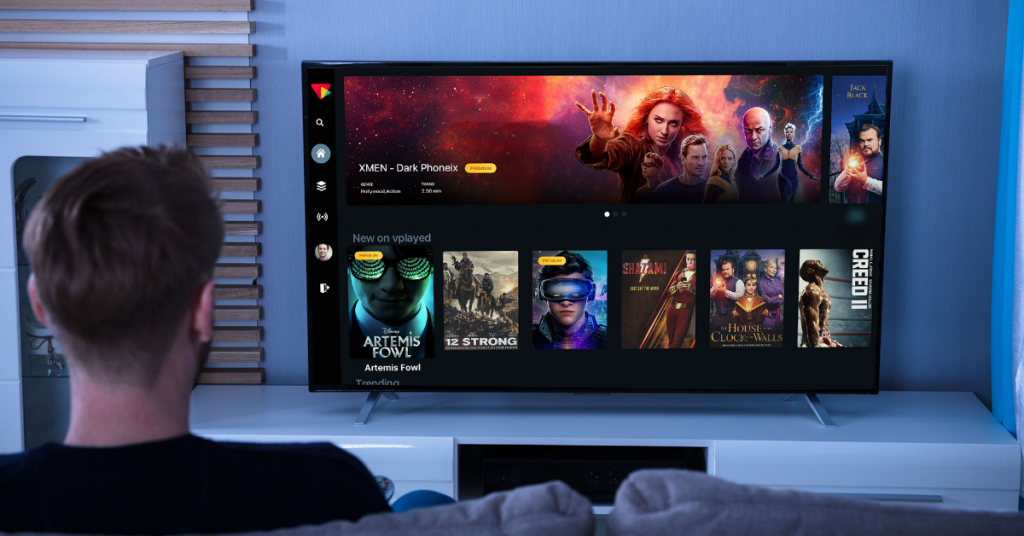
Hibrid IPTV sistemlərinin ən böyük üstünlüklərindən biri onların buferləşdirmədən etibarlı yüksək keyfiyyətli yayımıdır. Ənənəvi onlayn axın xidmətləri qeyri-sabit internet bağlantıları ilə pozula bilər və bu, videoların tamponlanmasına və ya tamamilə kəsilməsinə səbəb ola bilər. Hibrid sistemlər bu problemi həm yayım, həm də onlayn məzmunu bir platformaya inteqrasiya etməklə həll edir. Bu, zəhlətökən fasilələr və ya tamponlama olmadan problemsiz axın etməyə imkan verir.
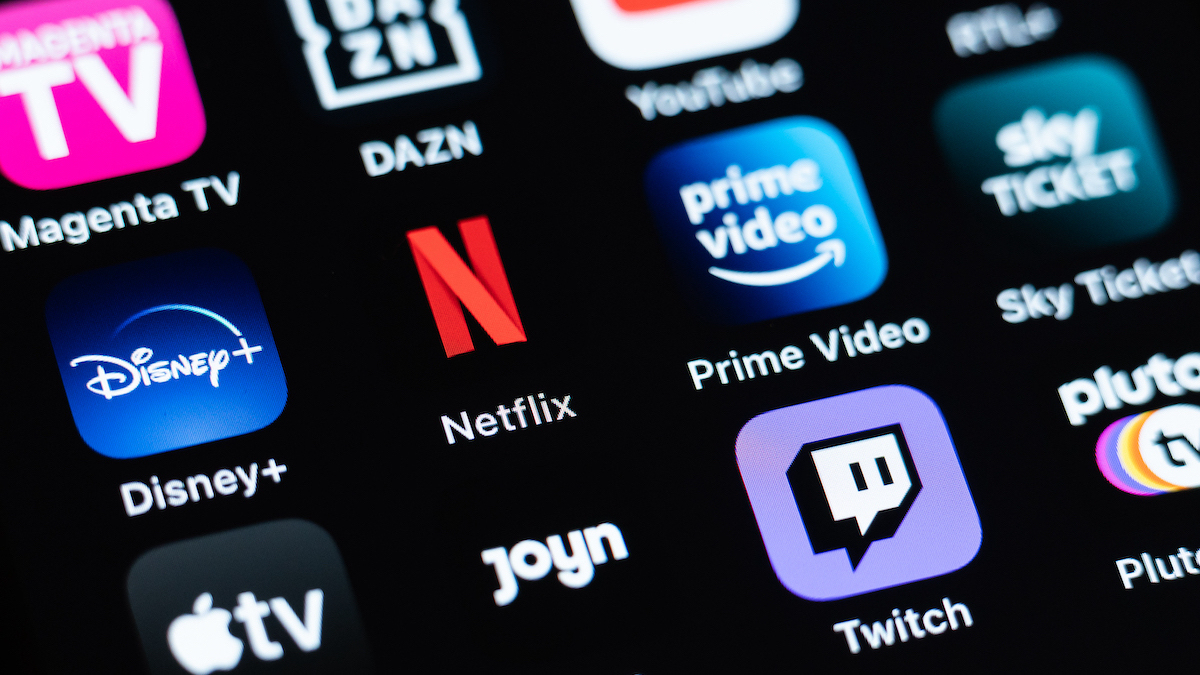
Bununla belə, hibrid IPTV sistemlərindən istifadənin bəzi mənfi cəhətləri də var. Birincisi, onlar ənənəvi kabel və ya peyk TV xidmətlərindən daha bahalı olurlar. Bunun səbəbi, kabel və ya peyk televiziyasına abunə olmaqdan əlavə, həm pristavka, həm də İnternet abunəsi üçün pul ödəməli olduğunuz üçün. Bundan əlavə, quraşdırma prosesi ənənəvi TV xidmətləri ilə müqayisədə daha mürəkkəb ola bilər.
Xülasə, hibrid IPTV sistemləri bir sıra üstünlüklər təklif edir, o cümlədən daha geniş kanallar diapazonuna, VOD xidmətlərinə və tutma TV-yə çıxış, həmçinin buferləşdirmədən etibarlı yayım. Bununla belə, onlar ənənəvi TV xidmətlərindən daha bahalı ola bilər və daha mürəkkəb quraşdırma prosesi tələb edə bilər. Buna baxmayaraq, hər iki dünyanın ən yaxşısını istəyənlər üçün hibrid IPTV sistemi əla seçim ola bilər.
2. Bulud əsaslı sistemlər
A bulud əsaslı IPTV sistemi TV məzmununu saxlamaq və yaymaq üçün buluddan istifadə edən başqa bir IPTV xidmət növüdür. Bu sistemdə TV məzmunu dünya üzrə məlumat mərkəzlərində yerləşdirilən uzaq serverlərdə saxlanılır. Bu, istifadəçilərə televizor məzmununa smartfonlar, planşetlər və smart televizorlar kimi bir çox cihazdan daxil olmaq imkanı verir.
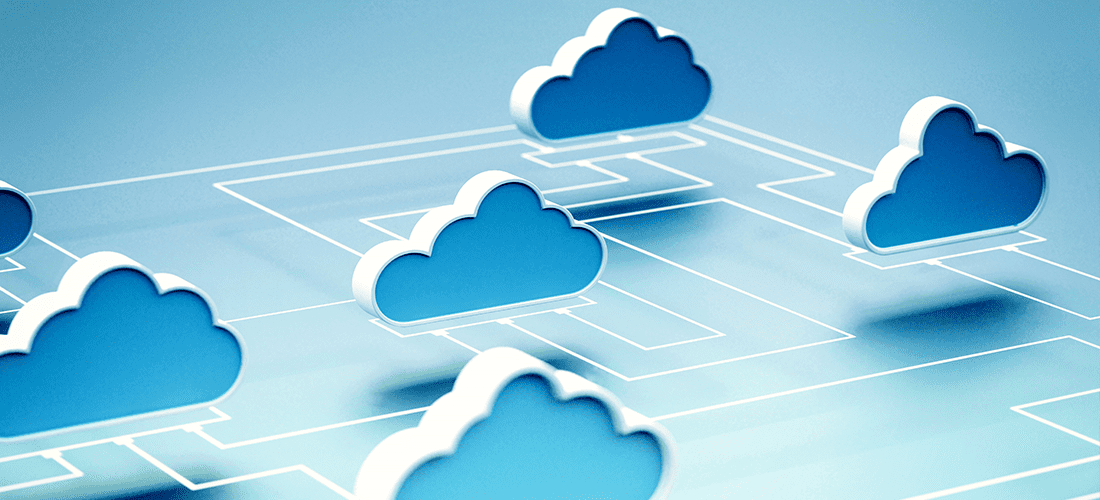
Bulud əsaslı IPTV sistemləri hibrid IPTV sistemləri ilə müqayisədə əhəmiyyətli üstünlüklər təklif edir. Birincisi, istifadəçilər bir neçə cihazdan IPTV xidmətinə qoşula bildikləri üçün onlar daha çevikdir. Üstəlik, onlar adətən geniş VOD kitabxanalarına çıxışı təmin edir və canlı televiziya kanalları adətən məlumat mərkəzlərində yerləşən xüsusi serverlər vasitəsilə yayımlanır. Bundan əlavə, bulud əsaslı IPTV sistemləri hətta pik saatlarda belə axınların ən yüksək keyfiyyətinə və sabitliyinə malikdir. Buna görə də, istifadəçilər heç bir buferləmə və ya kəsilmə olmadan fasiləsiz baxış təcrübəsindən istifadə edə bilərlər.
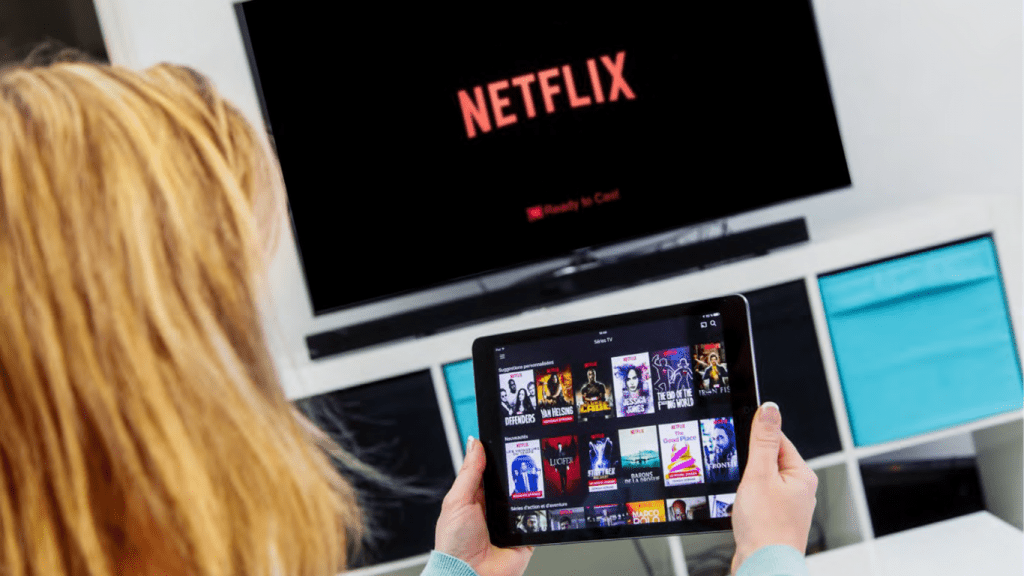
Bununla belə, bulud əsaslı IPTV sistemlərinin bəzi mənfi cəhətləri ola bilər. Əsas çatışmazlıqlardan biri odur ki, onlar yüksək sürətli internet bağlantısı tələb edə bilər və bu, məhdud büdcəsi olan istifadəçilər üçün nisbətən bahalı ola bilər. Etibarlı və yüksək sürətli internetə çıxışı olmayan istifadəçilər bu sistemlərlə problemsiz yayımdan həzz almaqda çətinlik çəkə bilər.
Nəticə olaraq, bulud əsaslı IPTV sistemləri yüksək sürətli internet bağlantılarına çıxışı olan istifadəçilər üçün üstün çeviklik və axın keyfiyyəti təklif edir. Onlar daha bahalı ola bilsələr də, bu sistemlərdən istifadənin faydaları bir çox istifadəçi üçün xərclərdən üstündür. Nəhayət, hibrid və bulud əsaslı IPTV sistemləri arasında seçim istifadəçinin ehtiyaclarından, üstünlüklərindən və büdcəsindən asılıdır.
3. Yerli Sistemlər
An on-premise IPTV sistemi təşkilatın şəxsi şəbəkəsində yerləşdirilən yerli quraşdırılmış həlldir. Bu sistem adətən bizneslər, otellər və səhiyyə müəssisələri tərəfindən qonaqlara və ya müştərilərə TV, video və digər məzmun təqdim etmək üçün istifadə olunur. Hibrid və bulud əsaslı IPTV sistemlərindən fərqli olaraq, yerli IPTV sistemi məzmunun çatdırılmasına tam nəzarəti təklif edir və təşkilat sistemi öz üstünlüklərinə və ehtiyaclarına uyğun olaraq fərdiləşdirə bilər.
Yerli IPTV sistemlərinin əhəmiyyətli üstünlüklərindən biri məzmunun təşkilatın binalarını tərk etməməsi səbəbindən yüksək təhlükəsizlik səviyyəsidir. Bu, təşkilatın məxfi və ya həssas məlumatlarının kənar tərəflər üçün əlçatan olmamasını və kiberhücum riskinin olmadığını təmin edir. Bundan əlavə, müəssisələr IPTV sistemini brend qaydalarına və dizaynına uyğunlaşdıra bilər ki, bu da onu bizneslər üçün unikal müştəri və ya qonaq təcrübəsi yaratmaq üçün ideal həll yolu edir.
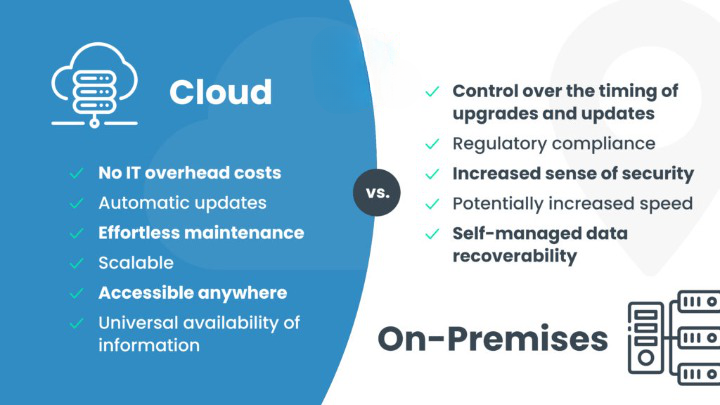
Bununla belə, yerli IPTV sisteminin tətbiqi baha başa gələ bilər və sistemin idarə edilməsi və saxlanması üçün təşkilatın təcrübə və İT heyətinə ehtiyacı ola bilər. Yerli sistem aparat, proqram təminatı və İT işçilərinə ilkin investisiya tələb edir ki, bu da büdcə məhdudiyyətləri olan müəssisələr üçün problem ola bilər. Bundan əlavə, sistemin tətbiqi çox vaxt apara bilər və müəssisələr sistemi idarə etmək və idarə etmək üçün əlavə təlim tələb edə bilər.

Xülasə, yerli IPTV sistemləri unikal müştəri təcrübəsi təklif edərkən biznes üçün tam nəzarət, təhlükəsizlik və fərdiləşdirməni təmin edir. İlkin investisiya bahalı olsa da, müəssisələr bu sistemlərin təklif etdiyi artan təhlükəsizlik, nəzarət və fərdiləşdirmədən faydalana bilər. Buna görə də, təhlükəsizlik, fərdiləşdirmə və tam nəzarəti qiymətləndirən müəssisələr, otellər və səhiyyə müəssisələri, digərləri ilə yanaşı, yerli IPTV sistemini tətbiq etməyi düşünməlidirlər.
Yekun olaraq, IPTV sisteminin seçimi istifadəçinin üstünlüklərindən, ehtiyaclarından və büdcəsindən asılıdır. Hibrid sistemlər müxtəlif kanallar təklif edir, lakin daha bahalıdır. Bulud əsaslı sistemlər daha çevikdir, lakin yüksək sürətli İnternet tələb edə bilər və məhdud büdcələr üçün bahalı ola bilər. Yerli sistemlər məzmunun çatdırılmasına tam nəzarət təklif edir, lakin həyata keçirilməsi bahalı ola bilər və saxlanılması üçün İT işçilərinin təcrübəsi tələb olunur. Hər bir sistemin müsbət və mənfi tərəflərini başa düşmək fərdlər və təşkilatlar üçün ehtiyaclarına cavab verən IPTV sistemini seçərkən vacibdir.
Texnologiya izah edildi
Streaming texnologiyası IPTV sistemlərinin mühüm komponentidir, çünki o, son istifadəçilər tərəfindən qəbul edilən video və audio məzmunun keyfiyyətini müəyyən edir. IPTV video və audio məzmunu serverdən istifadəçinin cihazına ötürmək üçün müxtəlif axın texnologiyalarından istifadə edir. Bu texnologiyalara unicast, multicast və peer-to-peer axın daxildir.
1. Unicast Streaming
Unicast axın IPTV sistemlərində istifadə olunan əsas, lakin vacib axın texnologiyasıdır. Bu, video məzmunun bir serverdən qonaqların planşetinə, mobil telefonuna və ya noutbukuna bir cihaza ötürülməsini tələb edir. Daha əvvəl qeyd edildiyi kimi, unicast axın adətən məzmun üzərində fərdi nəzarətin tələb olunduğu filmlər və televiziya şouları kimi tələb olunan məzmun üçün istifadə olunur.

Unicast axınının əsas üstünlüklərindən biri odur ki, o, qonaqlara son baxış nəzarəti ilə təmin edir. Hər bir otel qonağı istədiyi film və ya serialı seçə və digər qonaqlardan heç bir kəsilmədən öz sürəti ilə izləyə bilər. Unicast axın həm də qonaqlara istədikləri vaxt videonu dayandırmağa, irəli sürməyə, geri çəkməyə və dayandırmağa imkan verir.
Bununla belə, unicast axınının mənfi tərəfi odur ki, o, yüksək bant genişliyi tələb edir və xüsusilə pik saatlarda baha başa gələ bilər. Bu, qonaqların məmnunluğuna mənfi təsir göstərə bilən tamponlama, gecikmə və video keyfiyyətinin pisləşməsinə səbəb ola bilər. Buna görə də, unicast axın üçün bir oteldə IPTV sistemi qurarkən adekvat internet tutumunun olması çox vacibdir. Otel təmin etməlidir ki, onun şəbəkə infrastrukturu unicast axınının yüksək bant genişliyi tələblərinə cavab verə bilər. Bu, şəbəkə avadanlığının və ya fiber optik xətlər kimi genişzolaqlı əlaqələrin təkmilləşdirilməsini əhatə edə bilər.
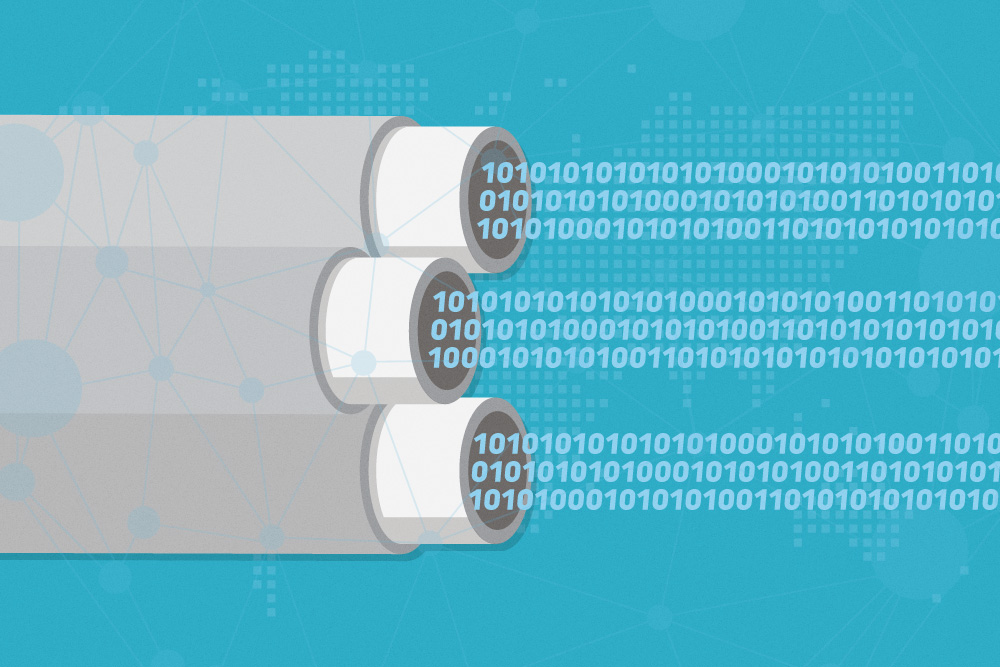
Qonaqlar həmçinin fasiləsiz baxışdan həzz almaq üçün etibarlı Wi-Fi bağlantısına çıxış əldə etməlidirlər. Buna görə də, oteldə kifayət qədər giriş nöqtələrinin olması optimal baxış təcrübəsini təmin edəcəkdir. Şəbəkə də təhlükəsiz olmalıdır və qonaqlar IPTV sisteminə daxil olarkən təhlükəsiz giriş və şifrə ilə təmin edilməlidir. Bu, otel qonaqlarını haker cəhdlərindən qorumağa və onların şəxsi məlumatlarını qorumağa kömək edəcək.
Unicast axın otellərdə IPTV sistemlərində istifadə olunan əsas, lakin vacib texnologiyadır. O, qonaqlara baxış seçimləri üzərində fərdi nəzarət təklif etsə də, yüksək bant genişliyi tələb edir və pik saatlarda baha başa gələ bilər ki, bu da buferləşməyə və video keyfiyyətinin aşağı düşməsinə səbəb olur. Buna görə də, otellər şəbəkə infrastrukturunu təmin etməlidirlər və genişzolaqlı bağlantılar unicast axınının yüksək bant genişliyi tələblərini yerinə yetirə bilər. Onlar həmçinin optimal baxış təcrübəsini təmin etmək üçün qonaqları etibarlı Wi-Fi bağlantısı və IPTV sisteminə təhlükəsiz girişlə təmin etməlidirlər.
2. Multicast Streaming
Multicast axın IPTV sistemlərində istifadə olunan digər mühüm axın texnologiyasıdır. Multicast axını ilə məzmun eyni vaxtda birdən çox cihaza və ya qonaqlara çatdırılır və məlumatlar multicast-ın effektiv şəbəkəsi vasitəsilə yönləndirilir. Bu tip axın texnologiyası adətən canlı TV kanalları üçün istifadə olunur, çünki o, minimum buferləmə və ya gecikmə ilə bütün izləyicilər üçün vahid baxış təcrübəsini təmin edir.
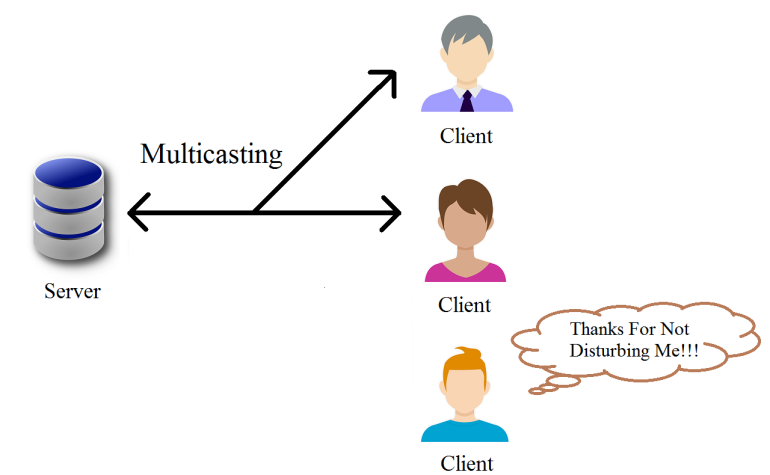
Multicast axınının əhəmiyyətli üstünlüklərindən biri onun unicast axınından daha səmərəli olmasıdır. İdman oyunları, konsertlər və xəbər yayımları kimi canlı tədbirlər zamanı multicast streaming bütün qonaqlara vahid keyfiyyətli çatdırılmanı təmin etməklə yanaşı, bant genişliyindən istifadəni minimuma endirmək üçün ideal texnologiyadır. Multicast axın eyni məzmunu birdən çox qonağa eyni vaxtda çatdırır ki, bu da bant genişliyinə qənaət edir və şəbəkə sıxlığı, buferləmə və ya gecikmə şanslarını azaldır. Bundan əlavə, qonaqlar fasilələr və ya gecikmələrlə qarşılaşmadan canlı kanalları tənzimləyə və bununla da optimal baxış təcrübəsini təmin edə bilərlər.

Bununla belə, unicast streamingdən fərqli olaraq, multicast streaming səmərəli işləmək üçün multicast-i aktivləşdirən şəbəkə infrastrukturunu tələb edir. Şəbəkə infrastrukturu multicast marşrutlaşdırma, multicast yönləndirmə, multicast filter və IGMPv2 və ya IGMPv3 kimi multicast protokolunu dəstəkləmək kimi texniki tələblərə cavab verməlidir. Həmçinin, şəbəkə inzibatçısı hamar multicast çatdırılmasını təmin etmək üçün marşrutlaşdırıcılarda və açarlarda multicast protokollarını yerləşdirməli və konfiqurasiya etməlidir.
Yekun olaraq qeyd edək ki, otellərdə, xüsusən də canlı TV kanallarında fasiləsiz, optimal keyfiyyətli baxış təcrübəsini təmin etmək üçün multicast-a imkan verən şəbəkə infrastrukturunun yerləşdirilməsi vacibdir. Multicast axın texnologiyası daha az bant genişliyi istifadəsi, azaldılmış tıxac, minimal buferləmə və gecikmələrlə sərfəli həlldir. Multicast streaming texniki təcrübə və xüsusi şəbəkə konfiqurasiyası və avadanlıq tələb etdiyinə görə, otellər IPTV sistemi xidmət təminatçılarının multicast imkanlı şəbəkələri yerləşdirmək və idarə etmək üçün lazımi texniki bacarıq və təcrübəyə malik olmasını təmin etməlidir.
3. Peer-to-Peer Streaming
Peer-to-peer (P2P) axın texnologiyası, serverdən video məzmunu yaymaq üçün həmyaşıdlar şəbəkəsindən istifadə edən inkişaf etməkdə olan axın texnologiyasıdır. P2P axın texnologiyası getdikcə populyarlaşır, xüsusən də qənaətcildir və potensial olaraq bant genişliyi tələblərini və xərcləri azalda bilər.
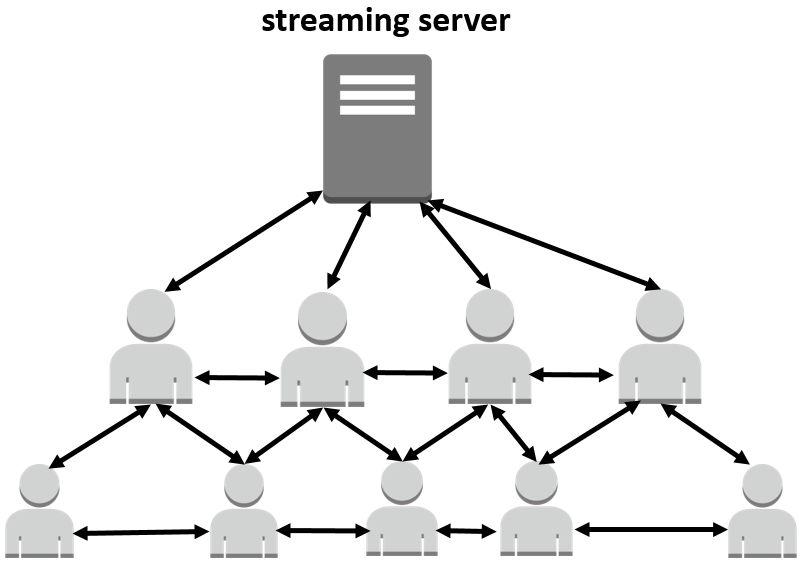
P2P axın texnologiyası video məzmunu kiçik parçalara ayıraraq və həmyaşıdlar şəbəkəsi vasitəsilə son istifadəçilərə paylamaqla işləyir. Məzmun parçasını qəbul edən hər bir cihaz onu avtomatik olaraq digər istifadəçilərlə də paylaşır. P2P axın texnologiyasının əhəmiyyətli üstünlüklərindən biri, IPTV sistemlərinin ümumiyyətlə istehlak etdiyi bant genişliyi tələblərini və xərcləri azaltmasıdır. Məzmun parçasını qəbul edən hər bir cihaz onu digər istifadəçilərlə də paylaşdığından, serverlərə edilən məlumat sorğularının sayını azaldır. Bundan əlavə, P2P axın texnologiyası, mənbə toxumunun yüksək keyfiyyətli olması və kifayət qədər ötürmə qabiliyyəti olması şərti ilə yüksək keyfiyyətli video məzmun çatdırılmasını təklif edə bilər.

Bununla belə, P2P axın texnologiyası da bir sıra çatışmazlıqlara səbəb ola bilər. Ən əhəmiyyətli çatışmazlıq ondan ibarətdir ki, P2P axın texnologiyası resursların istifadəçilər arasında bölüşdürülməsini tələb etdiyinə görə, bəzi istifadəçilər yalnız məhdud ötürmə qabiliyyətinə malik ola bilər ki, bu da ötürmə sürətinin aşağı olmasına və video keyfiyyətinin aşağı olmasına səbəb ola bilər. Bundan əlavə, video oynatma keyfiyyətinə mənbə toxumunun keyfiyyəti təsir göstərə bilər. Nəhayət, P2P axın texnologiyası aşağı məlumat trafiki olan mühitlərdə mümkün olmaya bilər və bu, istifadəçilərdən etibarlı internet bağlantısı tələb edir.

Nəticə olaraq, IPTV sistemlərində P2P axın texnologiyasının tətbiqi şəbəkə bant genişliyi, mənbə toxumunun keyfiyyəti və internet bağlantısının etibarlılığı kimi amillərdən asılıdır. P2P axın texnologiyası qənaətcil və yüksək keyfiyyətli video məzmun çatdırılması təklif etmək potensialına malik olan yeni axın texnologiyasıdır. Bununla belə, otel və IPTV sistemi xidmət təminatçısı üçün bu növ axın texnologiyasını yerləşdirmək və idarə etmək üçün lazımi texniki təcrübəyə və resurslara malik olması çox vacibdir.
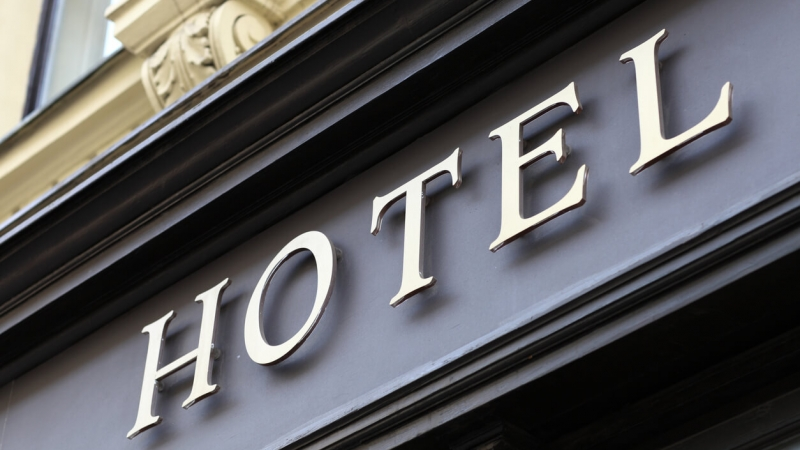
Otel şəraitində axın texnologiyalarının seçimi son istifadəçi təcrübəsinə birbaşa təsir etdiyi üçün çox vacibdir. Unicast axın texnologiyası qonağın planşetində filmə baxmaq kimi tələb olunan video məzmun üçün uyğundur, lakin birdən çox qonağın eyni vaxtda baxmaq istəyə biləcəyi canlı TV kanalları üçün uyğun olmaya bilər. Multicast axın texnologiyası çoxsaylı televiziya kanalları və canlı idman tədbirləri tələb edən qonaqlar üçün idealdır. Əksinə, P2P axın texnologiyası, mehmanxananın məhdud bant genişliyinə malik olduğu halda, tələb olunan video məzmunu üçün istifadə edilə bilər.
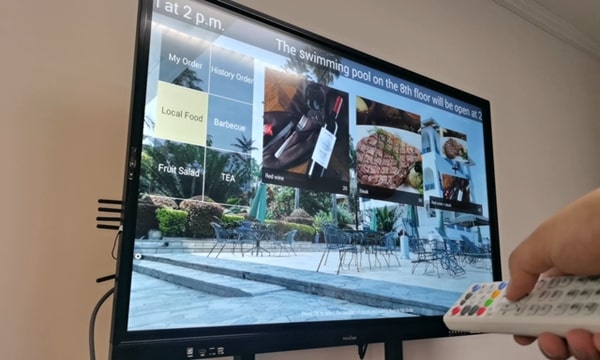
Nəticə olaraq, axın texnologiyasının seçimi IPTV sistemində son istifadəçi təcrübəsinə əhəmiyyətli dərəcədə təsir göstərə bilər. Unicast, multicast və P2P axın texnologiyalarının IPTV sistemini tərtib edərkən nəzərə alınmalı olan üstünlükləri və çatışmazlıqları var. Otelin IPTV sistemində istifadə olunan axın texnologiyasının növü büdcə, bant genişliyi və qonaqların seçimləri daxil olmaqla müxtəlif amillərdən asılıdır və xidmətin dəyəri və keyfiyyəti arasında balans tapılmalıdır.
4. IPTV Sistemlərində İstifadə olunan Axın Protokolları
Axın televiziyası getdikcə populyarlaşdıqca, keyfiyyət axın protokolu IPTV sistemləri tərəfindən istifadə getdikcə daha çox əhəmiyyət kəsb edir. Bu təhlildə biz IPTV sistemləri tərəfindən istifadə edilən müxtəlif axın protokollarını, onların müsbət və mənfi cəhətlərini və onların son istifadəçi təcrübəsinə necə təsir etdiyini araşdıracağıq.
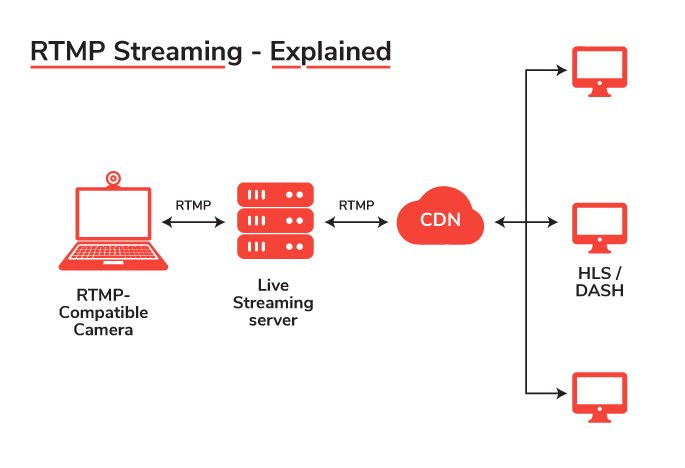
- HTTP Canlı Yayım (HLS): HLS, HTTP-dən nəqliyyat mexanizmi kimi istifadə edən bir protokoldur. O, heç bir əlavə proqram və ya plagin tələb etmir və əksər müasir veb brauzerlər tərəfindən dəstəklənir. Bununla belə, HLS axınları, xüsusən də şəbəkə bağlantısı yavaş və ya qeyri-sabit olduqda, buferləşdirmə problemlərinə həssasdır. Bu, son istifadəçi təcrübəsinə əhəmiyyətli dərəcədə təsir göstərərək məyusluğa və aşağı səviyyəli baxış təcrübəsinə səbəb ola bilər.
- Real Zamanlı Mesajlaşma Protokolu (RTMP): RTMP adətən canlı yayım üçün istifadə olunan protokoldur. Bu, aşağı gecikmə ilə yayıma imkan verməsi baxımından üstündür, yəni canlı hadisə ilə ona baxan istifadəçi arasında az gecikmə olur. Bununla belə, RTMP axınları xüsusi proqram təminatı və ya plaginlərin quraşdırılmasını tələb edir. Bu, bəzi izləyicilər üçün əlçatanlıq problemlərinə səbəb ola bilər.
- HTTP üzərindən Dinamik Uyğunlaşan Axın (DASH): DASH getdikcə populyarlaşan daha yeni bir protokoldur. O, HTTP-dən nəqliyyat mexanizmi kimi istifadə edir və adaptiv bit sürəti axınına imkan verir, yəni axının keyfiyyəti dəyişən şəbəkə şərtlərinə real vaxt rejimində uyğunlaşa bilər. DASH yüksək miqyaslana bilir və onu geniş miqyaslı IPTV sistemləri üçün əla seçim edir. Bununla belə, DASH axınlarını istehsal etmək daha çətin ola bilər, daha çox emal gücü və resurs tələb edir.
IPTV sistemi tərəfindən istifadə edilən axın protokolu son istifadəçi təcrübəsinə əhəmiyyətli təsir göstərə bilər. Daha əvvəl qeyd edildiyi kimi, buferləmə problemləri HLS axınları ilə bağlı problem ola bilər və bu, aşağı səviyyəli baxış təcrübəsinə səbəb ola bilər. RTMP axınları, xüsusən də istifadəçinin şəbəkə bağlantısı möhkəm deyilsə, buferləşdirmə problemlərindən də əziyyət çəkə bilər. Bundan əlavə, xüsusi proqram təminatı və ya plaginlərə olan tələb əlçatanlıq problemlərinə səbəb ola bilər.
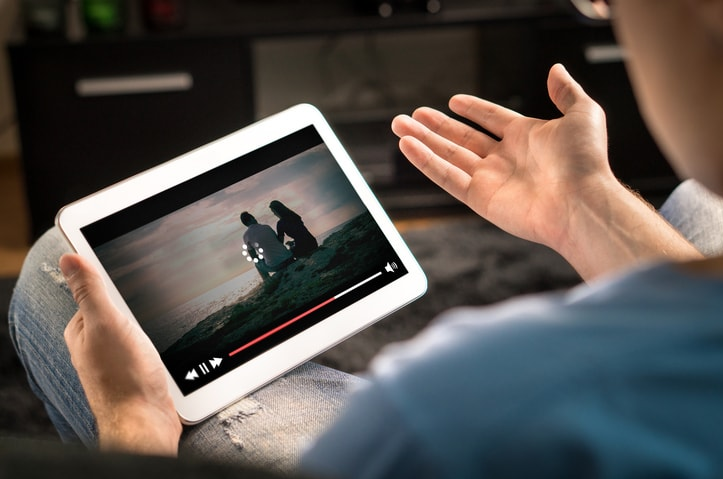
Digər tərəfdən DASH, adaptiv bit sürəti axınına imkan verir, yəni axının keyfiyyəti dəyişən şəbəkə şərtlərinə real vaxt rejimində uyğunlaşa bilər. Bu, son istifadəçi üçün daha qüsursuz baxış təcrübəsi ilə nəticələnə bilər. Bununla belə, DASH axınlarının artan mürəkkəbliyi onların istehsalını daha çətin və bahalı edə bilər.
Xülasə, IPTV sistemləri tərəfindən istifadə edilən müxtəlif axın protokolları var, hər birinin müsbət və mənfi cəhətləri var. Hansı protokolun istifadə ediləcəyi seçimi sistemin və son istifadəçilərin xüsusi ehtiyaclarından asılı olacaq. Hansının ən yaxşı baxış təcrübəsini təmin edəcəyini müəyyən etmək üçün hər bir axın protokolunun üstünlüklərini və çatışmazlıqlarını ölçmək vacibdir.
Gələcək meyllər
Qonaqpərvərlik sənayesi inkişaf etməyə davam etdikcə, otel qonaqlarının gözləntiləri də artır. Rəqabətə davamlı olmaq üçün otellər qonaqlara unikal və yaddaqalan təcrübə təqdim etmək üçün yeni texnologiyalar və innovasiyaları qəbul etməlidir. IPTV sistemləri qonaqpərvərlik sənayesində getdikcə populyarlaşan belə texnologiyalardan biridir və araşdırmağa dəyər bir neçə gələcək tendensiya və yeniliklər var.
1. Fərdiləşdirmə
Otel IPTV sistemlərində ən böyük tendensiyalardan biri fərdiləşdirmədir. Qonaqlar öz təcrübələrinin onların fərdi ehtiyaclarına və seçimlərinə uyğunlaşdırıldığını hiss etmək istəyirlər və IPTV sistemləri otellərə buna nail olmaqda kömək edə bilər. Məsələn, sistem qonağın əvvəlki baxış vərdişlərini xatırlaya və oxşar məzmunu tövsiyə edə bilər. O, həmçinin fərdi salamlama mesajları, yerli tövsiyələr təqdim edə və hətta qonaqlara birbaşa televizordan otaq xidməti sifariş etməyə imkan verə bilər.
2. Digər mehmanxana sistemləri ilə inteqrasiya
Otel IPTV sistemlərində başqa bir tendensiya digər otel sistemləri ilə inteqrasiyadır. Məsələn, bu sistem otelin Əmlakın İdarə Edilməsi Sistemi (PMS) ilə inteqrasiya oluna bilər ki, bu da qonaqlara onların qalmaları haqqında, məsələn, giriş və çıxış vaxtları, otaq haqları və s. kimi real vaxt məlumatlarını təqdim etsin. O, həmçinin otelin otaq xidməti sistemi ilə inteqrasiya edə bilər və qonaqlara yemək və içkiləri birbaşa televizordan sifariş etmək imkanı verir.
3. İnteraktiv xüsusiyyətlər
IPTV sistemləri daha təkmilləşdikcə, onlar da daha interaktiv olurlar. Məsələn, qonaqlar sistemdən spa görüşləri sifariş etmək, restoranda masa bron etmək və hətta yerli attraksionlara bilet almaq üçün istifadə edə bilərlər. Sistem həmçinin qonaqlara otel və ətraf əraziyə virtual turlar, həmçinin interaktiv proqram bələdçiləri təqdim edə bilər.
4. Yüksək keyfiyyətli məzmun
Otel IPTV sistemlərində digər mühüm tendensiya yüksək keyfiyyətli məzmunun mövcudluğudur. Qonaqlar yerli və beynəlxalq kanallar, premium məzmun və tələb olunan məzmun da daxil olmaqla geniş məzmun seçimlərini gözləyirlər. IPTV sistemləri həmçinin qonaqlara Netflix və Hulu kimi axın xidmətlərinə, həmçinin idman oyunları və konsertlər kimi canlı tədbirlərə çıxış təmin edə bilər.
5. Səs köməkçiləri ilə inteqrasiya
Amazon Alexa və Google Home kimi səsli köməkçilərin artması ilə IPTV sistemlərinin bu cihazlarla inteqrasiyası tendensiyası da var. Bu, qonaqlara öz səsləri ilə televizoru idarə etməyə, həmçinin otaq xidməti və ev işləri kimi digər otel xidmətlərindən istifadə etməyə imkan verir.
Bütövlükdə otel IPTV sistemlərinin gələcəyi parlaqdır. Texnologiya inkişaf etməyə davam etdikcə, bu sistemlərin imkanları da inkişaf edəcək. Bu tendensiyaları və yenilikləri qəbul edən otellər qonaqlara onları rəqiblərindən fərqləndirən unikal və yaddaqalan təcrübə təqdim etmək üçün yaxşı mövqedə olacaqlar.
Nəticə
Nəticə olaraq, IPTV sistemləri qonaqlara unikal və fərdi təcrübə təqdim edərək, qonaqpərvərlik sənayesinin vacib hissəsinə çevrilib. Bu sistemlər yüksək keyfiyyətli məzmun, interaktiv xüsusiyyətlər və digər otel sistemləri ilə inteqrasiya da daxil olmaqla geniş funksiyalar və üstünlüklər təklif edir. Texnologiya inkişaf etməyə davam etdikcə, fərdiləşdirmə, səs köməkçiləri ilə inteqrasiya və yüksək keyfiyyətli məzmun daxil olmaqla, otel IPTV sistemlərinin gələcəyini formalaşdıracaq bir sıra gələcək tendensiyalar və yeniliklər mövcuddur.
Bu tendensiyalara əlavə olaraq, qonaqların qüsursuz təcrübəsini təmin etmək üçün etibarlı və yüksək keyfiyyətli IPTV avadanlığının əhəmiyyətini qeyd etmək lazımdır. IPTV avadanlığının aparıcı istehsalçısı olan FMUSER qonaqpərvərlik sənayesinin ehtiyaclarını ödəmək üçün hazırlanmış bir sıra məhsullar təklif edir. Onların IPTV sistemləri etibarlılığı, istifadəsi asanlığı və yüksək keyfiyyətli performansı ilə tanınır.
Üstəlik, FMUSER-in məhsulları yalnız IPTV sistemləri ilə məhdudlaşmır, həmçinin FM radio yayımı avadanlığı təklif edir ki, bu da qonaqlara unikal və immersiv təcrübə təqdim etmək üçün otellərdə istifadə oluna bilər. FMUSER-in FM radio yayımı avadanlığı ilə otellər öz radiostansiyalarını yarada, qonaqlara bir sıra musiqi və əyləncə seçimləri, həmçinin otel və yerli ərazi haqqında məlumat təqdim edə bilərlər.
Xülasə, IPTV sistemləri və FM radio yayım avadanlığı qonaqlara unikal və fərdiləşdirilmiş təcrübə təqdim etmək istəyən otellər üçün vacib alətə çevrilmişdir. Texnologiya inkişaf etməyə davam etdikcə, rəqabətə davamlı olmaq üçün otellərin ən son tendensiyalar və yeniliklərdən xəbərdar olması vacibdir. Yeni texnologiyalardan istifadə etməklə və FMUSER kimi etibarlı istehsalçılarla əməkdaşlıq etməklə, otellər qonaqları üçün yaddaqalan və xoş təcrübə yarada bilər.
FAQ
S1: Otellər üçün IPTV sistemi nədir?
A1: Otellər üçün IPTV (Internet Protocol Television) sistemi otellərə IP şəbəkəsi vasitəsilə televiziya məzmununu və interaktiv xüsusiyyətlərini qonaqlarına çatdırmağa imkan verən texnologiyadır. O, geniş çeşidli əyləncə seçimləri, tələb olunan məzmun və birbaşa qonaq otağına interaktiv xidmətlər təqdim edir.
S2: IPTV sistemi otelimə necə fayda verə bilər?
Cavab: Otelinizdə IPTV sisteminin tətbiqi bir sıra faydalar gətirə bilər. O, fərdi əyləncə seçimləri, tələb olunan məzmun və interaktiv funksiyalar təqdim etməklə qonaq təcrübəsini artırır. O, mövcud otel sistemləri ilə inteqrasiya etməklə və texniki xidmət səylərini azaltmaqla əməliyyat səmərəliliyini artırır. Bundan əlavə, fərdiləşdirilmiş promosyonlar və reklamlar vasitəsilə əlavə gəlir axınları yarada bilər.
2-ci sual: IPTV sistemi otelimin brendinə və atmosferinə uyğunlaşdırıla bilərmi?
Cavab: Bəli, FMUSER-də biz otelinizin unikal brendini və atmosferini qoruyub saxlamağın vacibliyini başa düşürük. Bizim IPTV həllimiz brendləşdirmə, istifadəçi interfeysi dizaynı və məzmun seçimi daxil olmaqla fərdiləşdirmə seçimlərini təklif edir ki, bu da sizə otelinizin şəxsiyyətinə uyğun gələn fərdi təcrübə yaratmağa imkan verir.
3-cü sual: IPTV sistemini mənim mövcud mehmanxana infrastrukturumla inteqrasiya etmək mümkündürmü?
A: Mütləq. İPTV sistemimiz, daxili sisteminizdən və ya üçüncü tərəf proqram təminatından istifadə etməyinizdən asılı olmayaraq, mövcud otel infrastrukturunuzla qüsursuz inteqrasiya etmək üçün nəzərdə tutulmuşdur. Quraşdırma və inteqrasiya fazaları zamanı əməliyyatlarınıza minimal pozulmaları təmin edərək, hamar keçid prosesini təmin edirik.
3-cü sual: IPTV sistemi otelimin Wi-Fi şəbəkəsi ilə işləyəcəkmi?
Cavab: Bəli, bizim IPTV sistemi otelinizin Wi-Fi şəbəkəsinə uyğundur. O, qonaqlarınızın cihazlarına yüksək keyfiyyətli axın təqdim etmək üçün mövcud şəbəkə infrastrukturundan istifadə edərək əmlakınız boyunca sürətli və sabit bağlantıları təmin edir.
4-cü sual: IPTV sistemi ilə hansı texniki dəstək verilir?
A: Biz IPTV sistemimiz üçün 24/7 texniki dəstək təklif edirik. Təcrübəli texniki heyətimiz sizə istənilən texniki problem, nasazlıqların aradan qaldırılması və texniki xidmət tələbləri ilə bağlı köməklik göstərməyə hazırdır. IPTV sisteminizin fasiləsiz işləməsini təmin etmək üçün bizim operativ və səmərəli dəstəyimizə etibar edə bilərsiniz.
4-cü sual: IPTV sistemi çoxsaylı dilləri və beynəlxalq kanalları dəstəkləyə bilərmi?
Cavab: Bəli, bizim IPTV sistemimiz çoxsaylı dilləri və beynəlxalq kanalları dəstəkləyir. Müxtəlif qonaq bazanızı təmin etmək üçün müxtəlif bölgələrdən və dillərdən geniş məzmun seçimimiz var. Bu, dil və ya mədəni mənşəyindən asılı olmayaraq qonaqlarınızın üstünlük verdiyi proqramlardan həzz almasını təmin edir.
5-ci sual: IPTV sistemi analitika və qonaqların istifadəsi ilə bağlı fikirləri təmin edə bilərmi?
Cavab: Bəli, bizim IPTV sistemimiz qonaqların istifadə nümunələri, məzmun seçimləri və nişan səviyyələri haqqında dəyərli fikirlər təmin edən analitika və hesabat xüsusiyyətlərini ehtiva edir. Bu məlumatlar əsaslandırılmış qərarlar qəbul etməyə, məzmun təkliflərini optimallaşdırmağa və qonaq məmnuniyyətini artırmaq və gəliri artırmaq üçün fərdi təqdimatları uyğunlaşdırmağa kömək edə bilər.
S5: IPTV sistemini otelimdə quraşdırmaq və yerləşdirmək nə qədər vaxt aparır?
A: Quraşdırma və yerləşdirmə vaxtı otel infrastrukturunuzun ölçüsündən və mürəkkəbliyindən asılı olaraq dəyişə bilər. Komandamız quraşdırma prosesini səmərəli şəkildə planlaşdırmaq və həyata keçirmək üçün sizinlə sıx əməkdaşlıq edəcək. Biz əməliyyatlarınızdakı hər hansı pozuntuları minimuma endirməyi və yeni IPTV sisteminizə rahat keçidi təmin etməyi hədəfləyirik.
6-cı sual: IPTV sistemini idarə etmək və saxlamaq üçün otel işçiləri üçün təlimlər keçirilirmi?
Cavab: Bəli, biz otel işçiləriniz üçün IPTV sistemini səmərəli şəkildə idarə etmək və saxlamaq üçün hərtərəfli təlimlər təqdim edirik. Təlim proqramlarımız sistemin işləməsini, texniki xidmət prosedurlarını və problemlərin aradan qaldırılması üsullarını əhatə edir. Biz sizin personalınızın IPTV sisteminin faydalarını idarə etmək və maksimum dərəcədə artırmaq üçün yaxşı təchiz olunmasını təmin edəcəyik.
Daha çox sualınız varmı? Bu gün bizimlə əlaqə saxlayın, və komandamız oteliniz üçün IPTV həllimiz haqqında məlumatlı qərar qəbul etmək üçün sizə lazım olan bütün məlumatları məmnuniyyətlə təqdim edəcək.
Tags
Mündəricat
əlaqəli məqalələr
BİZİMLƏ ƏLAQƏ SAXLAYIN


FMUSER INTERNATIONAL GROUP LIMITED.
Biz həmişə müştərilərimizə etibarlı məhsullar və diqqətli xidmətlər təqdim edirik.
Bizimlə birbaşa əlaqə saxlamaq istəyirsinizsə, buyurun Bizimlə əlaqə saxlayın
